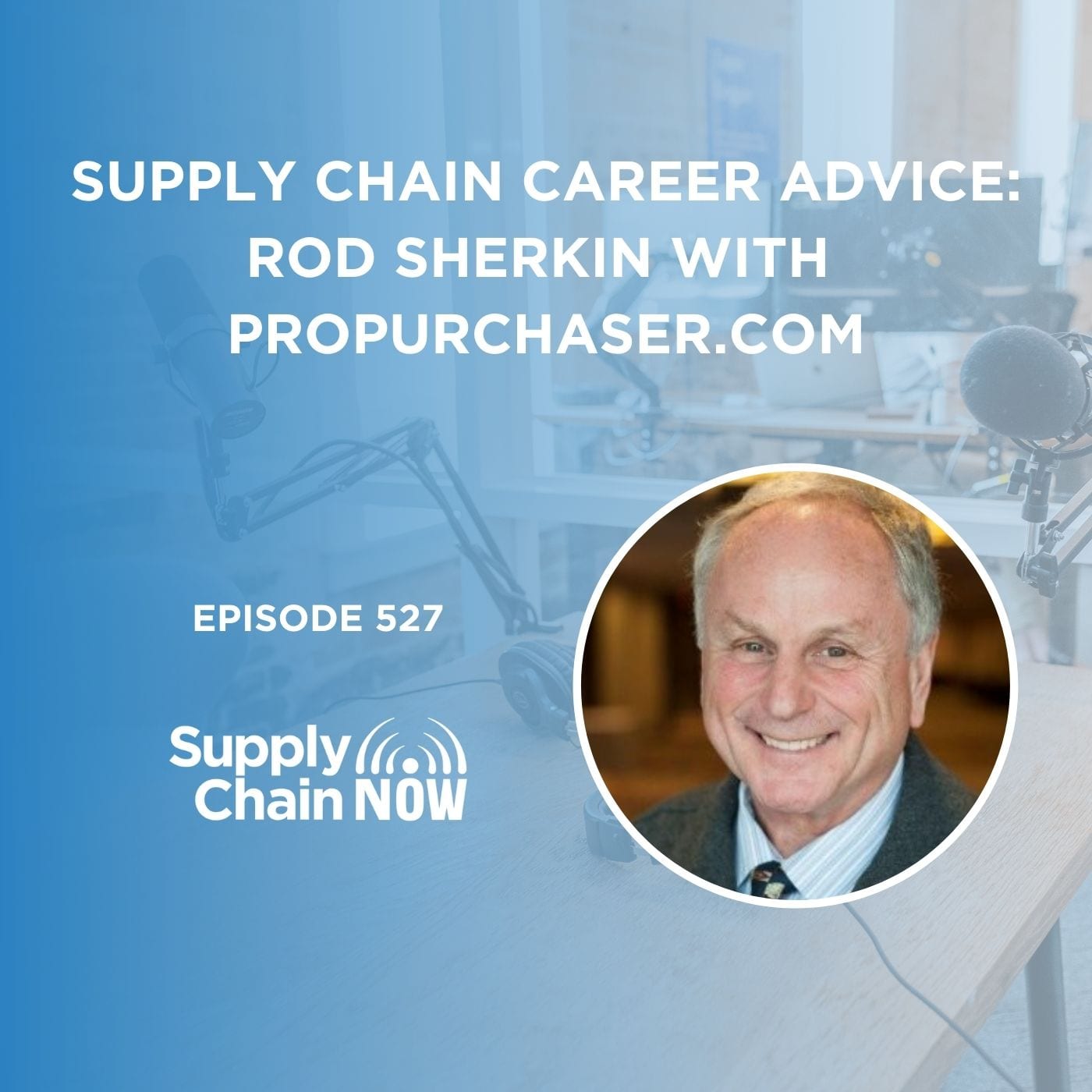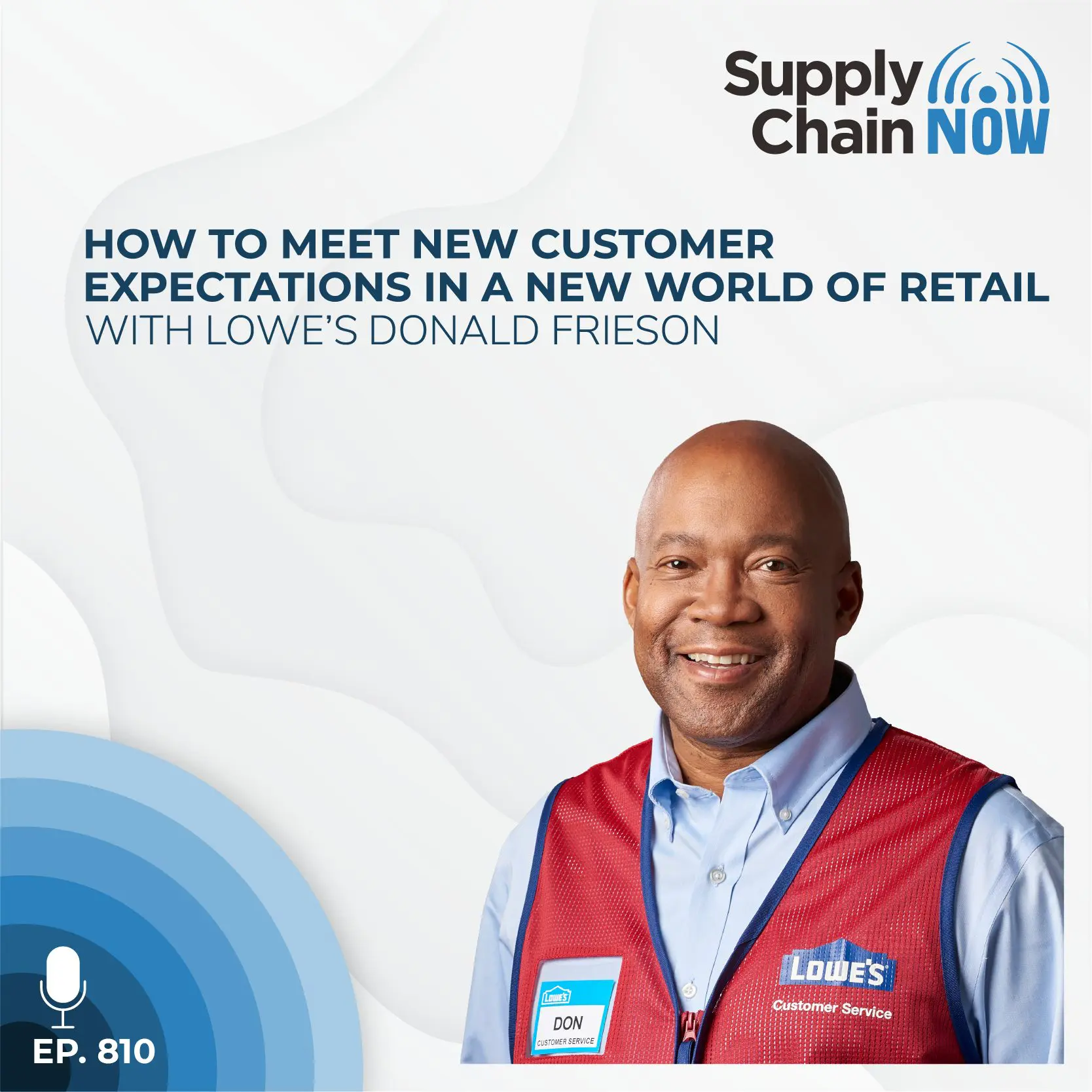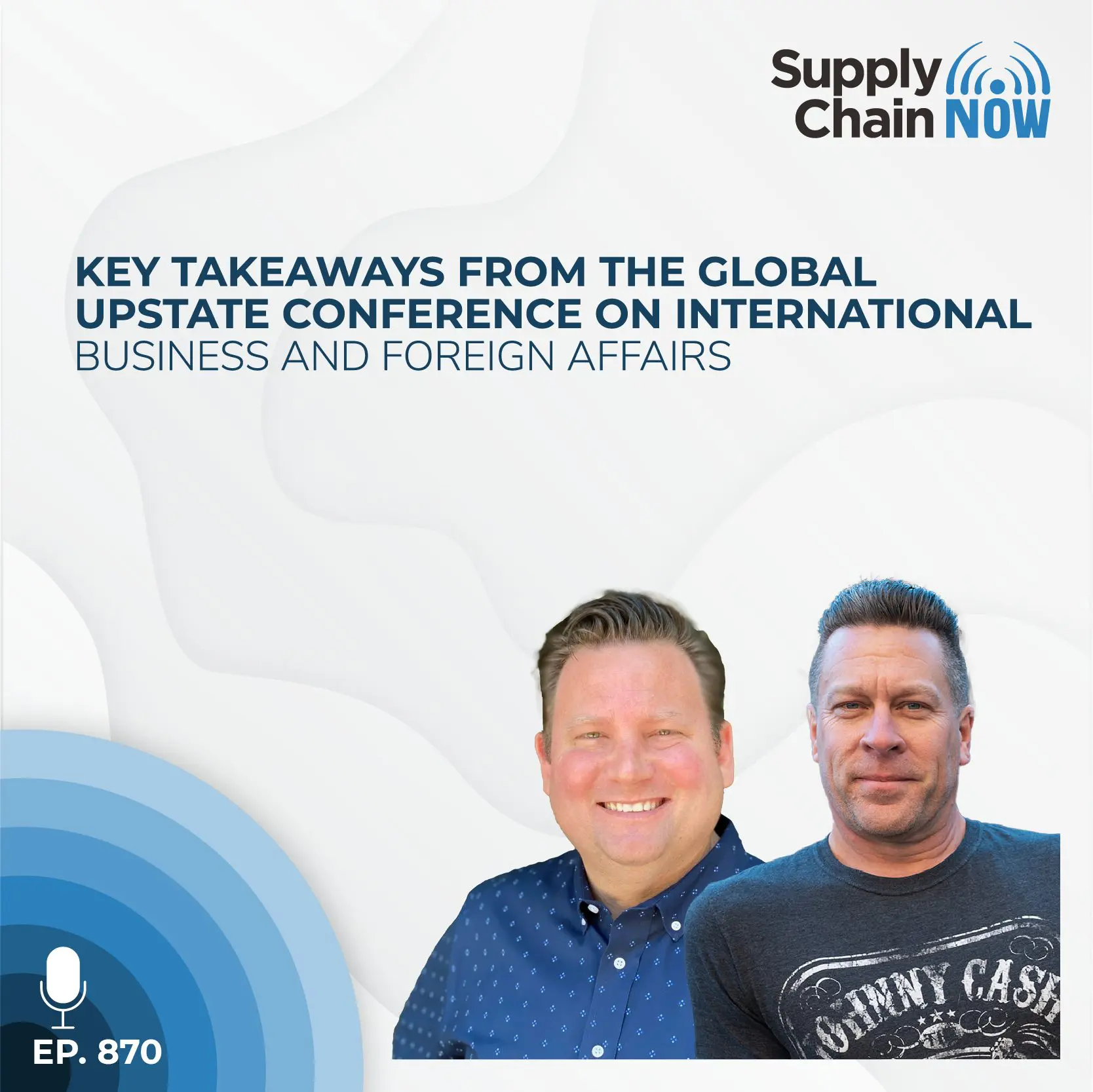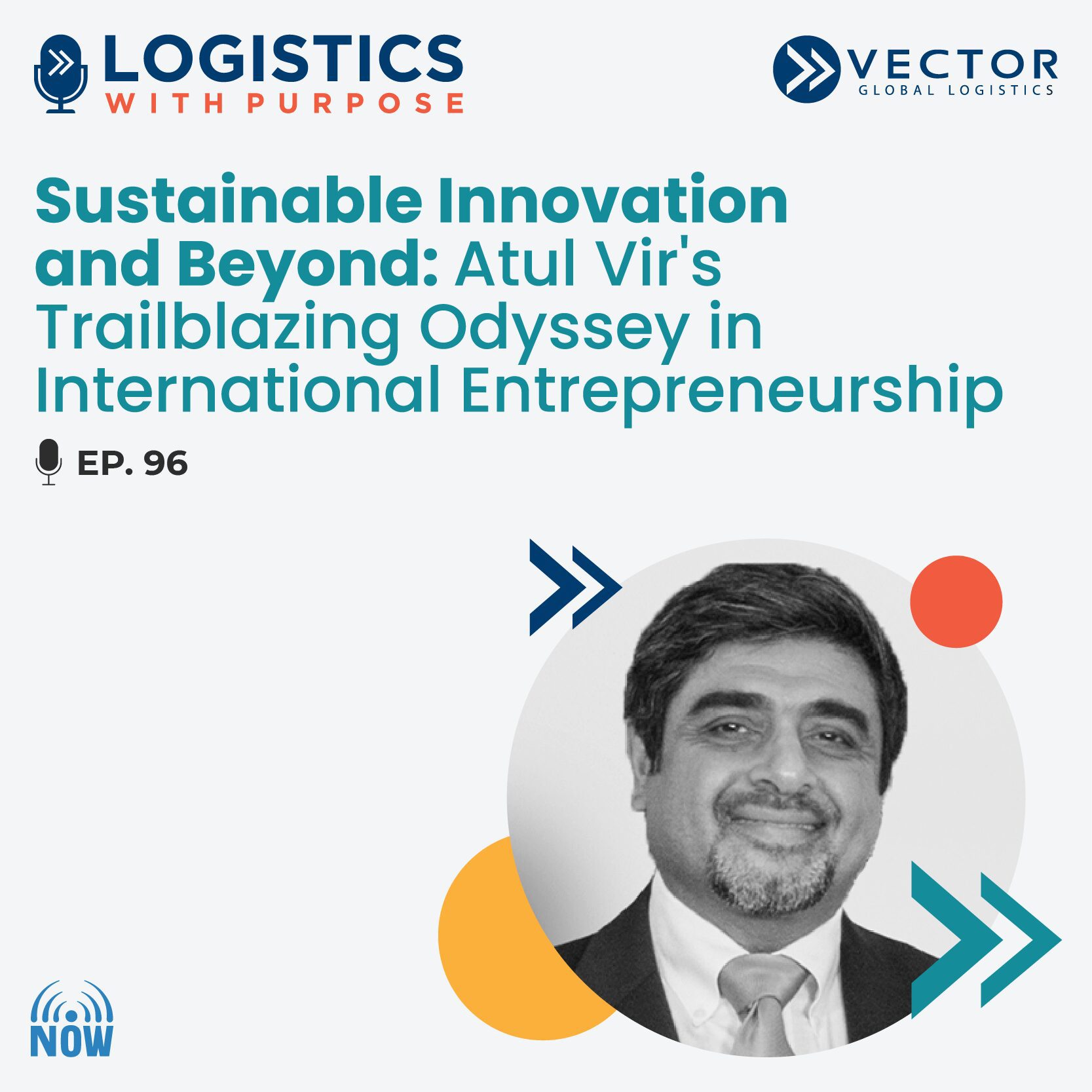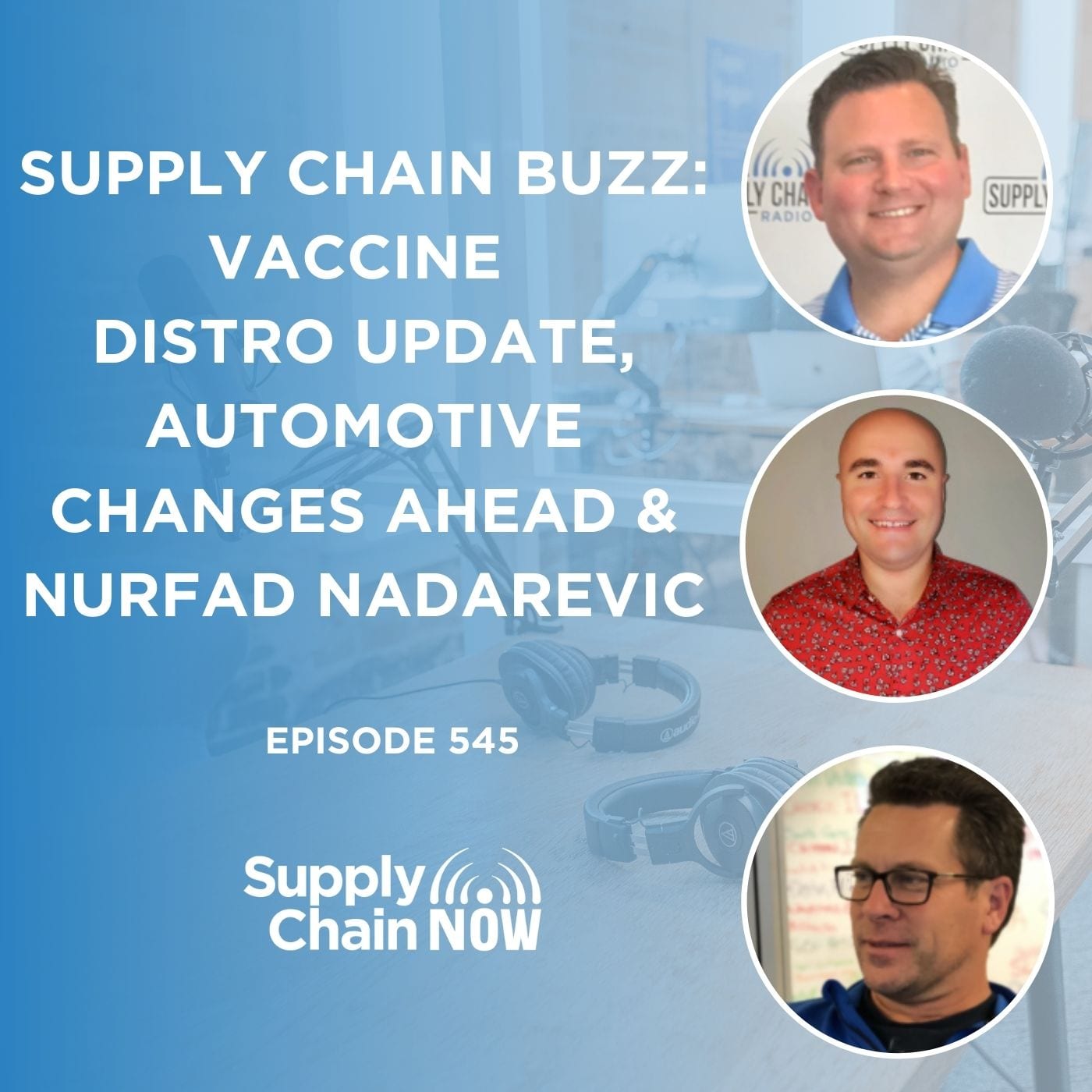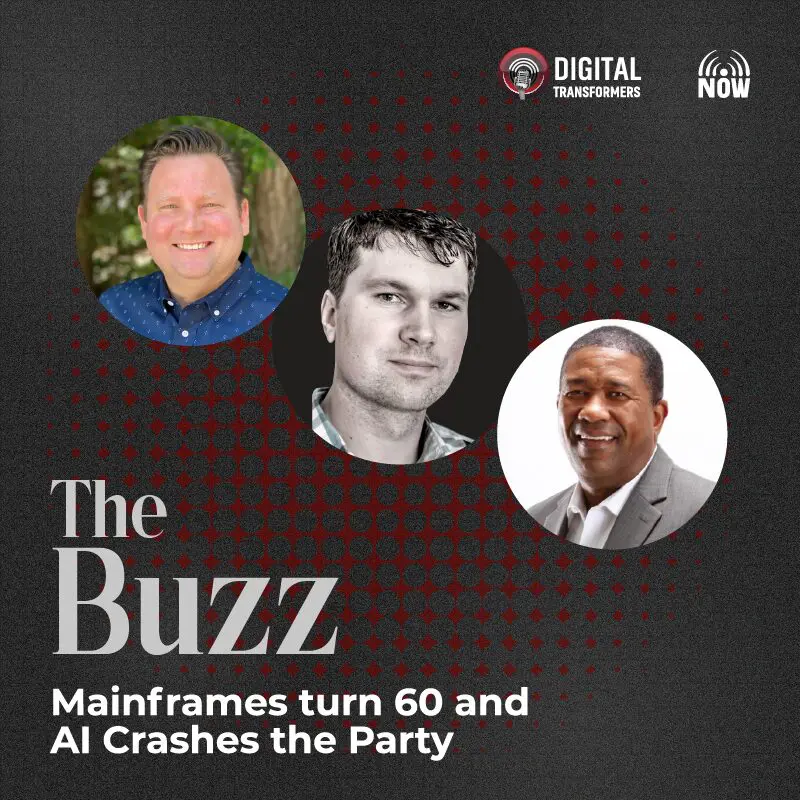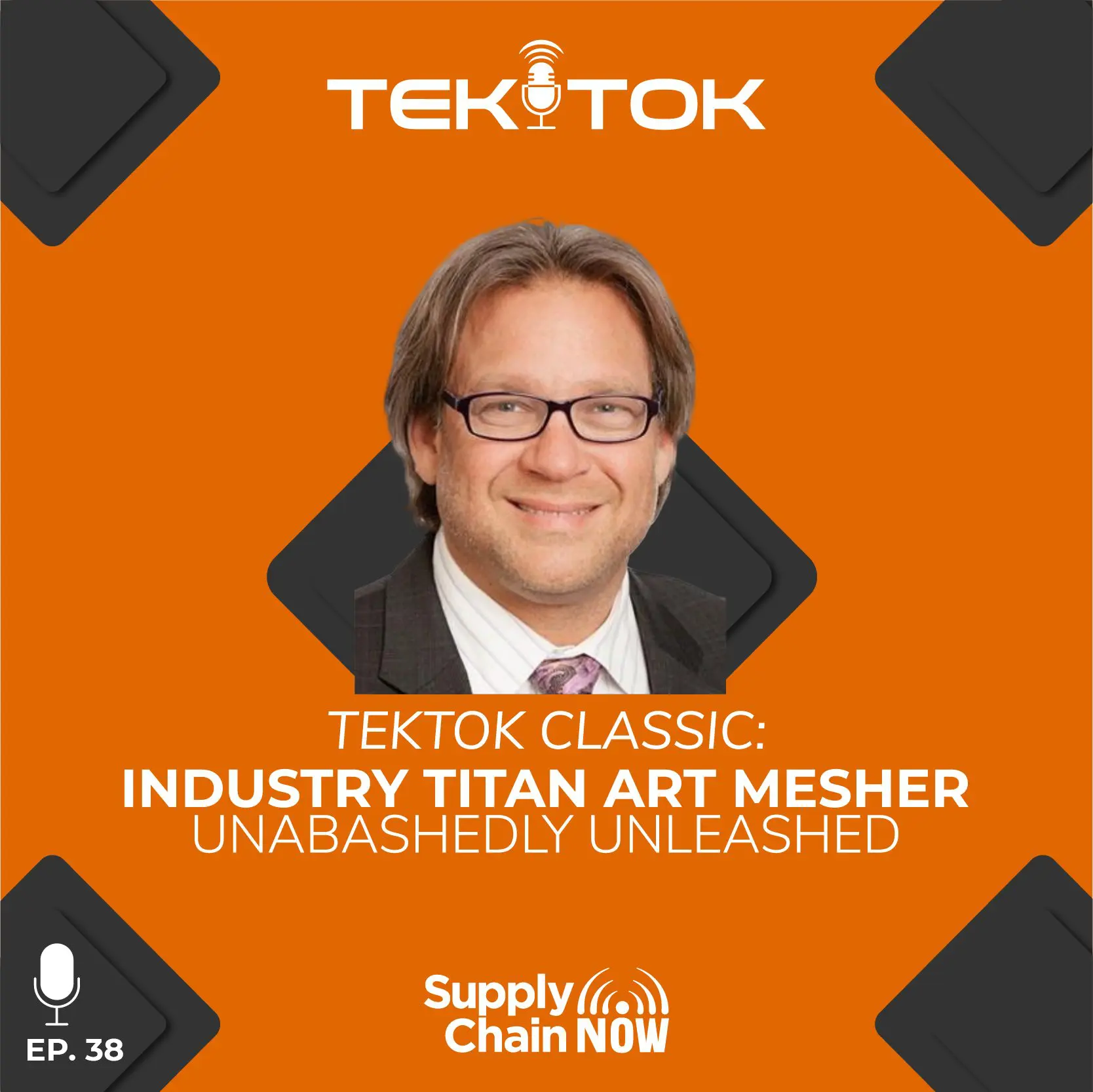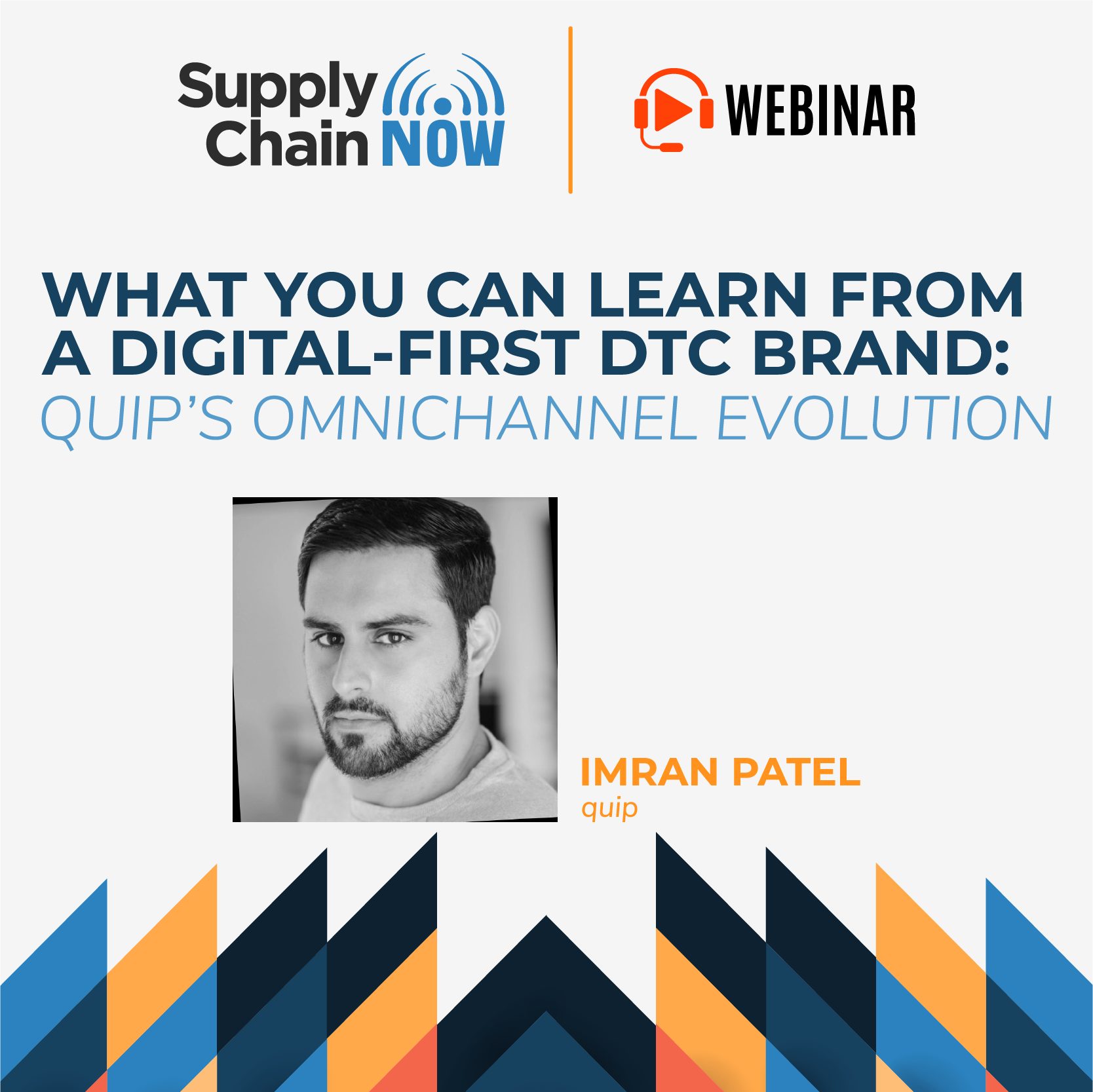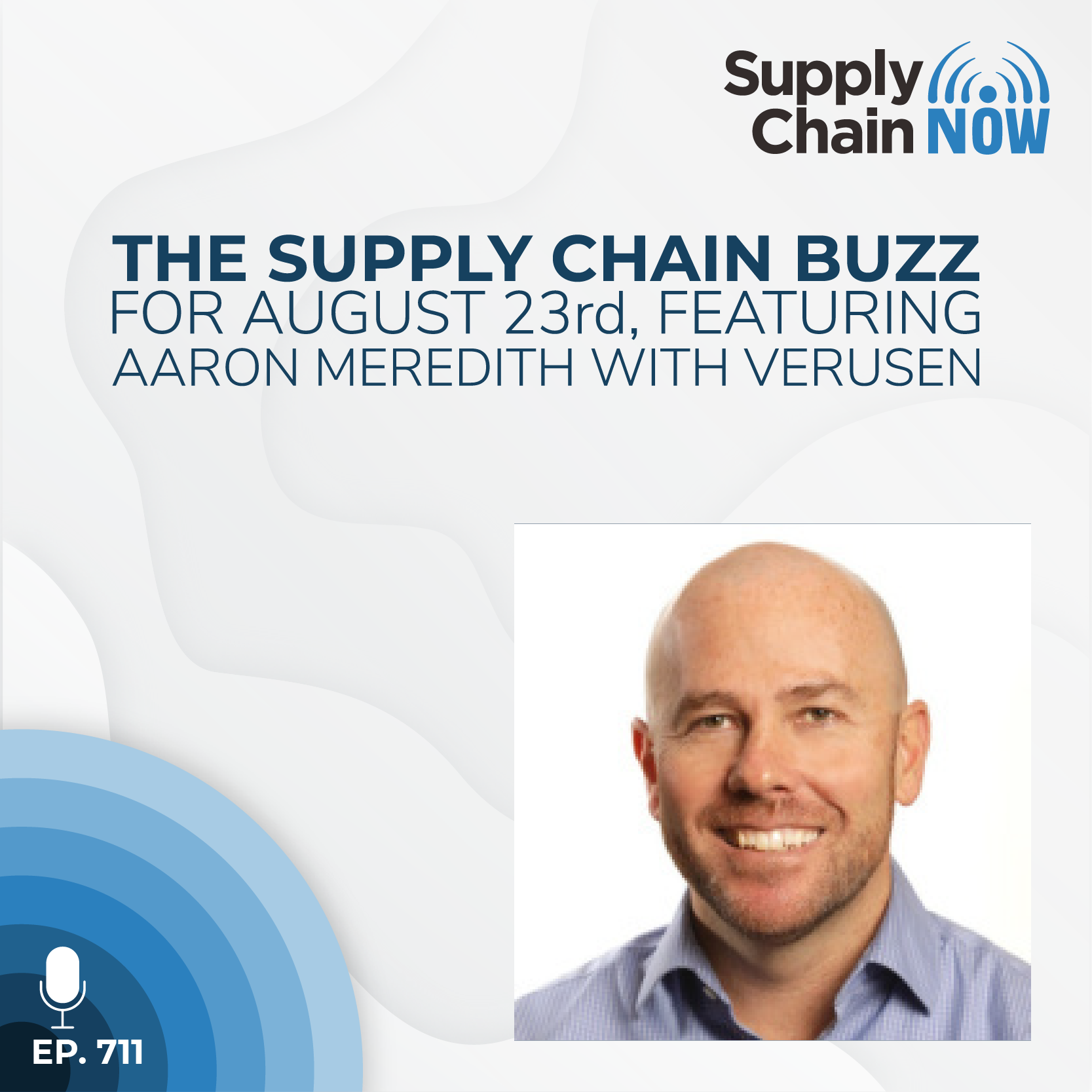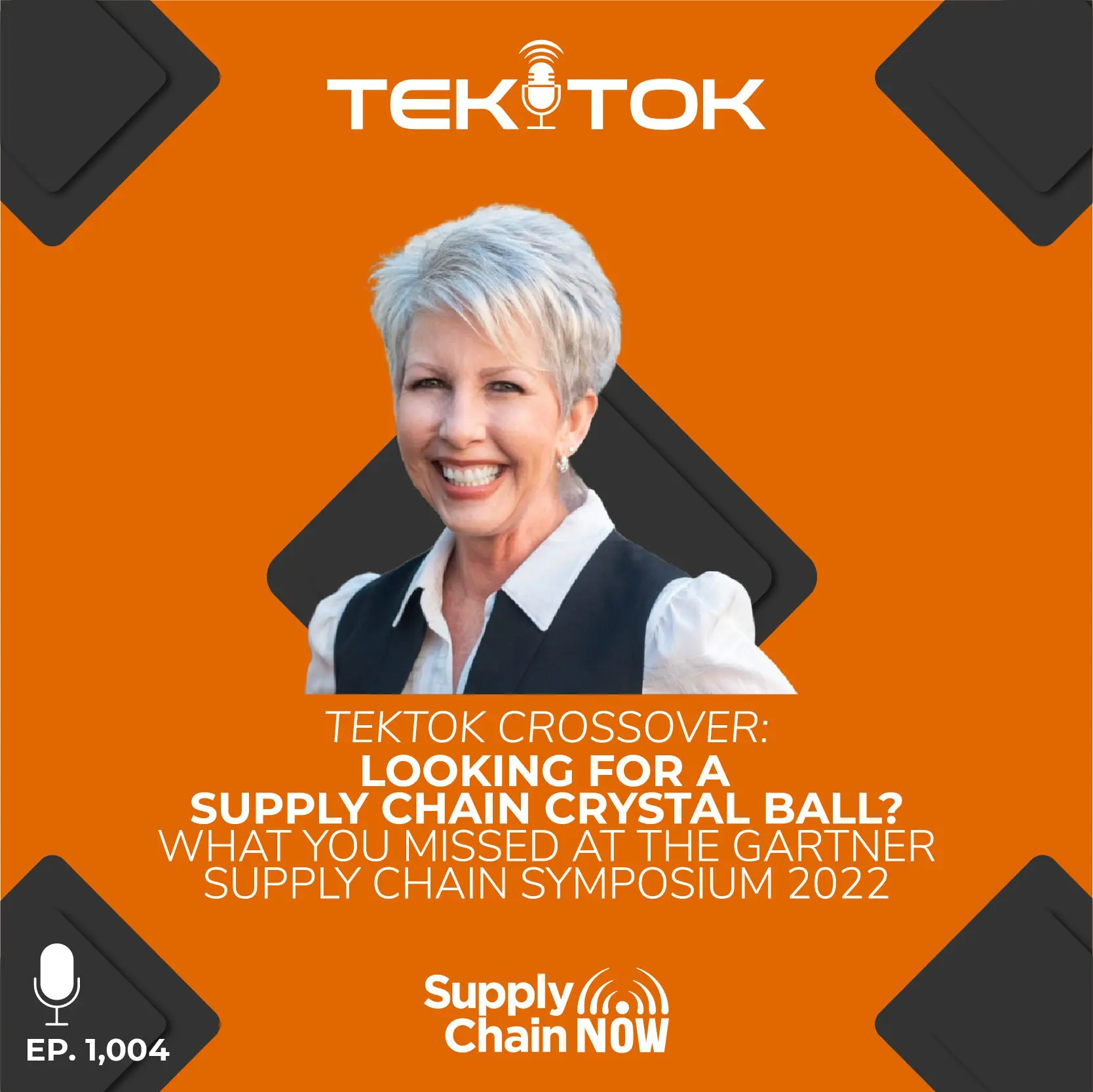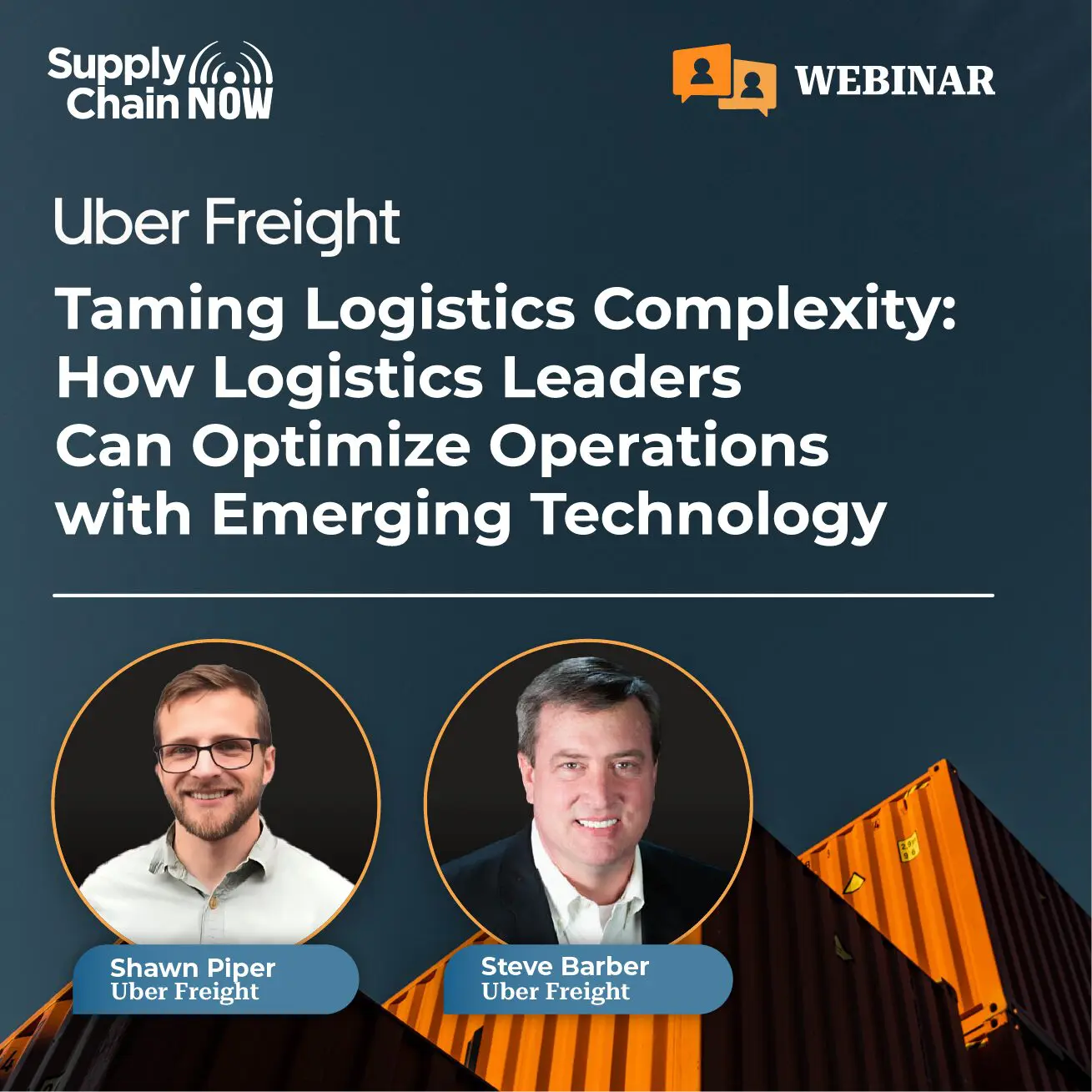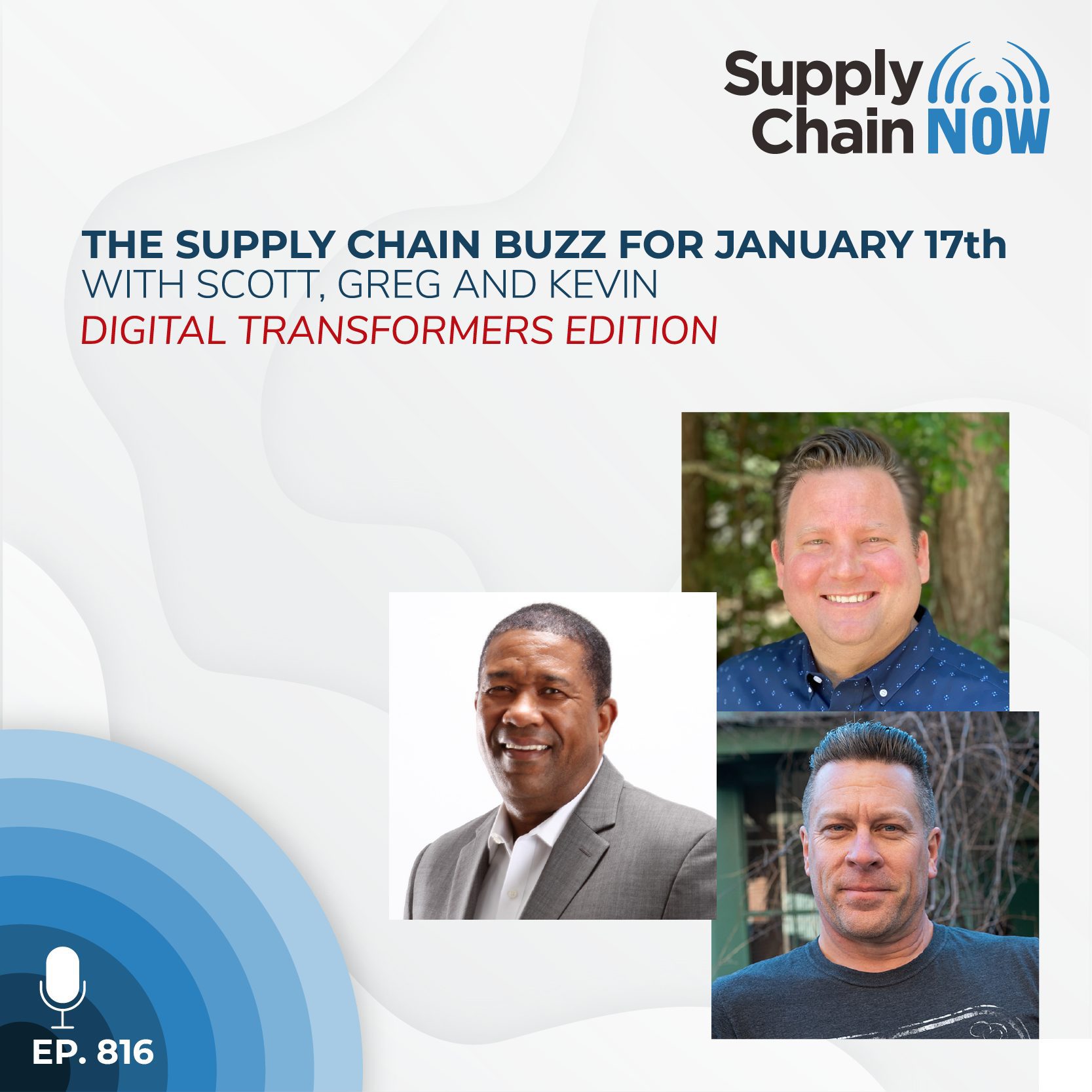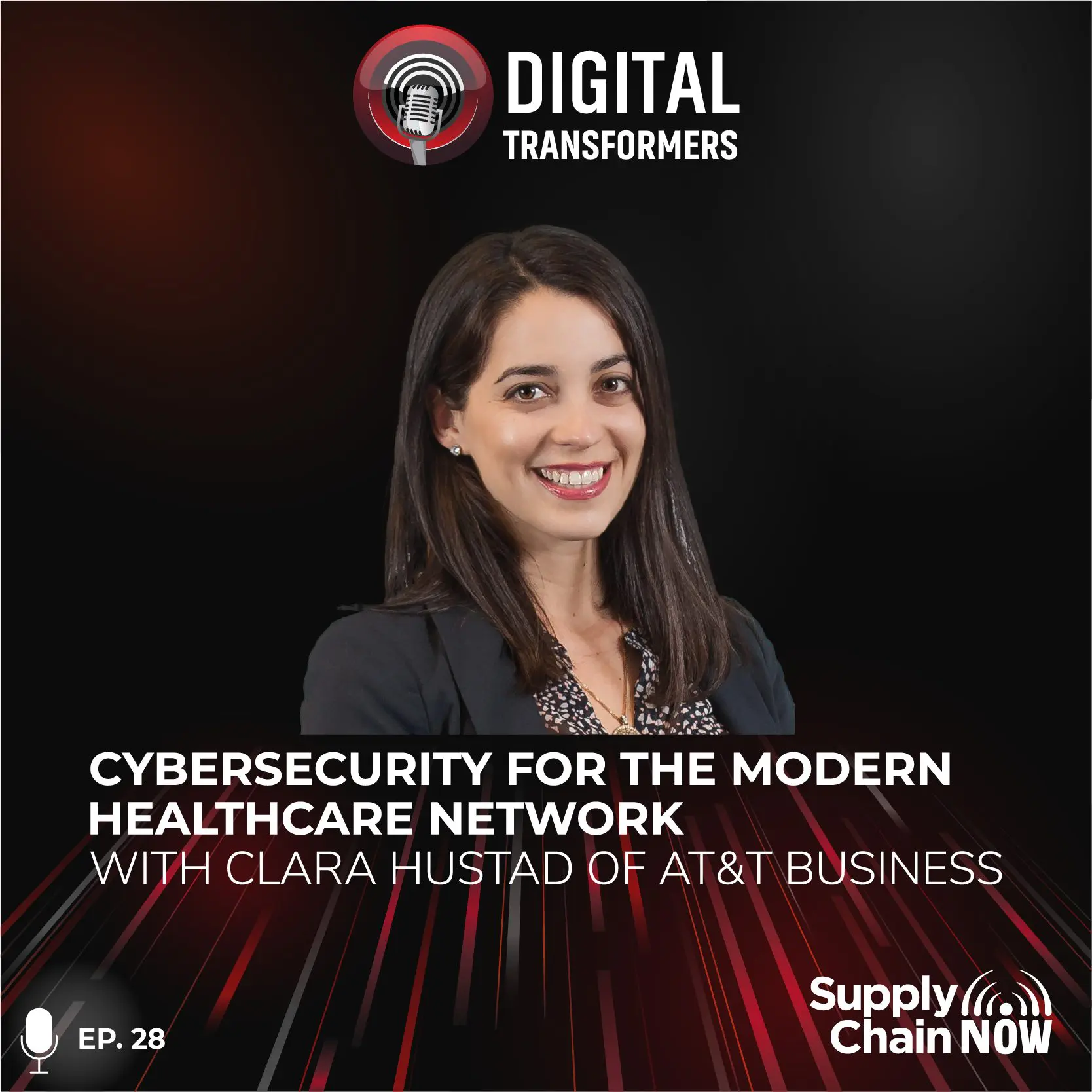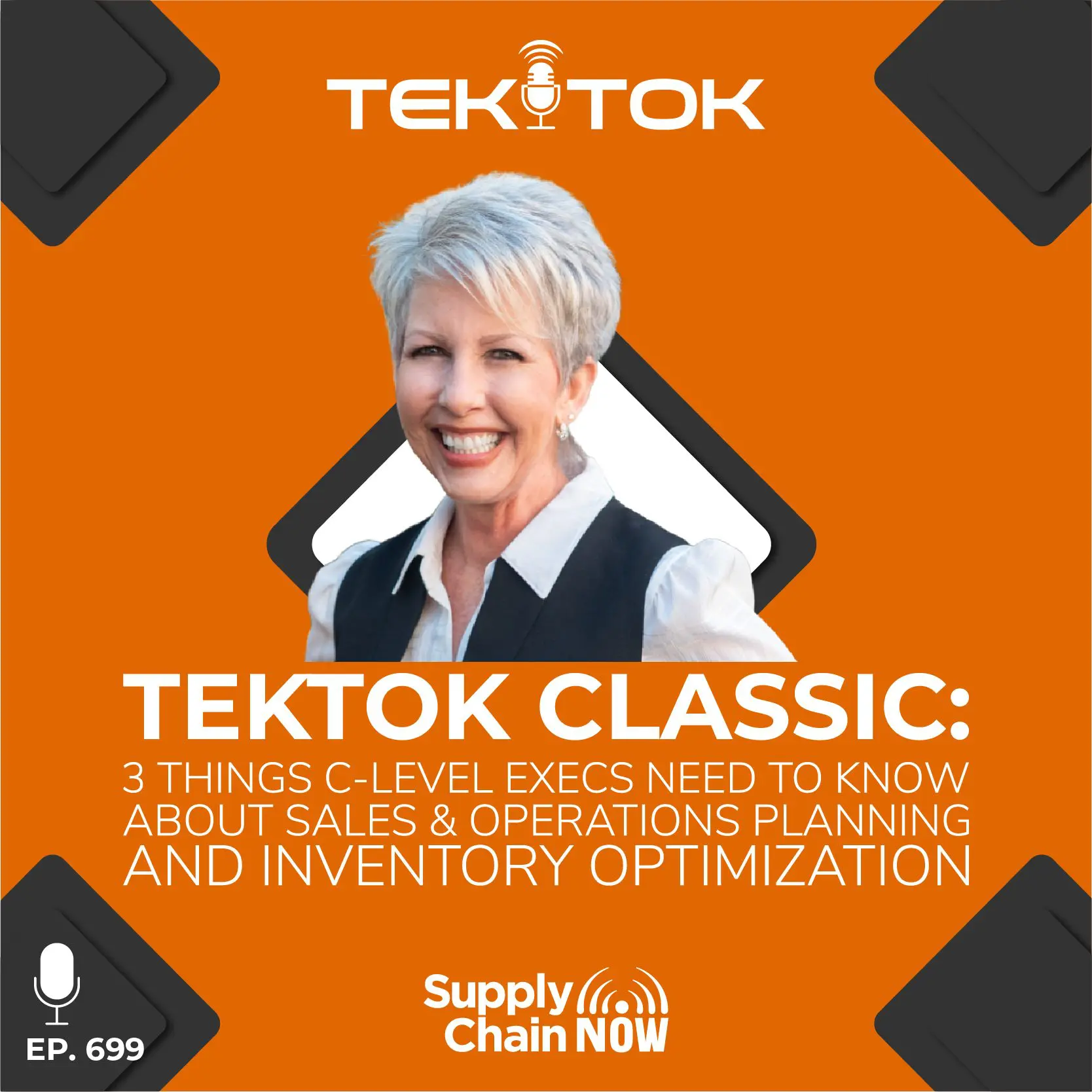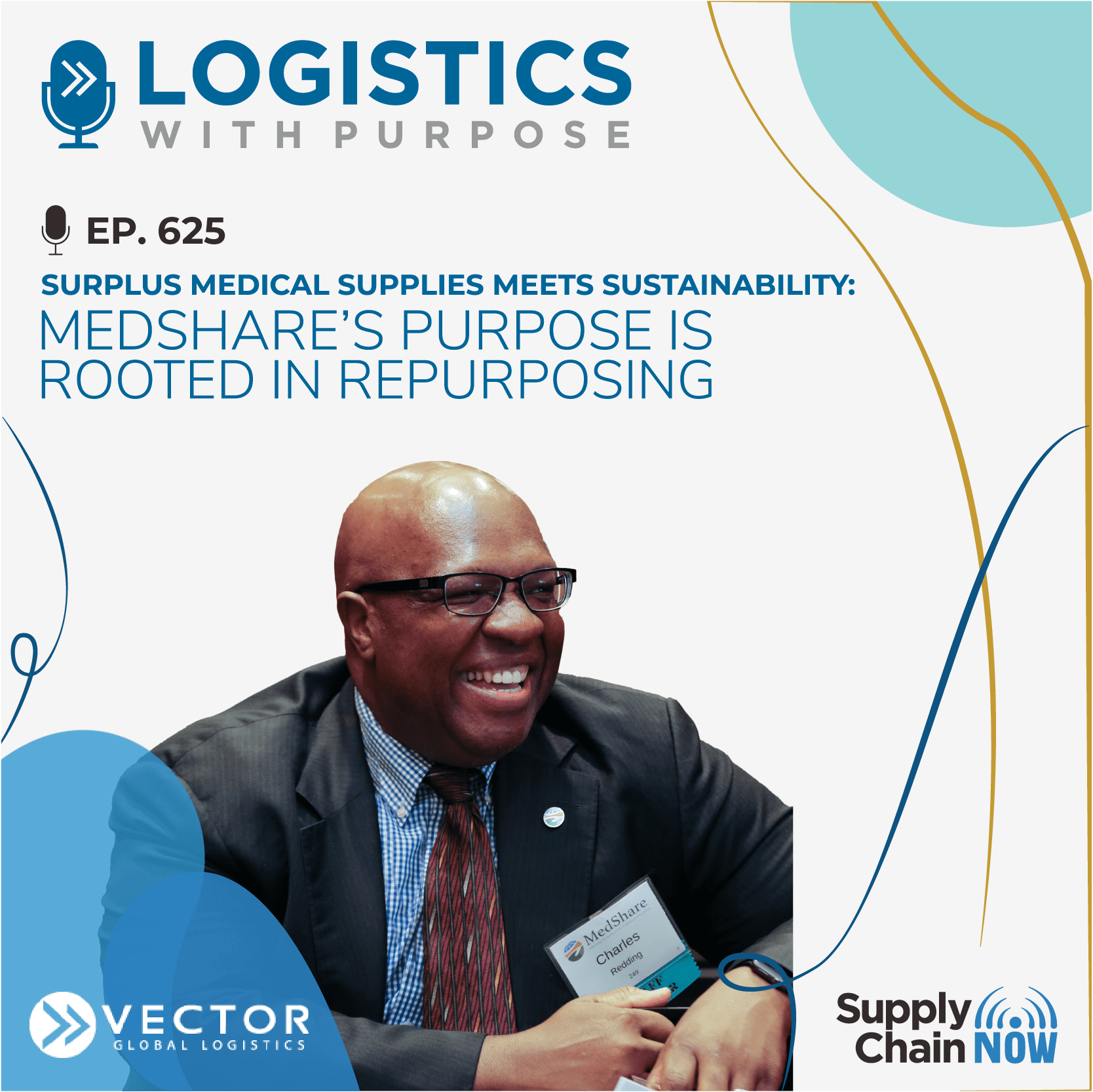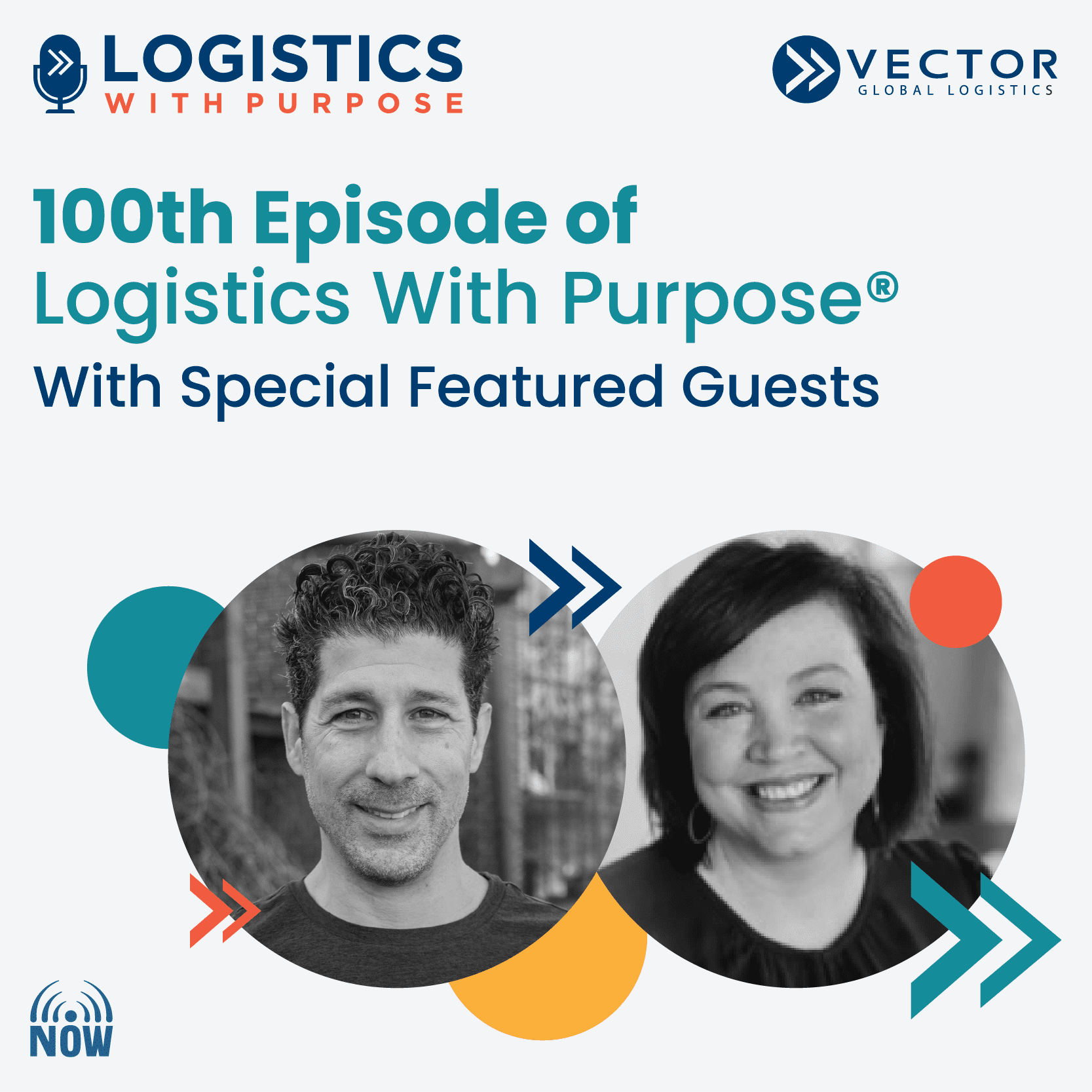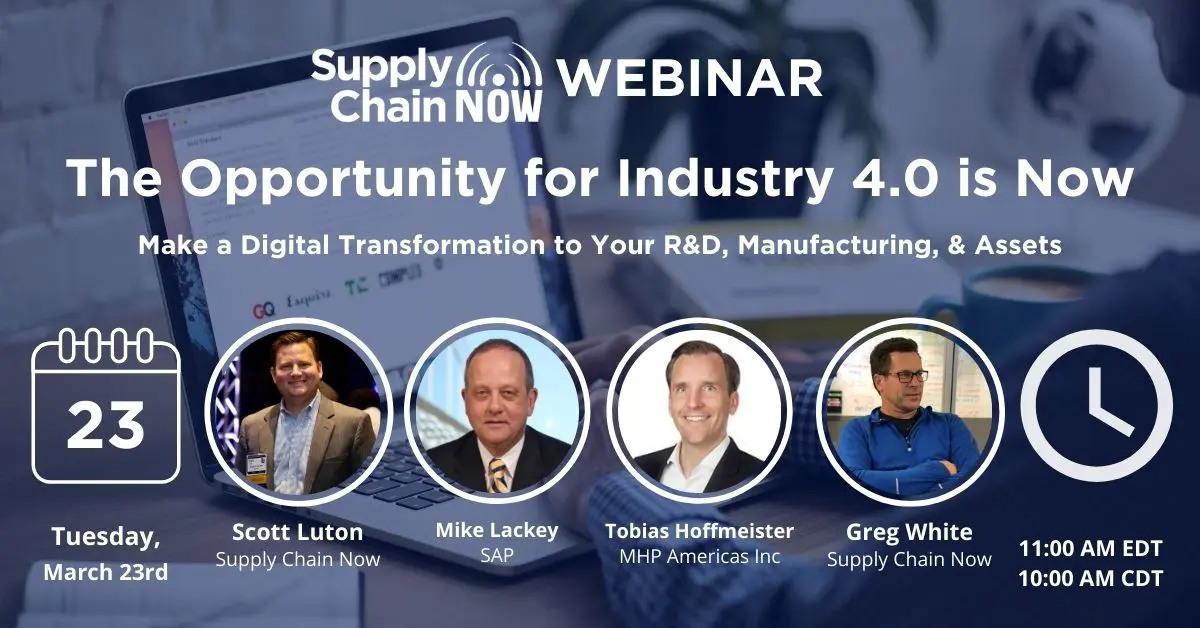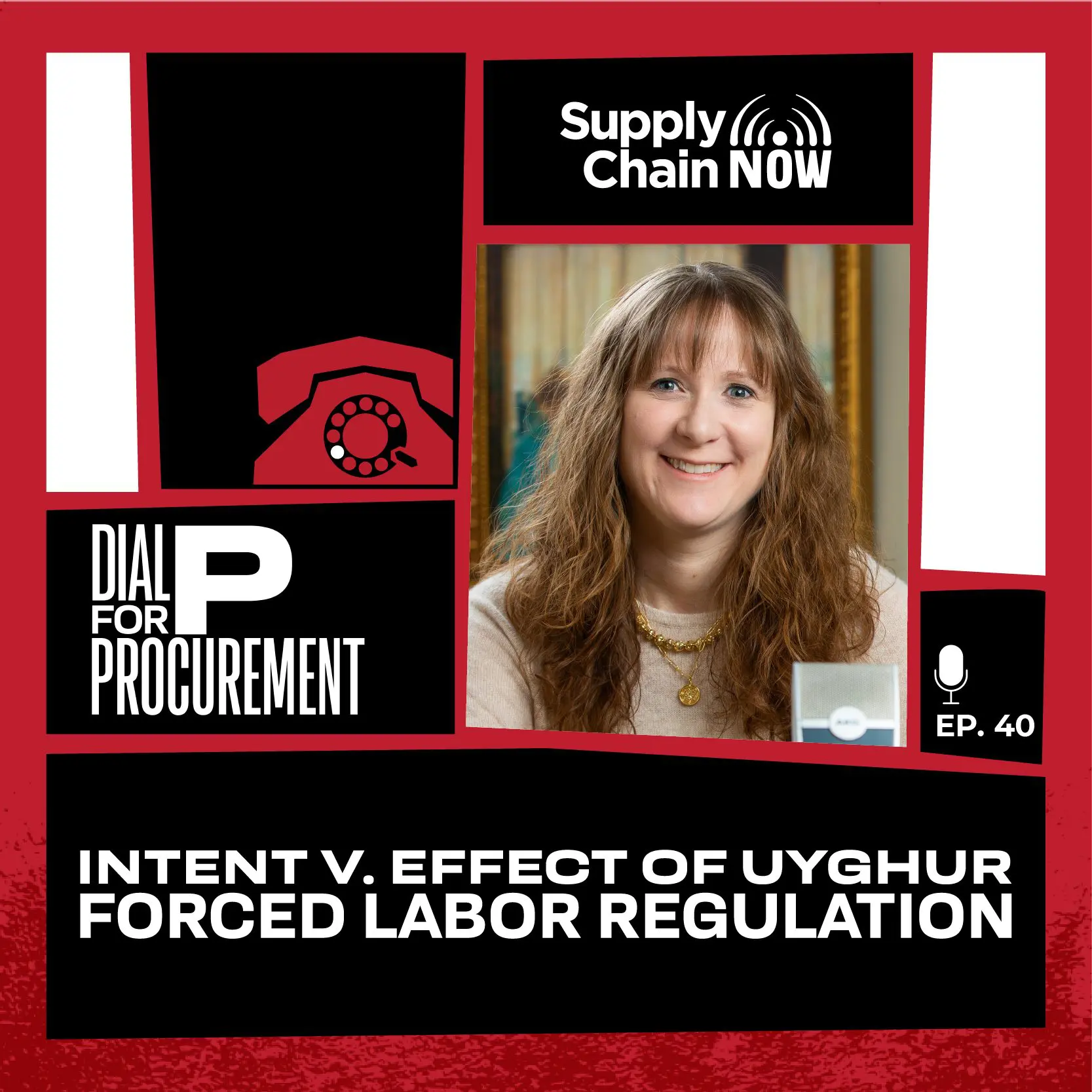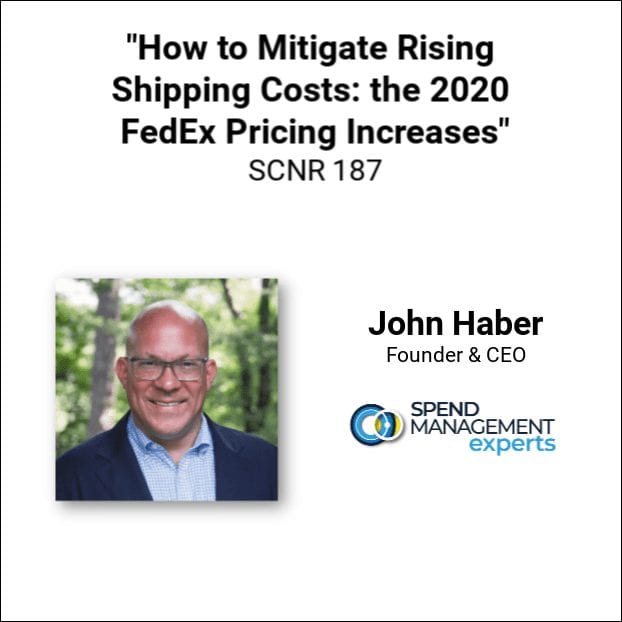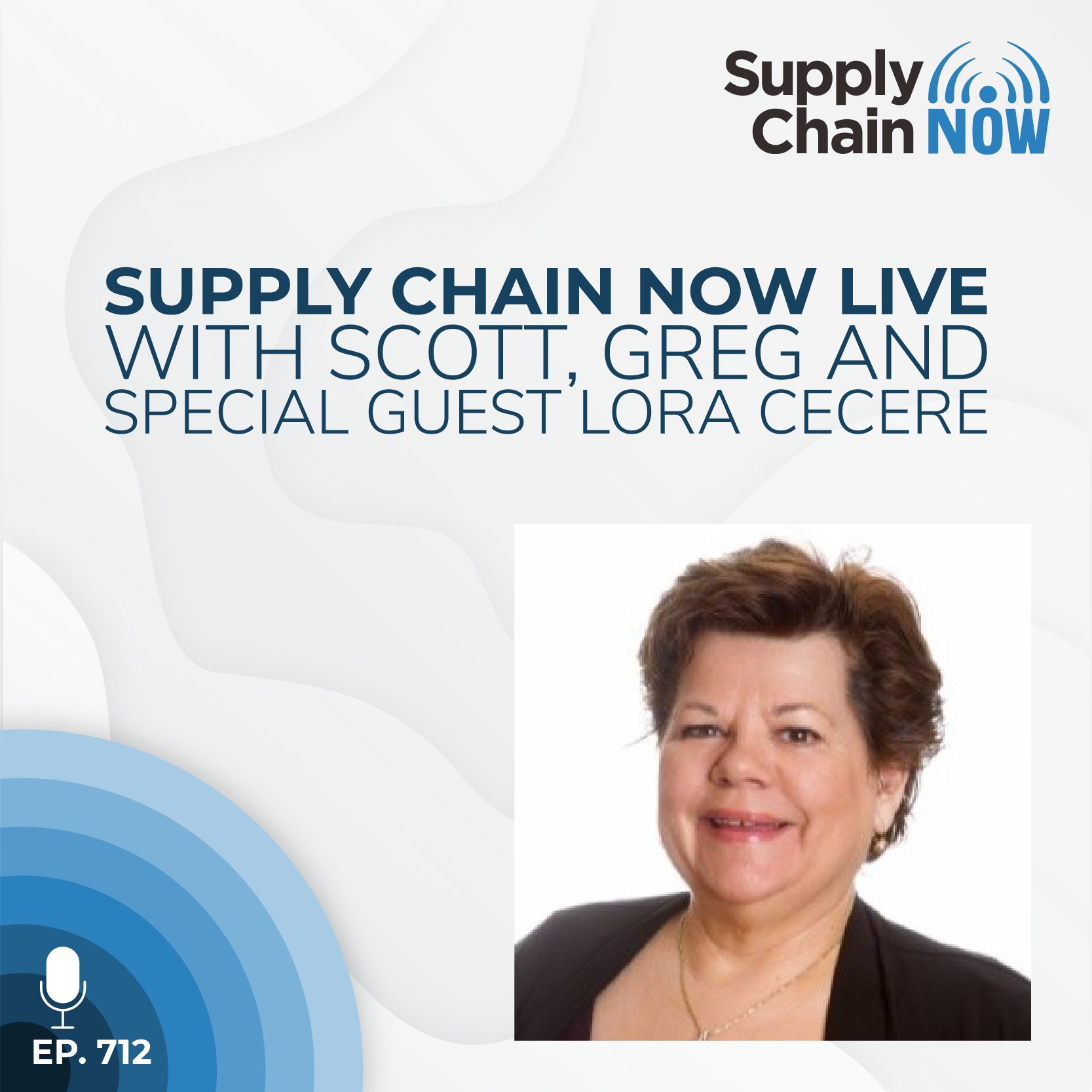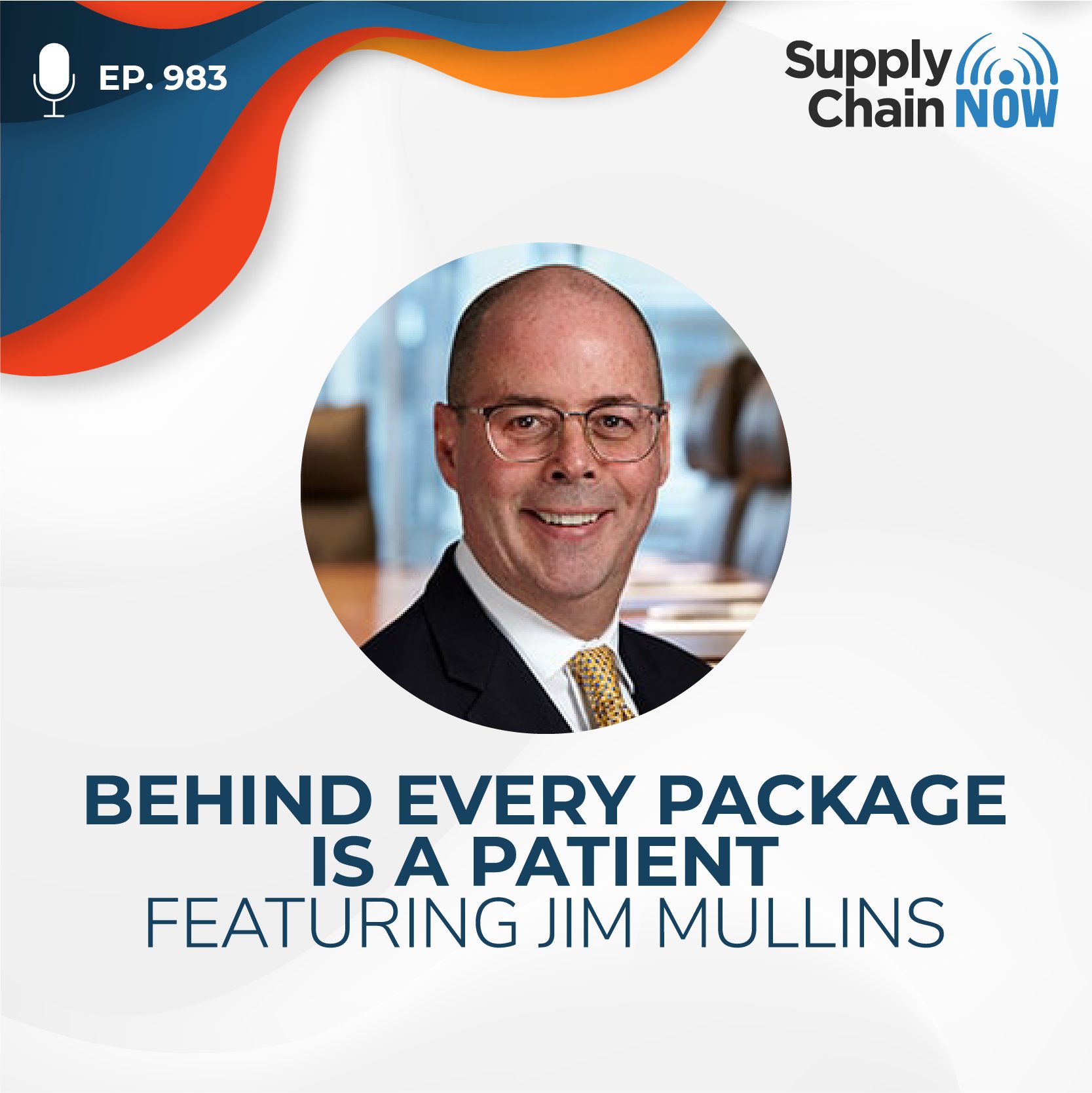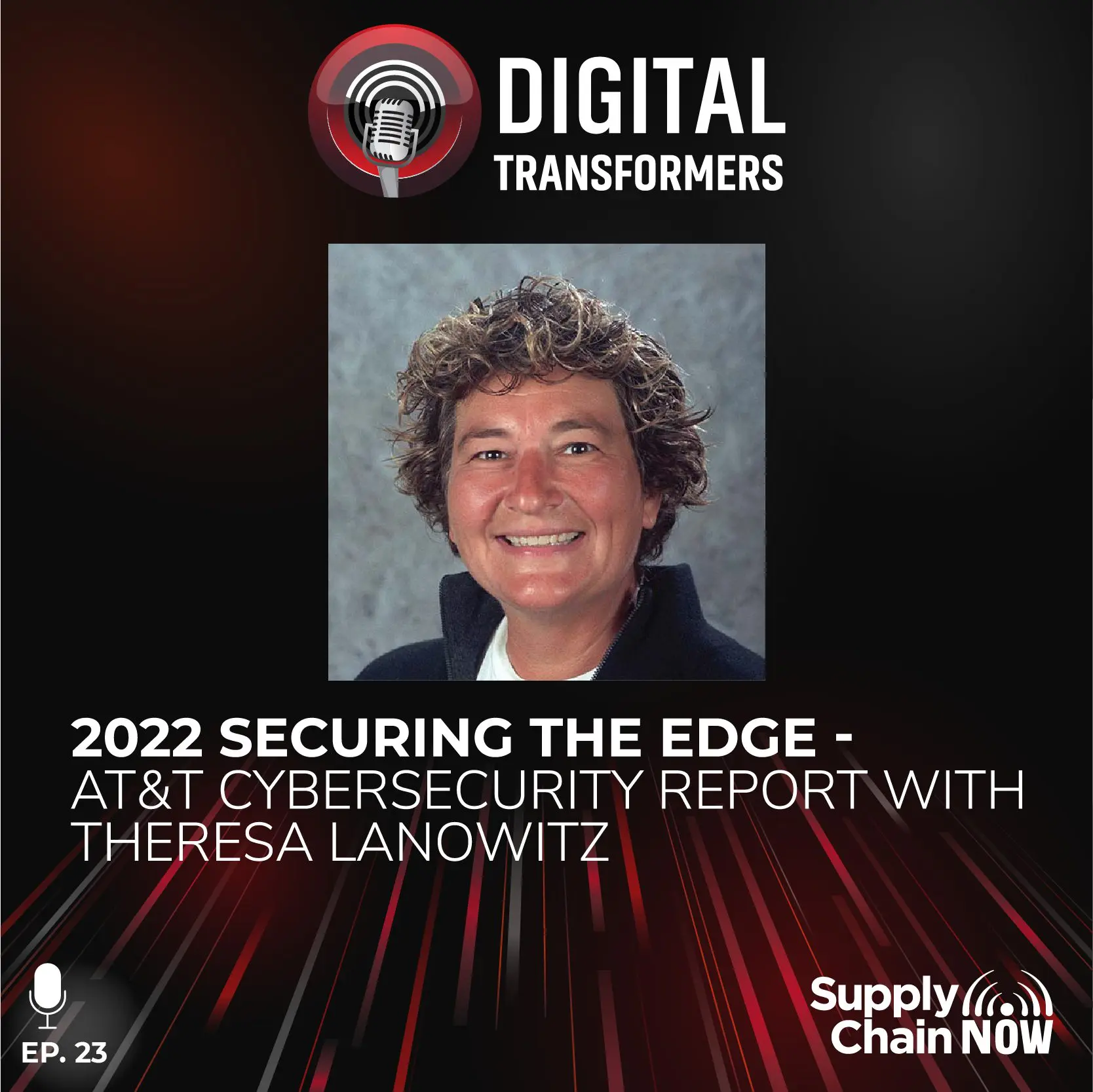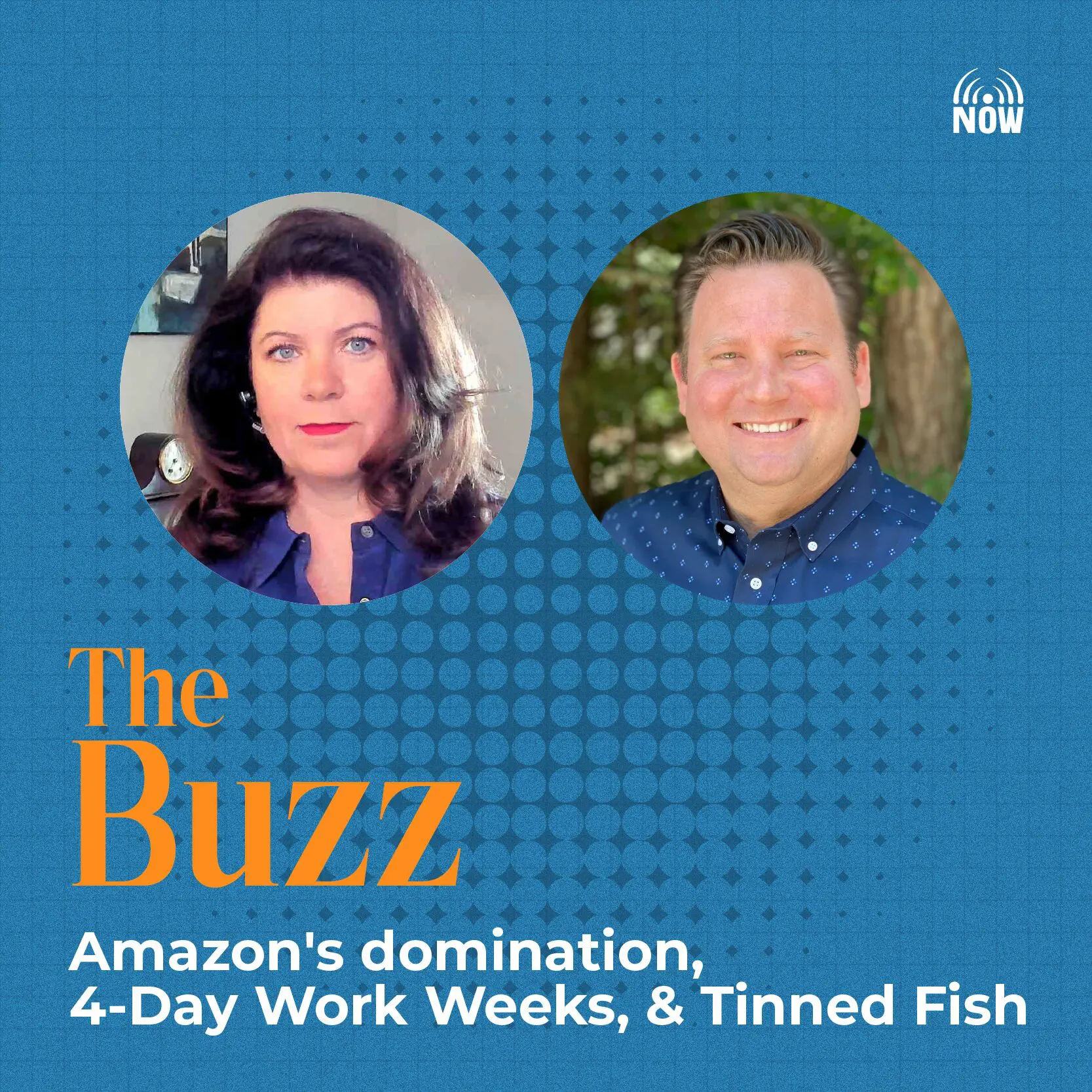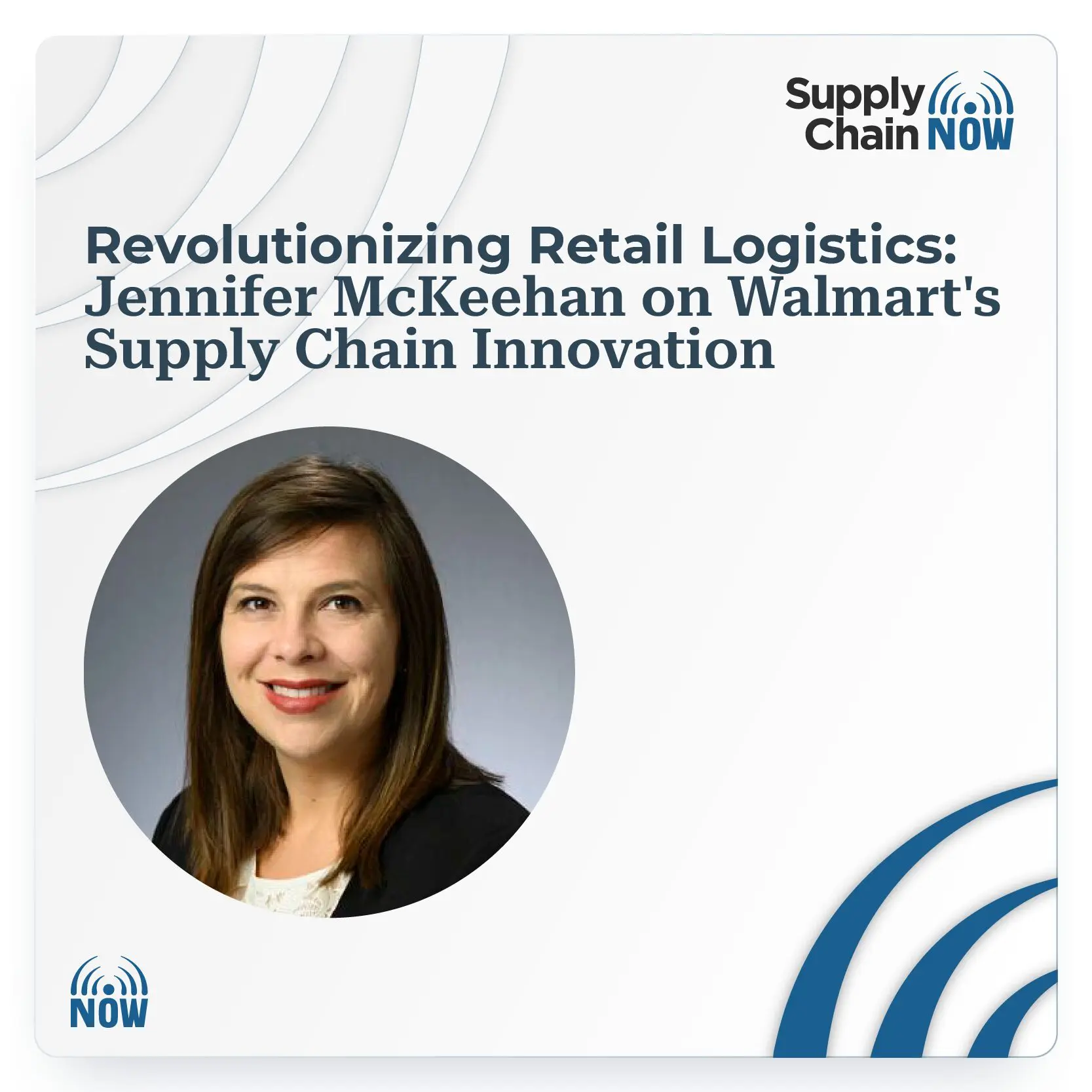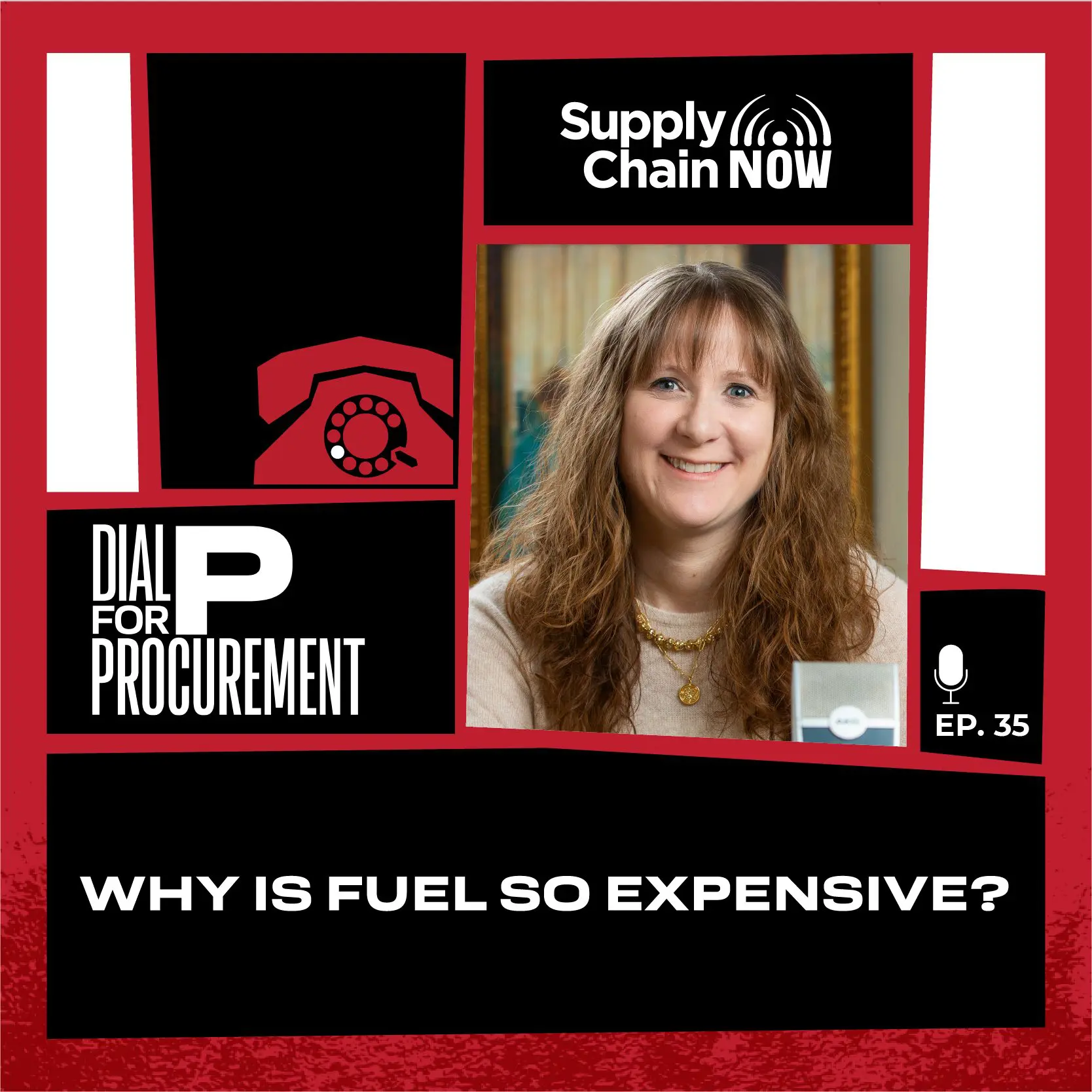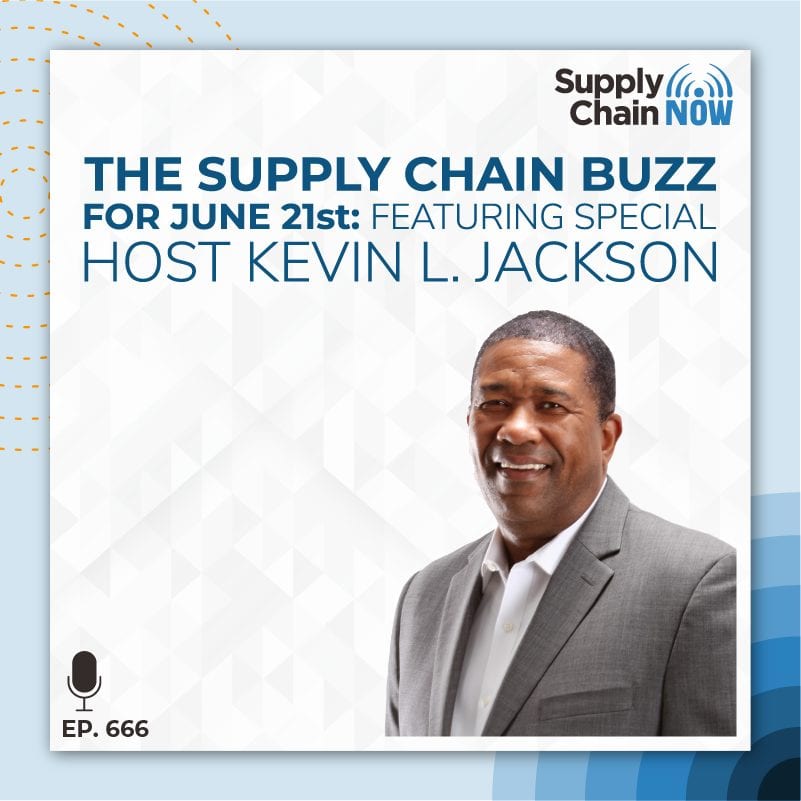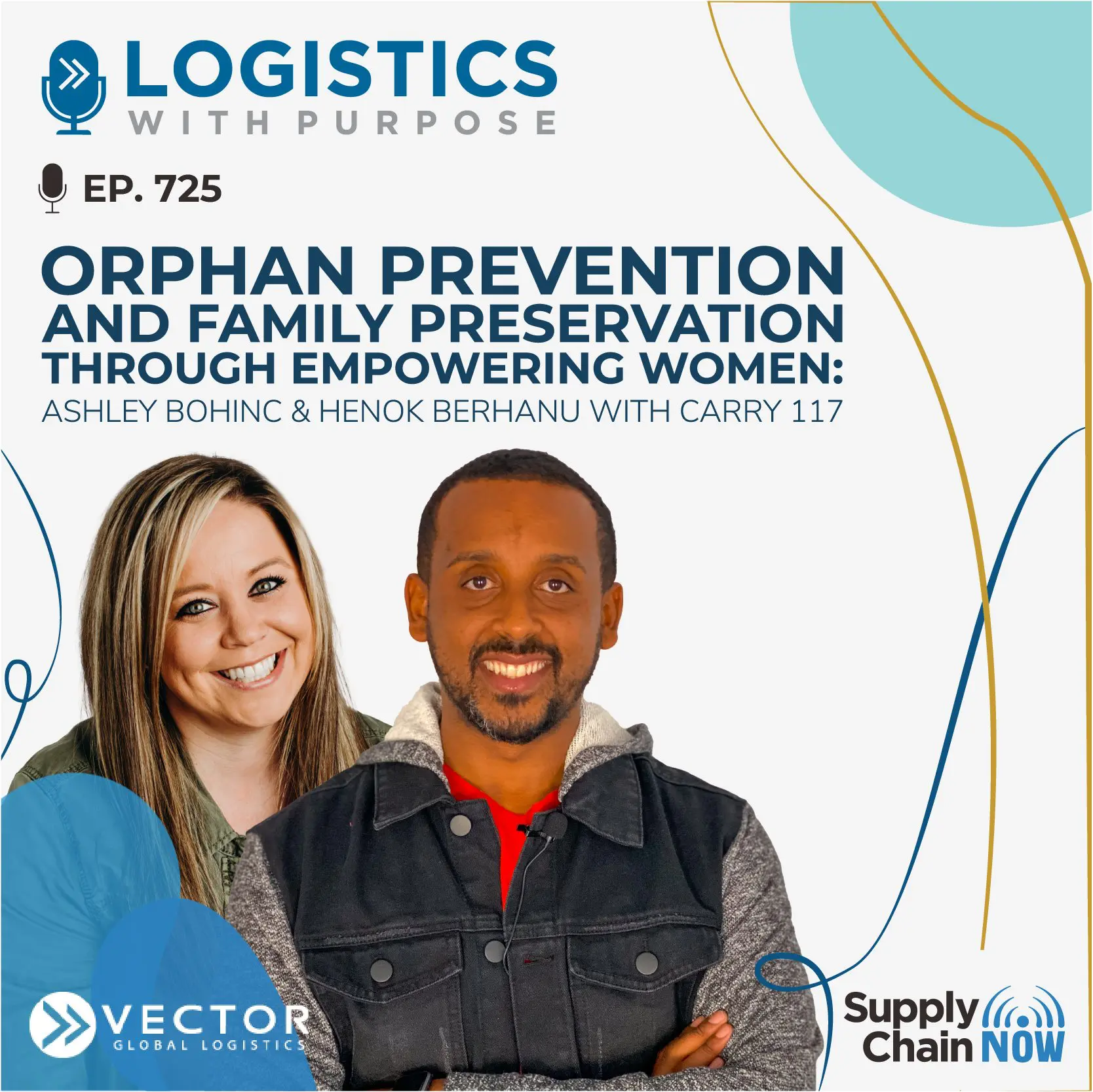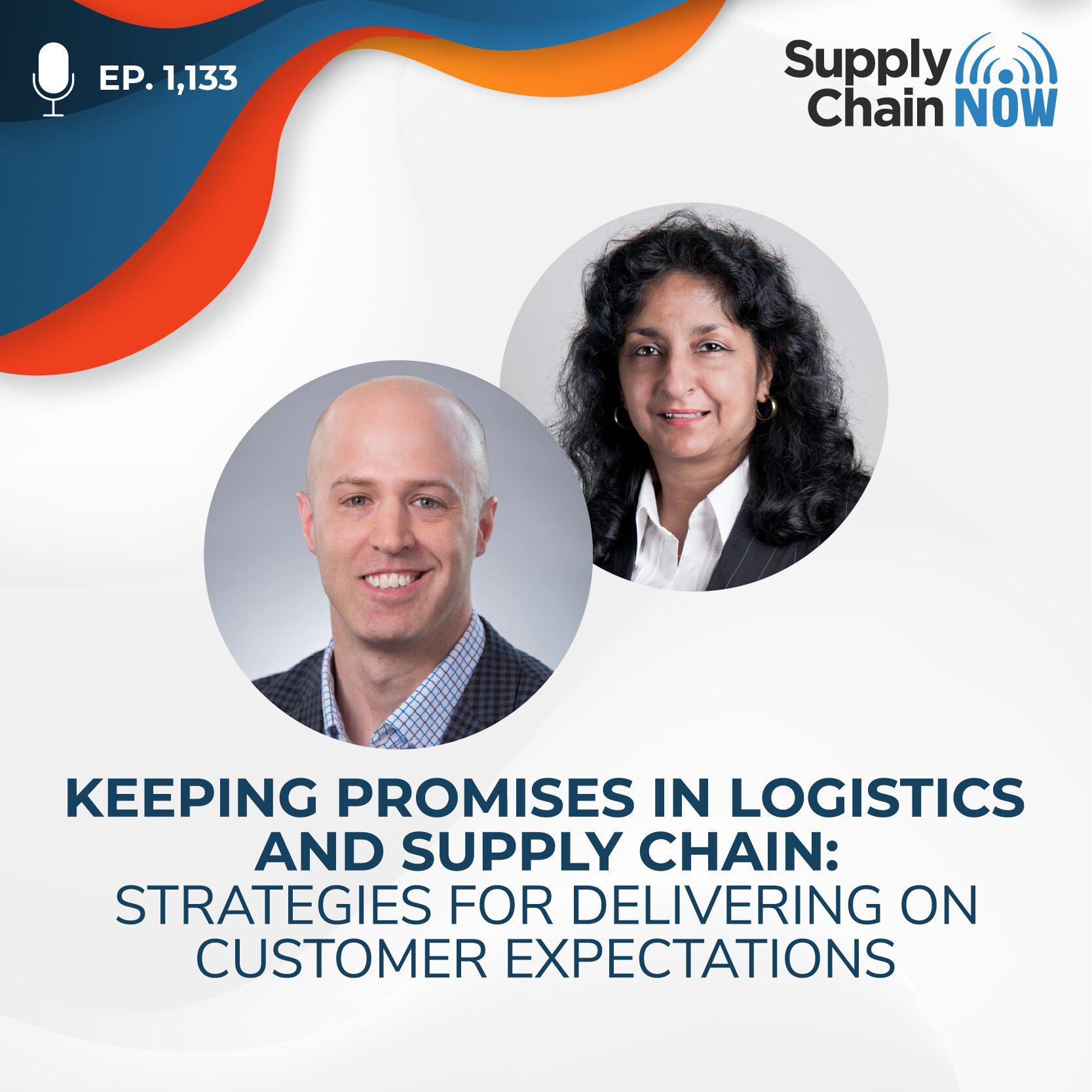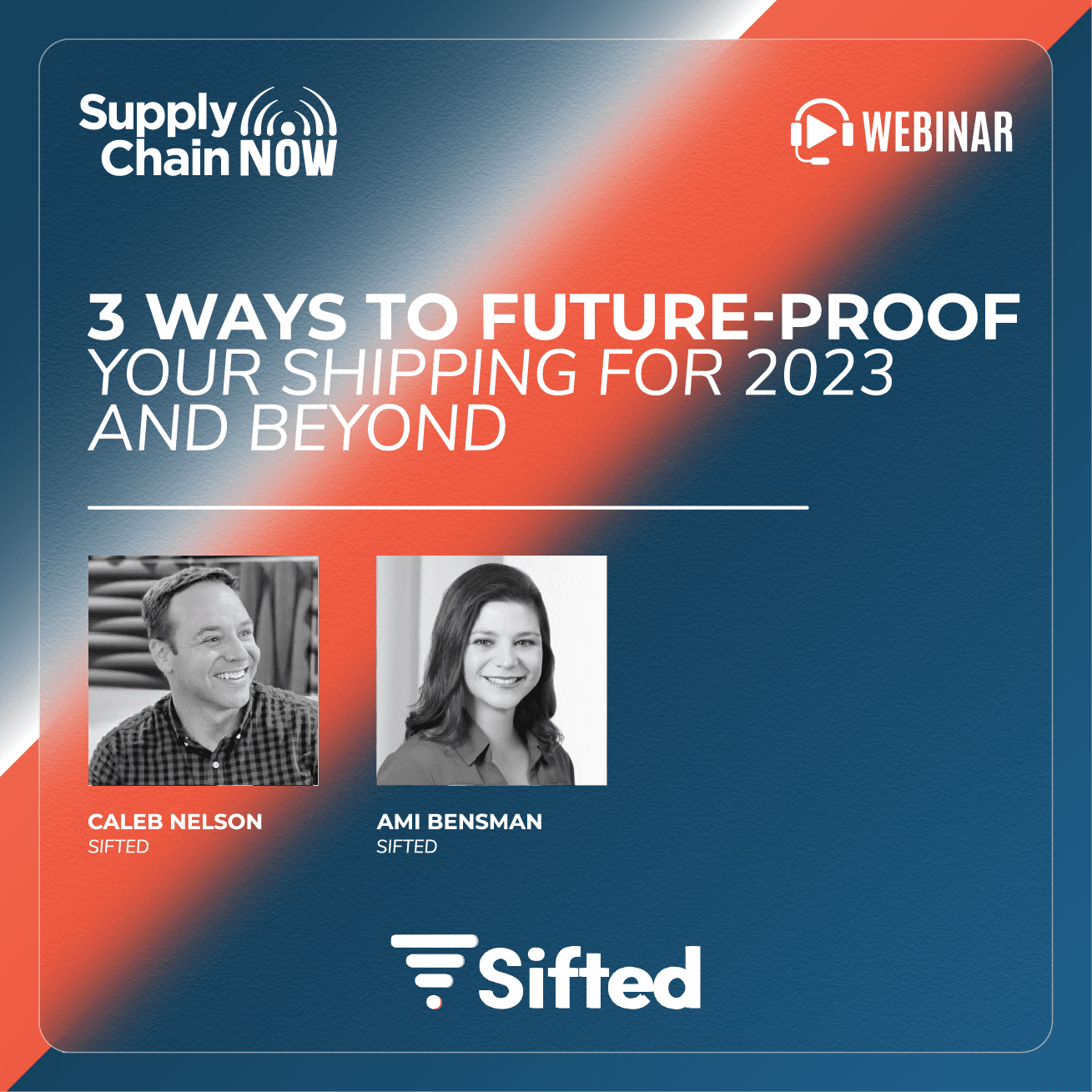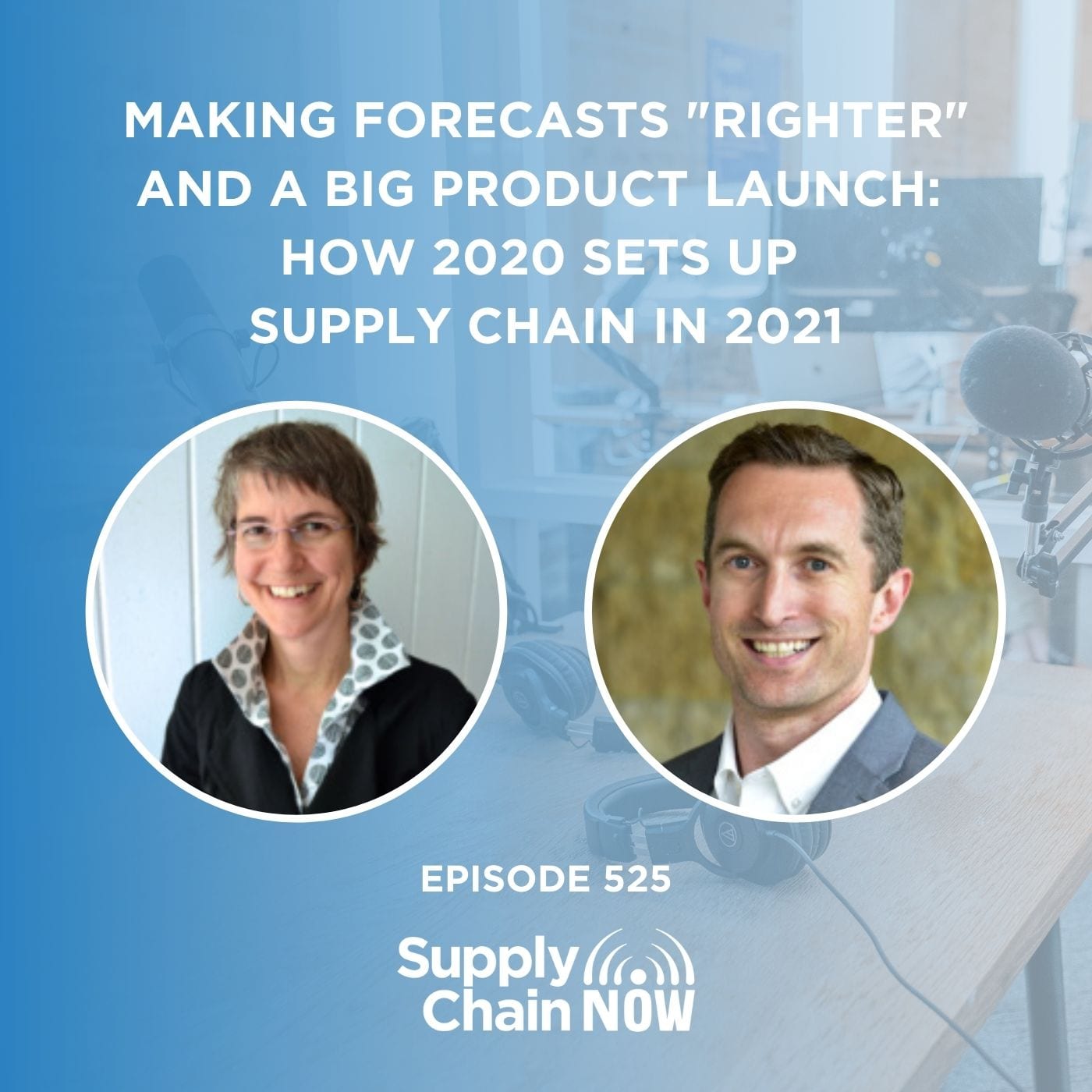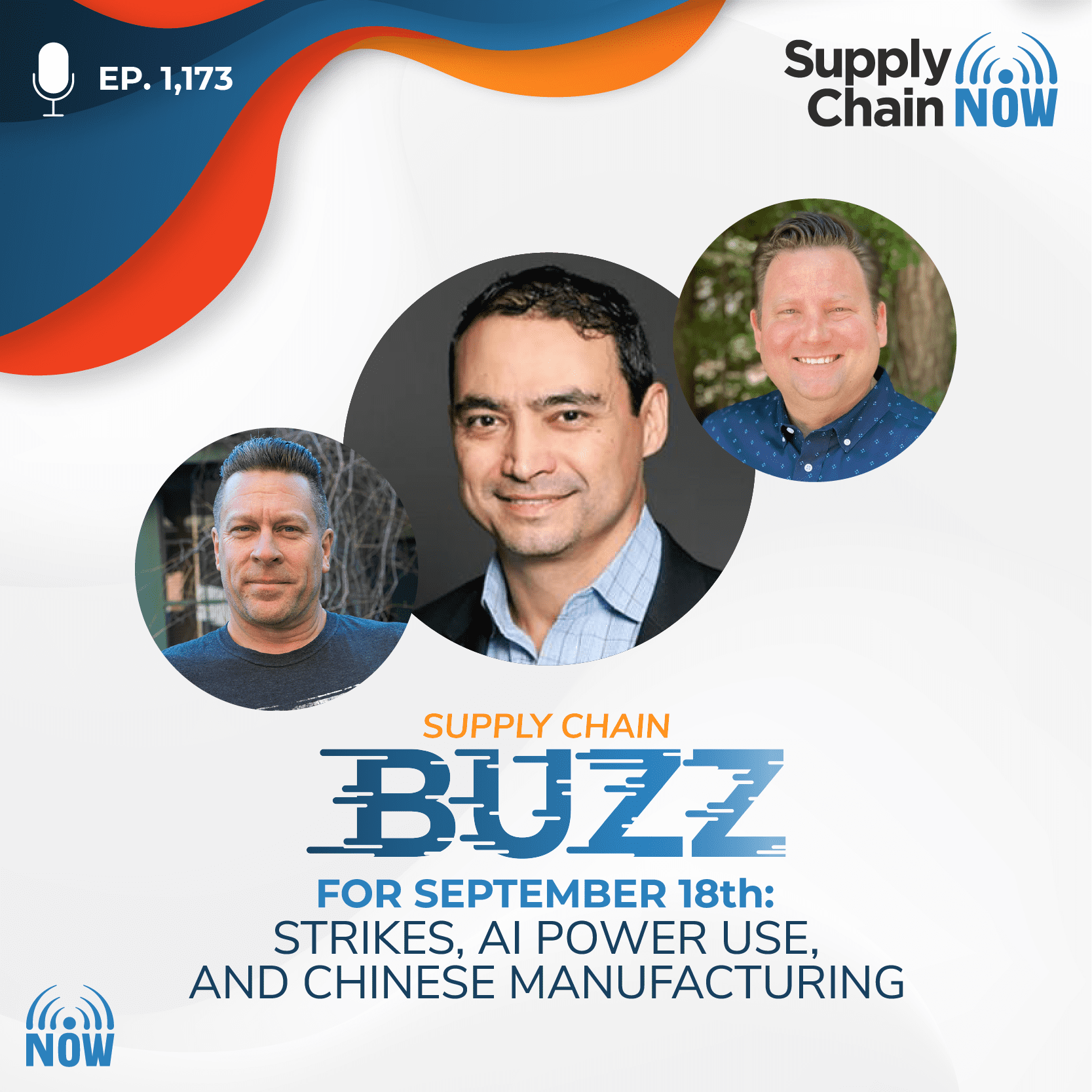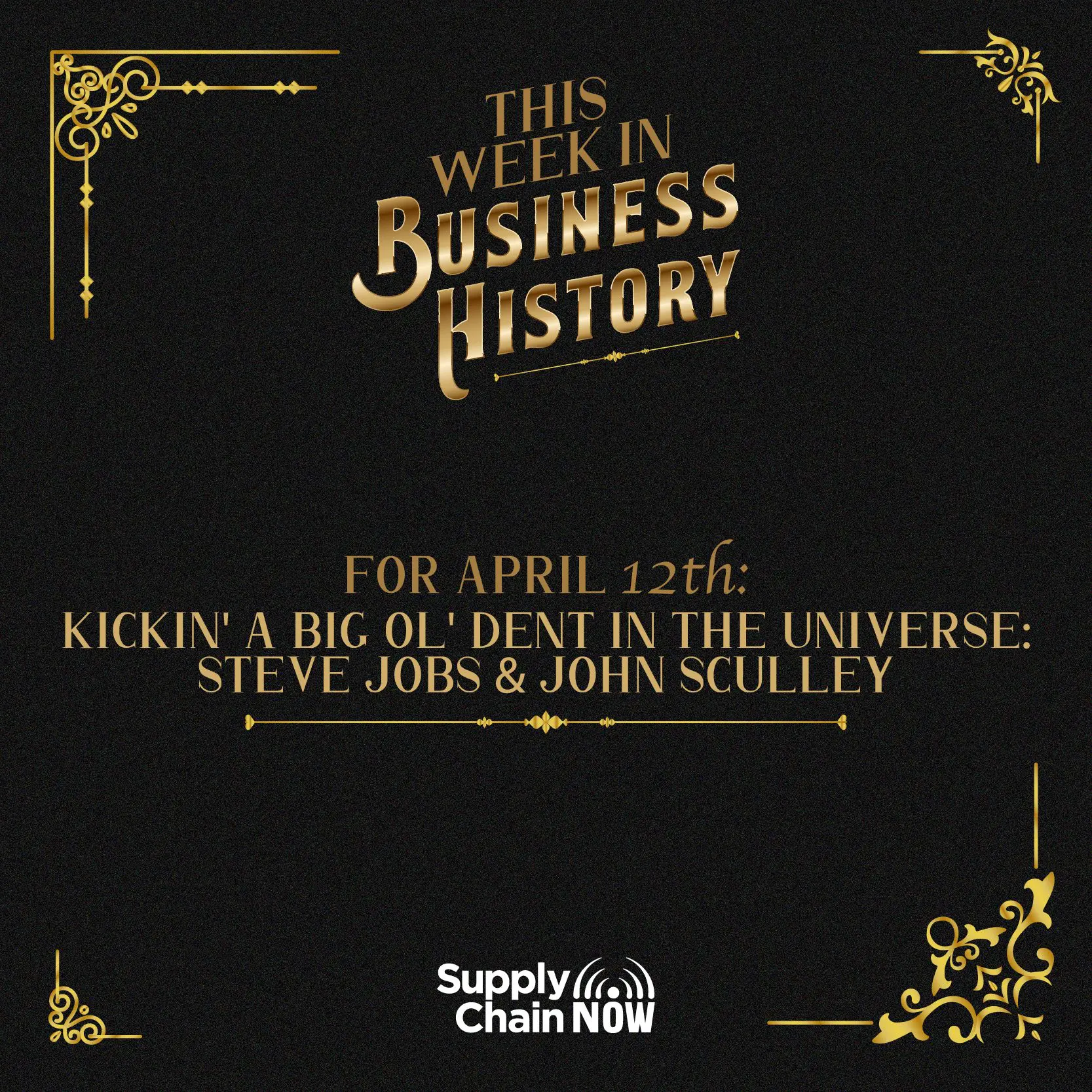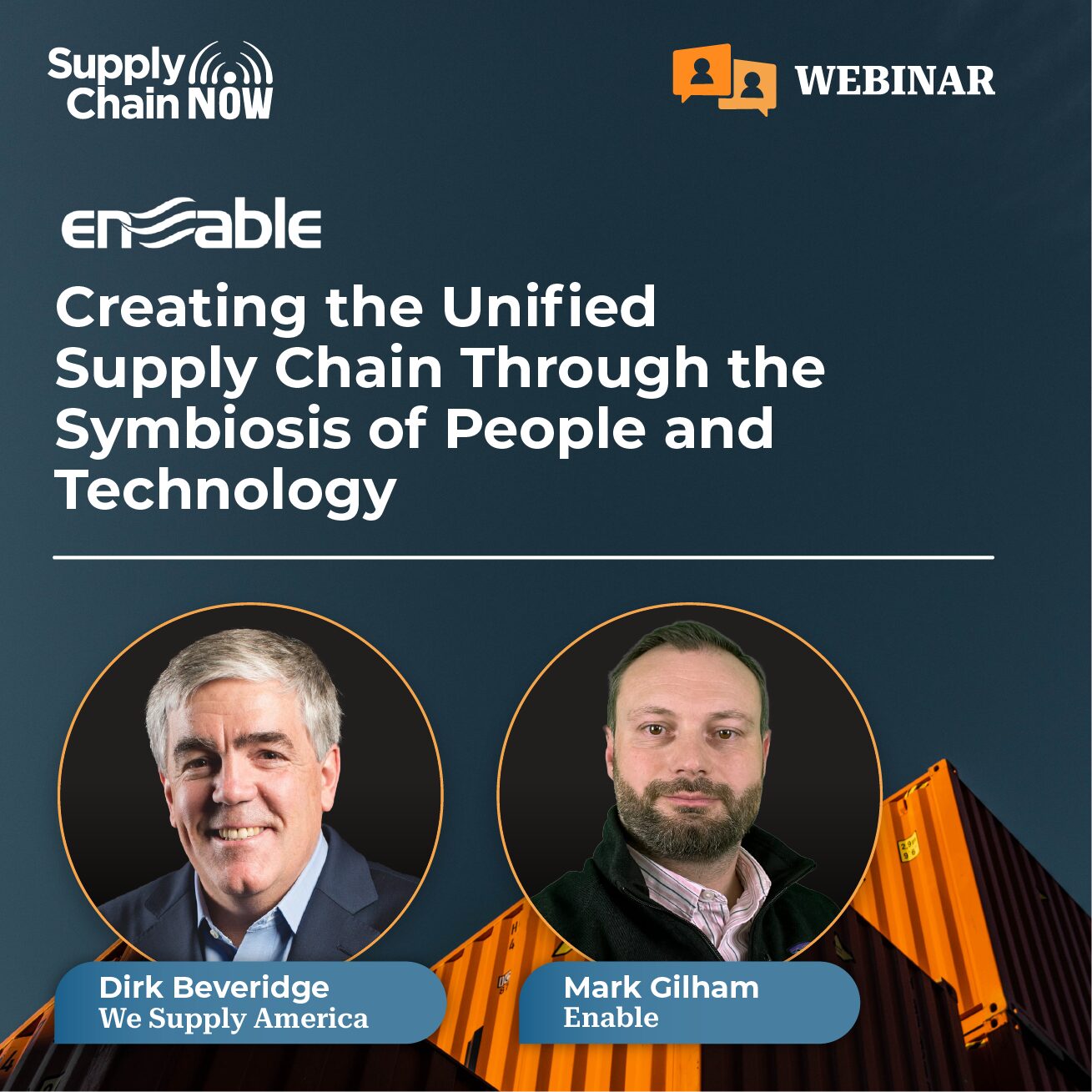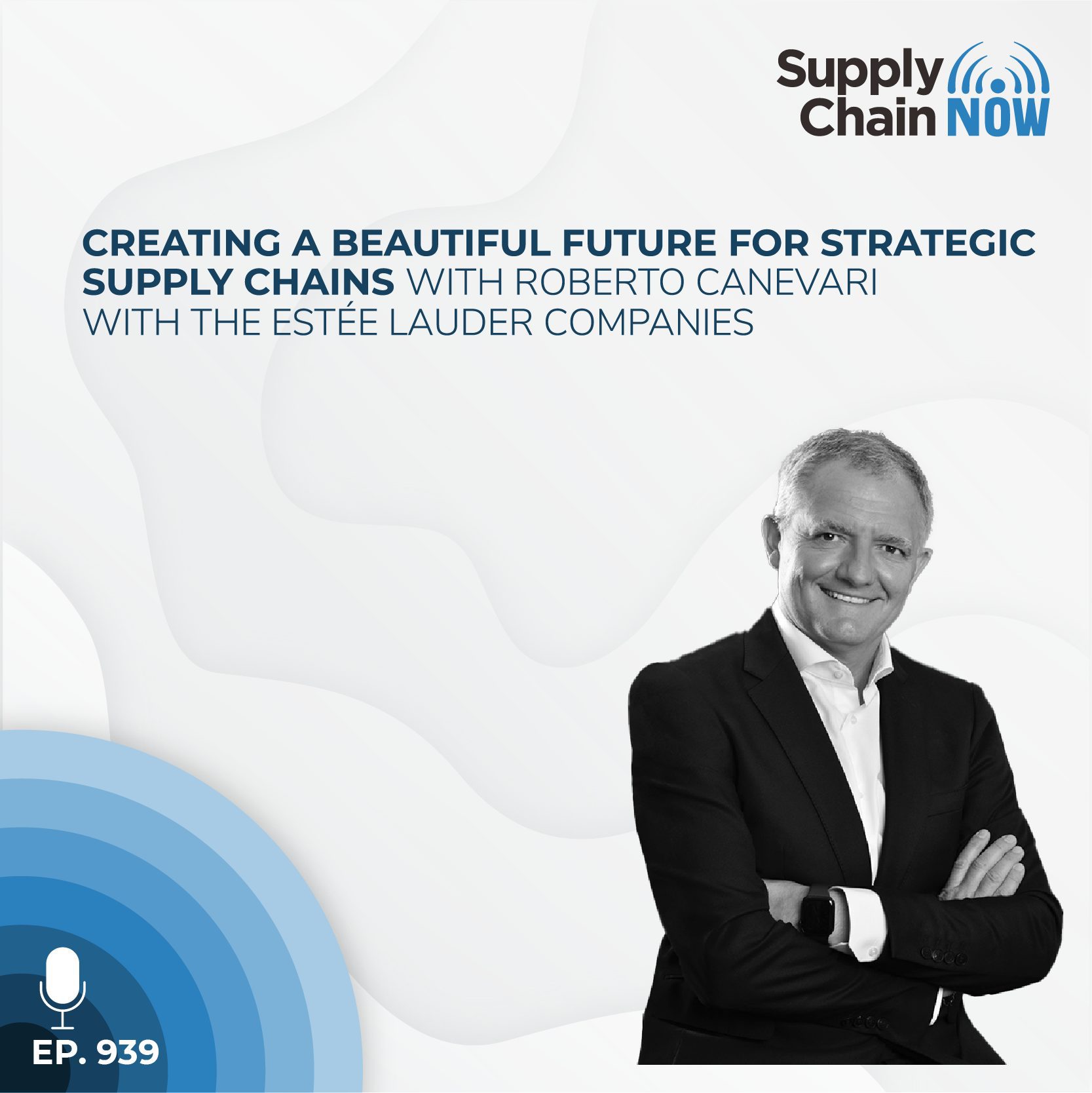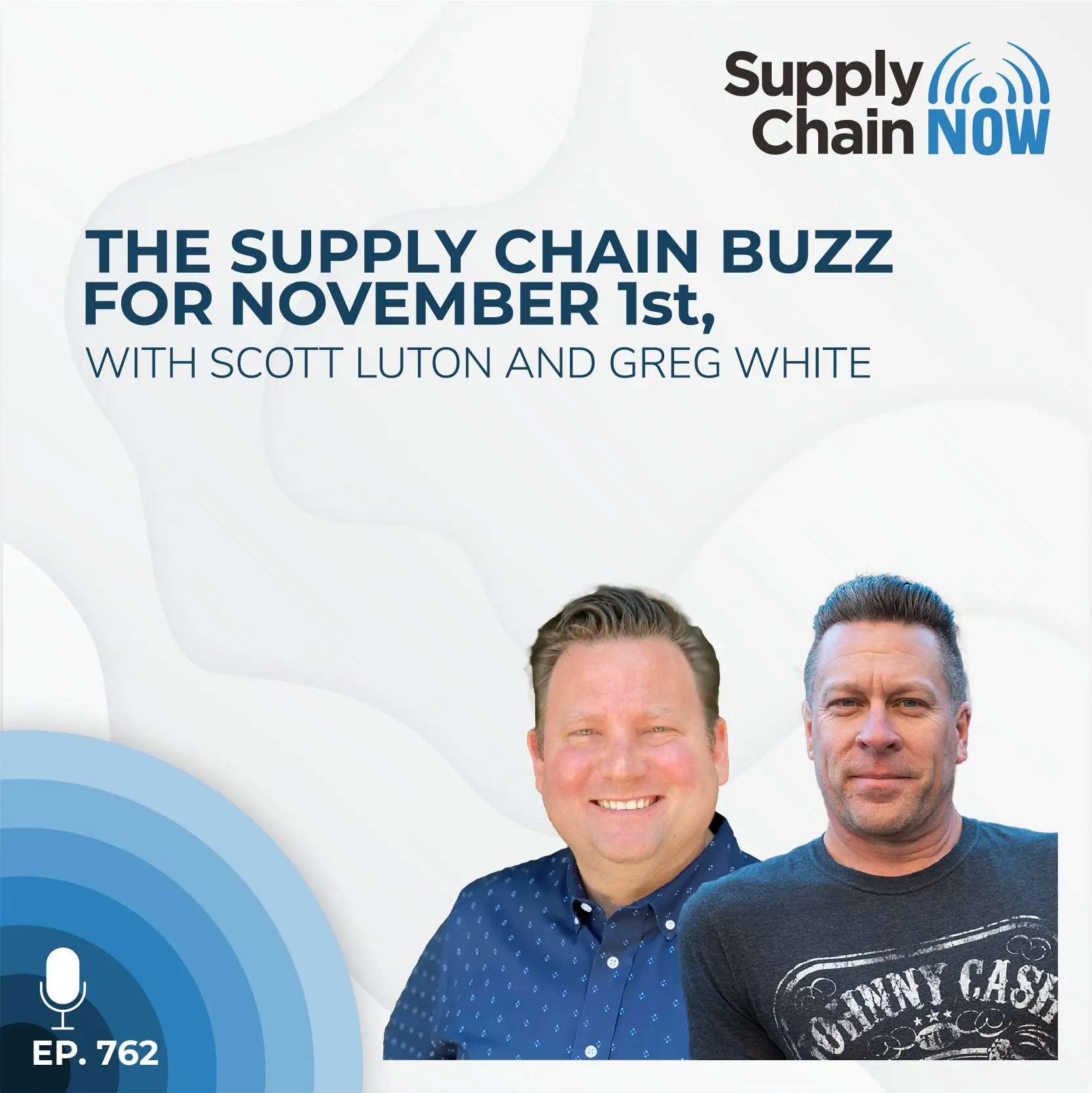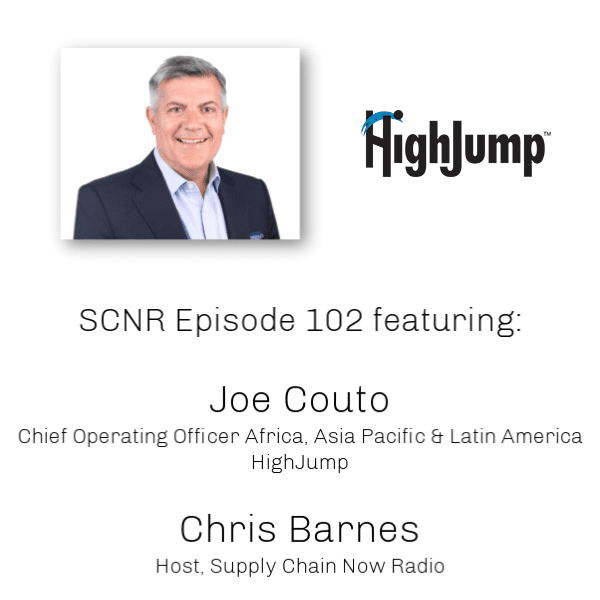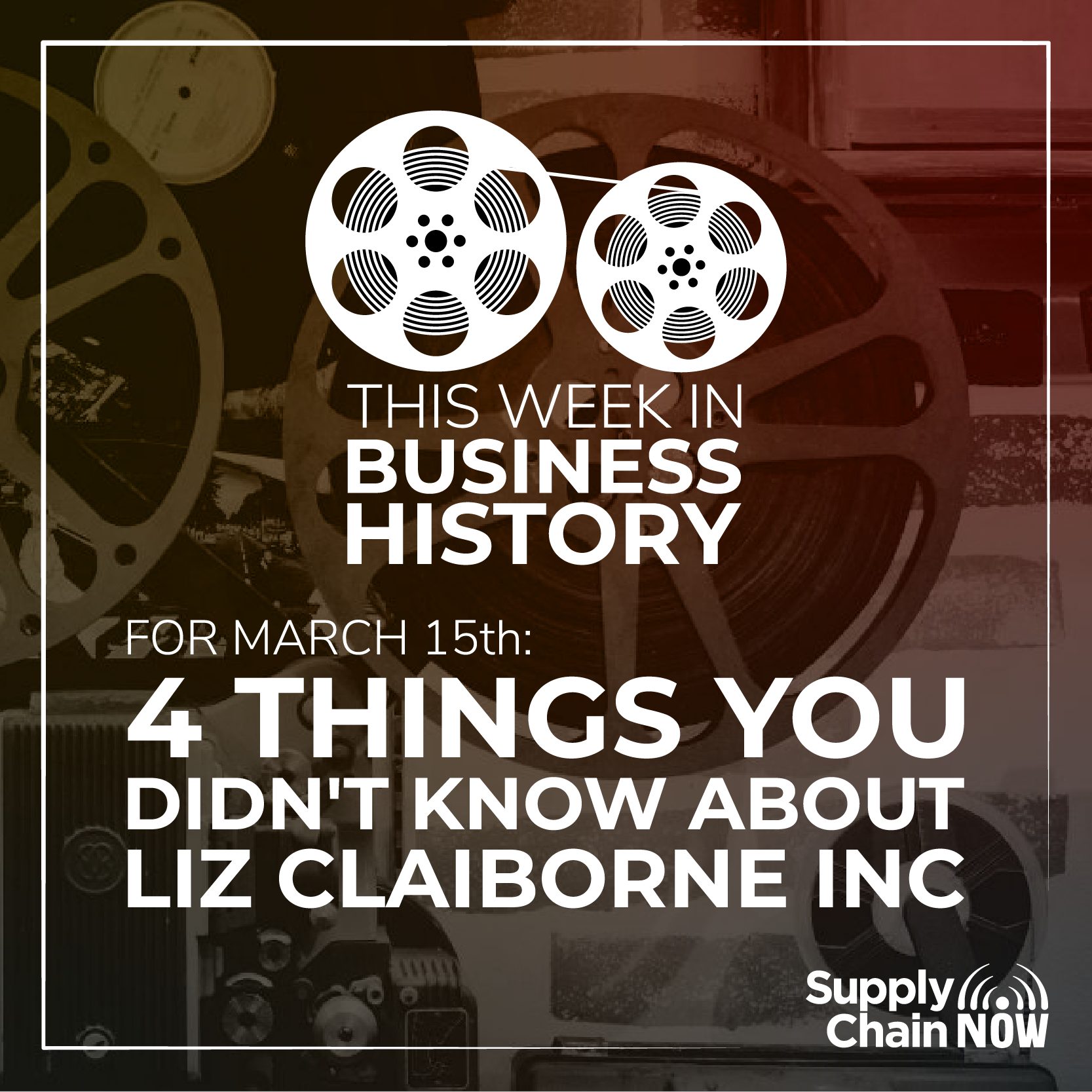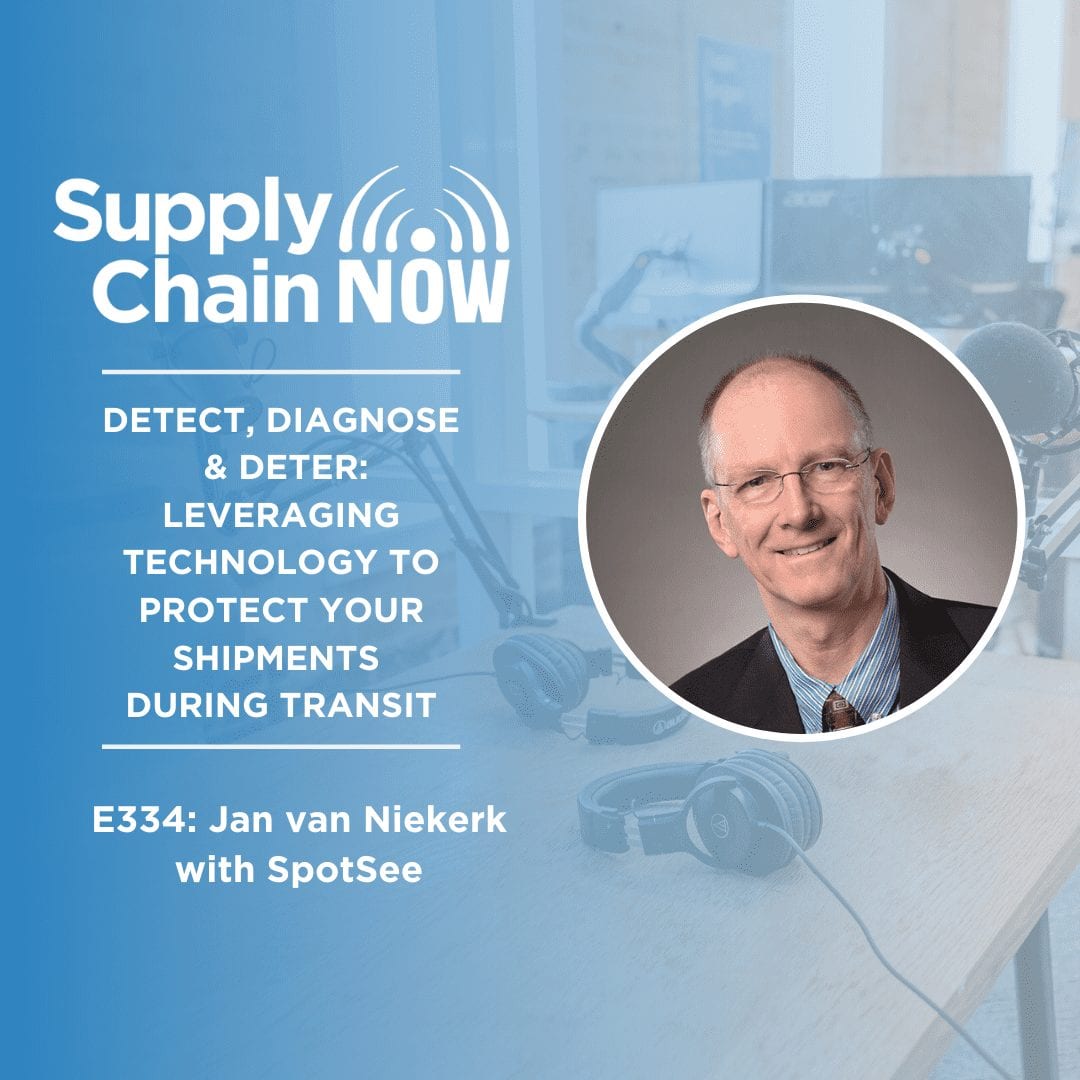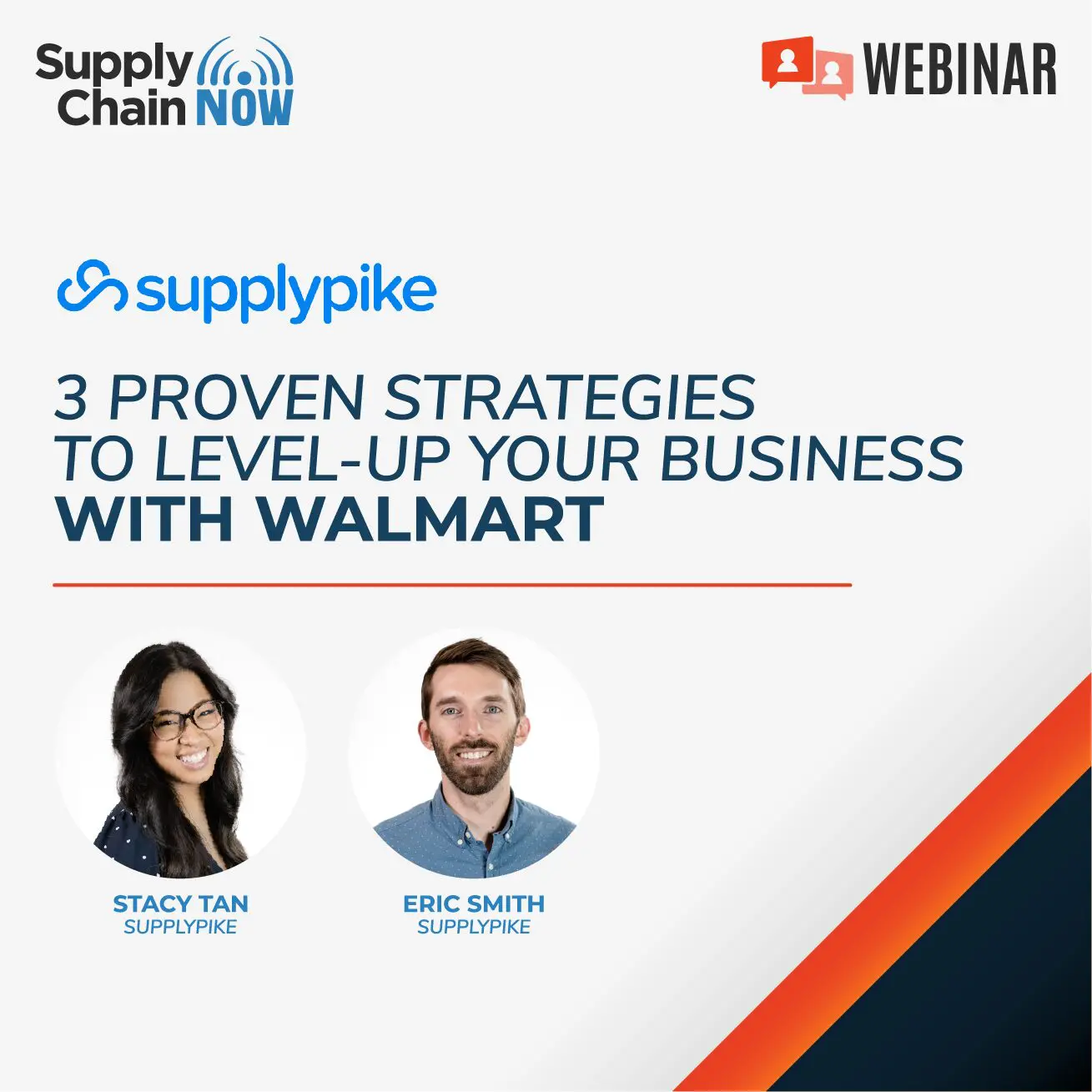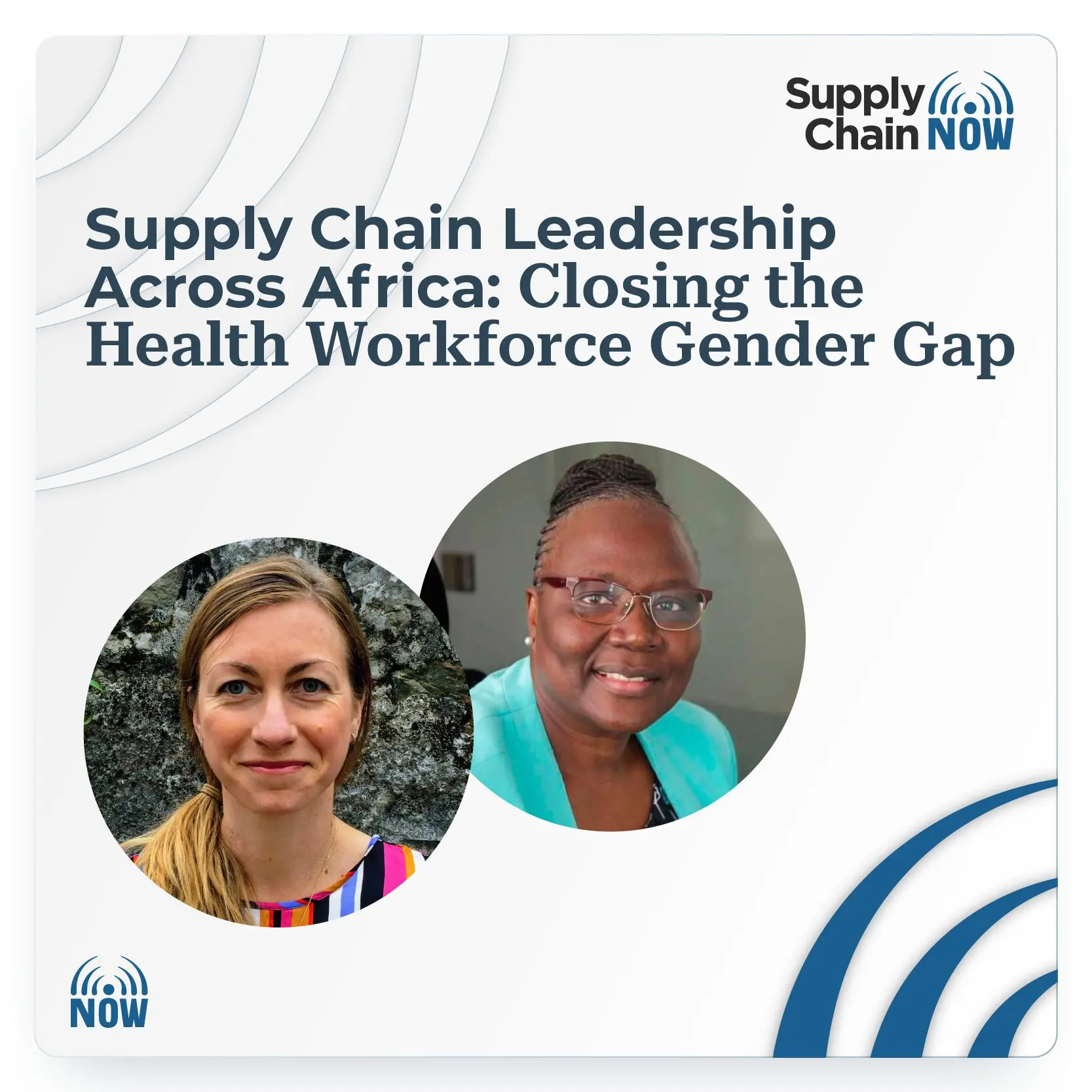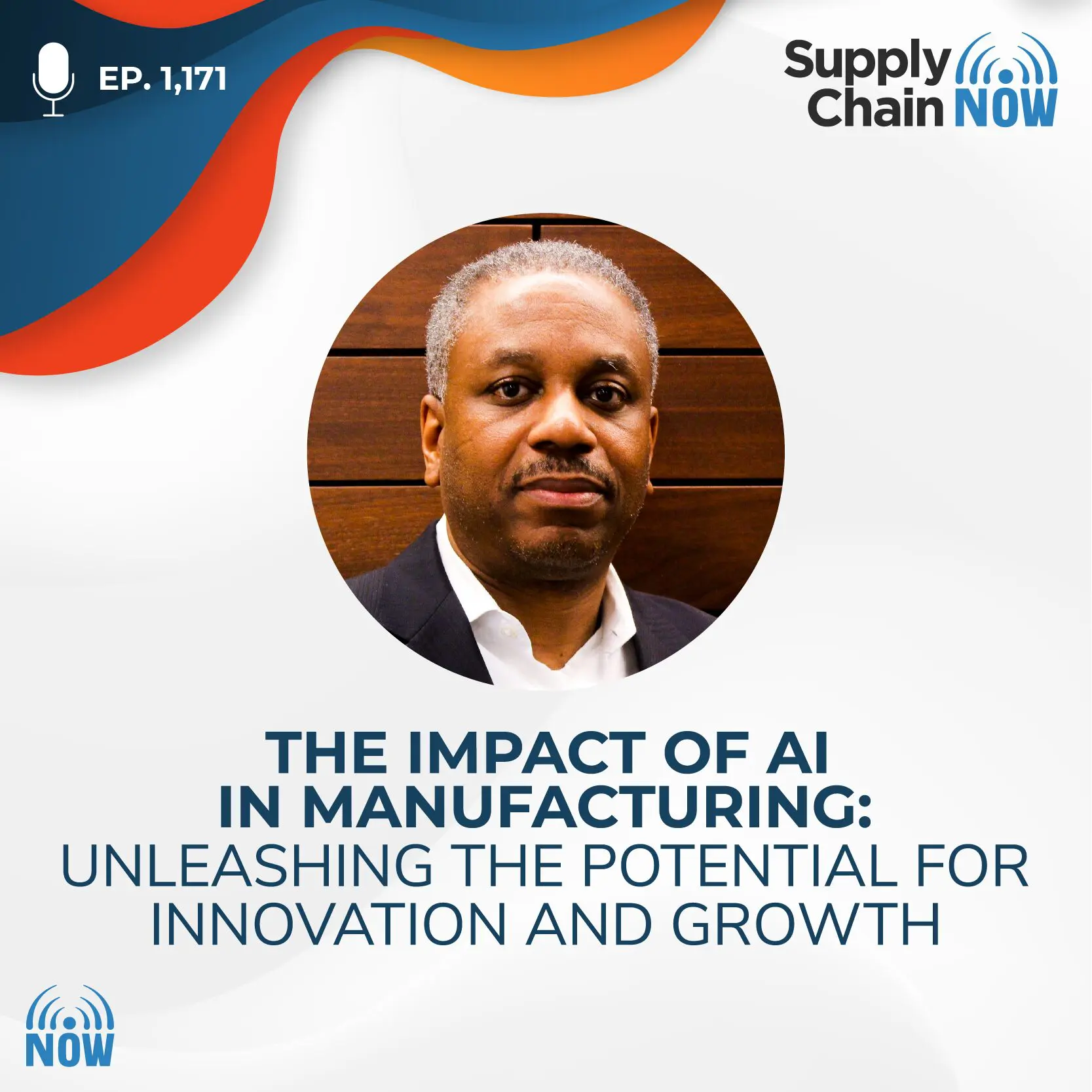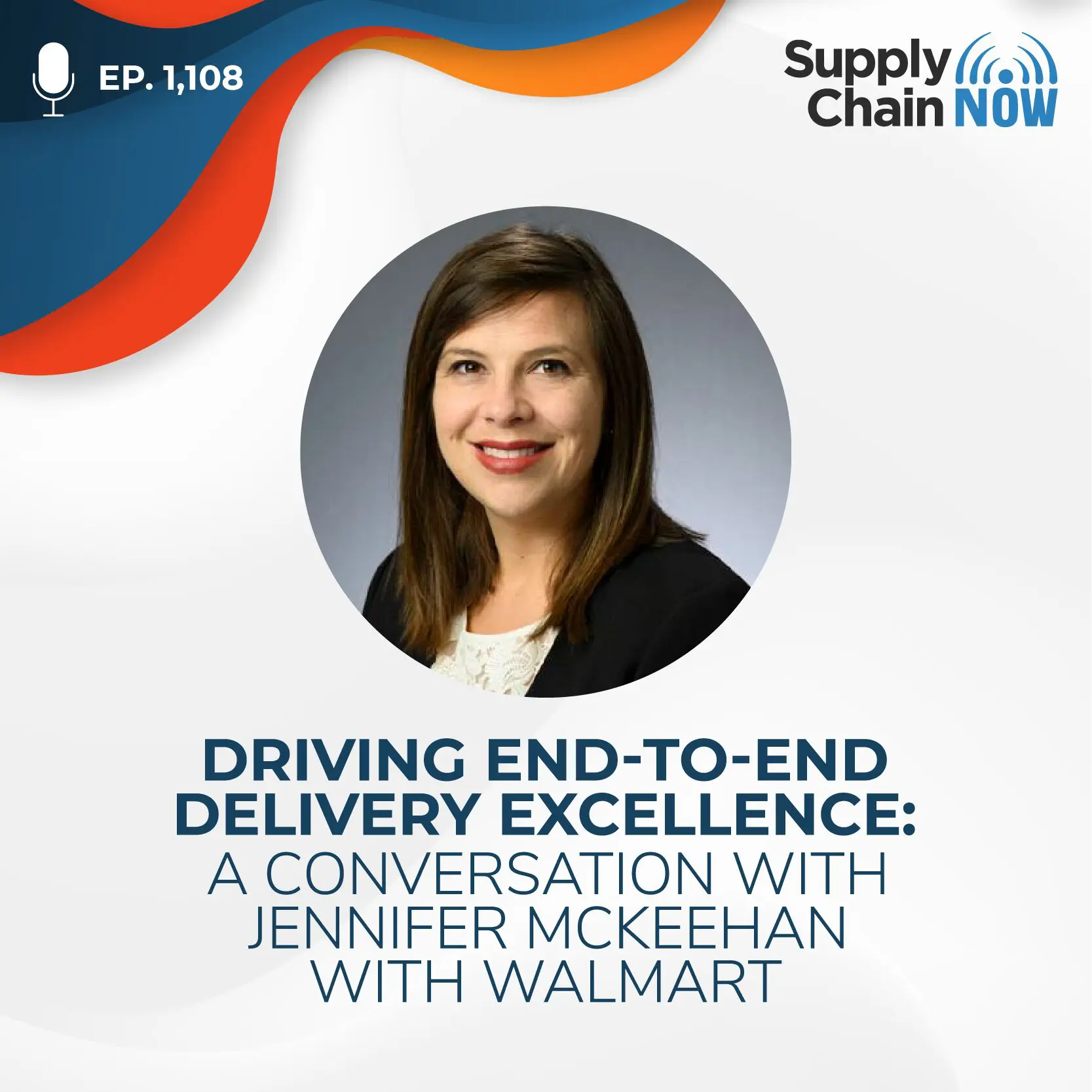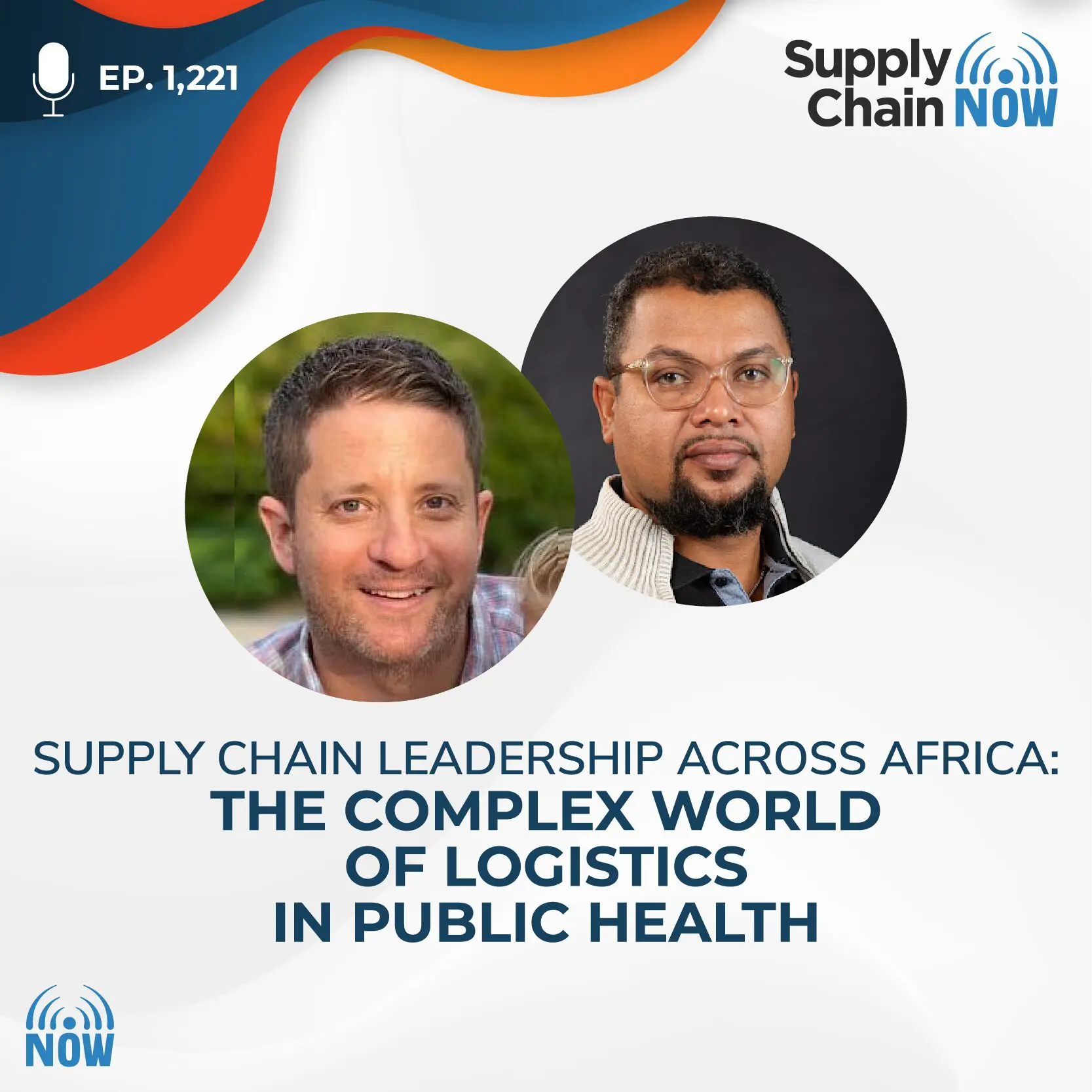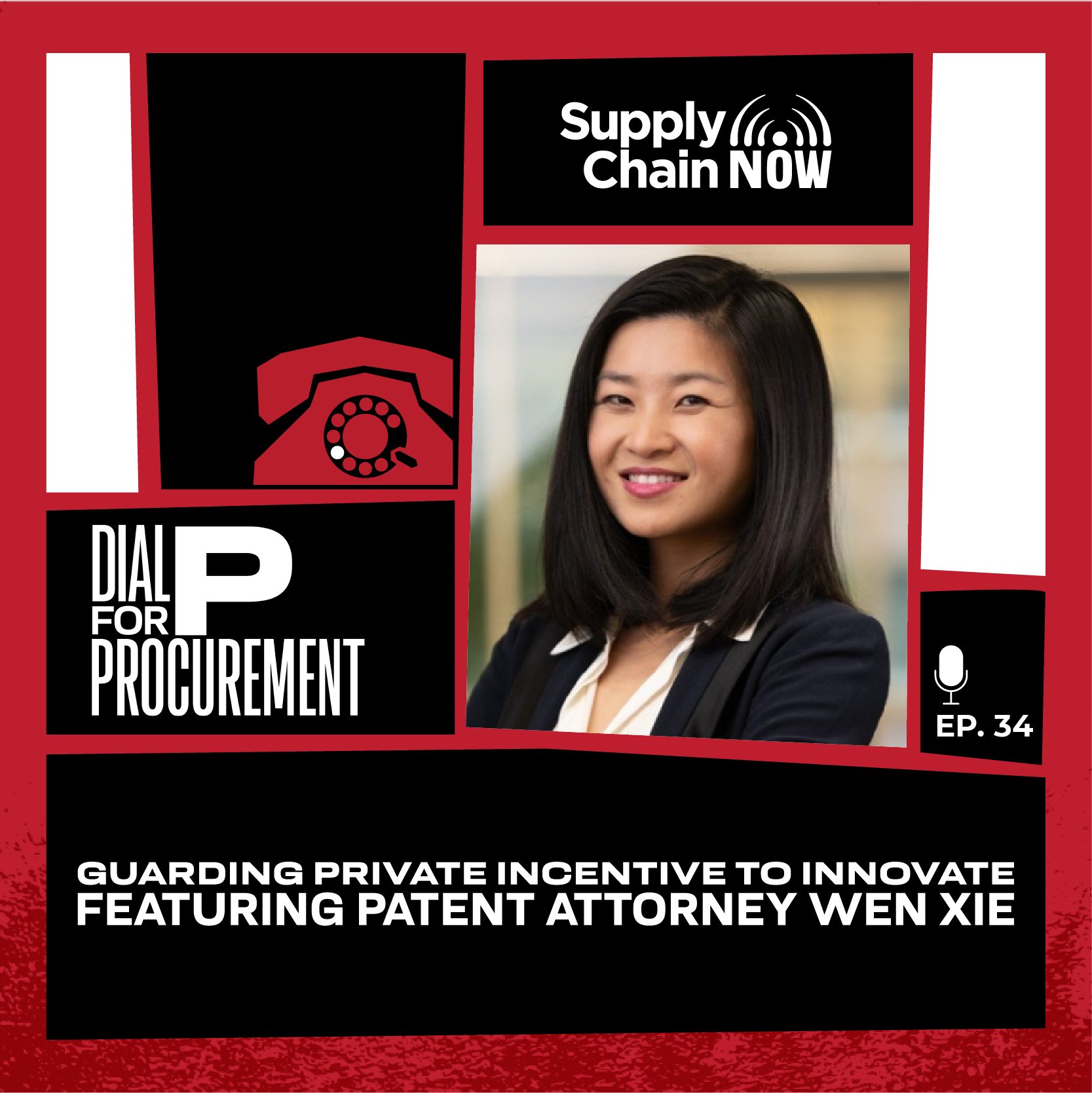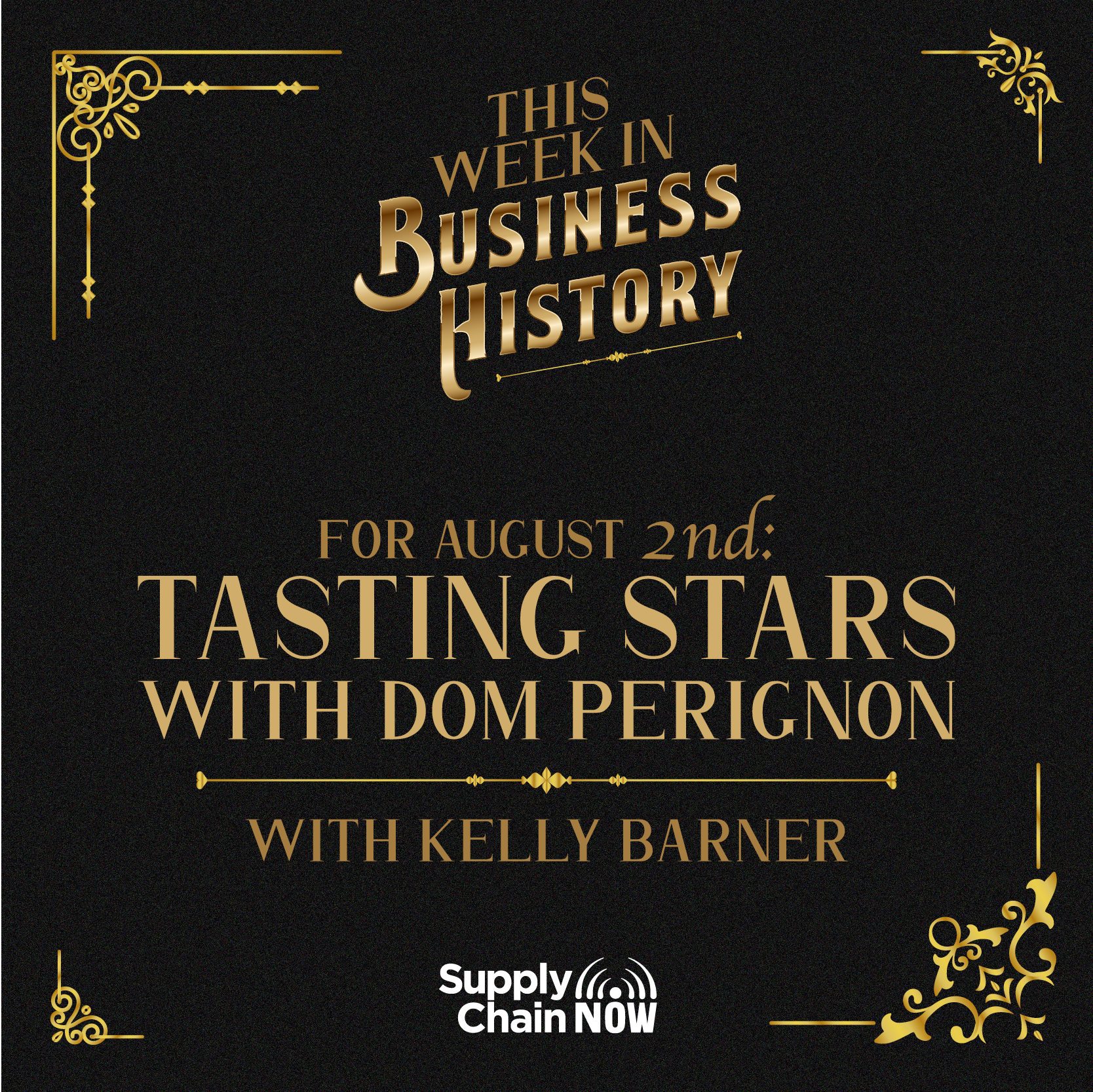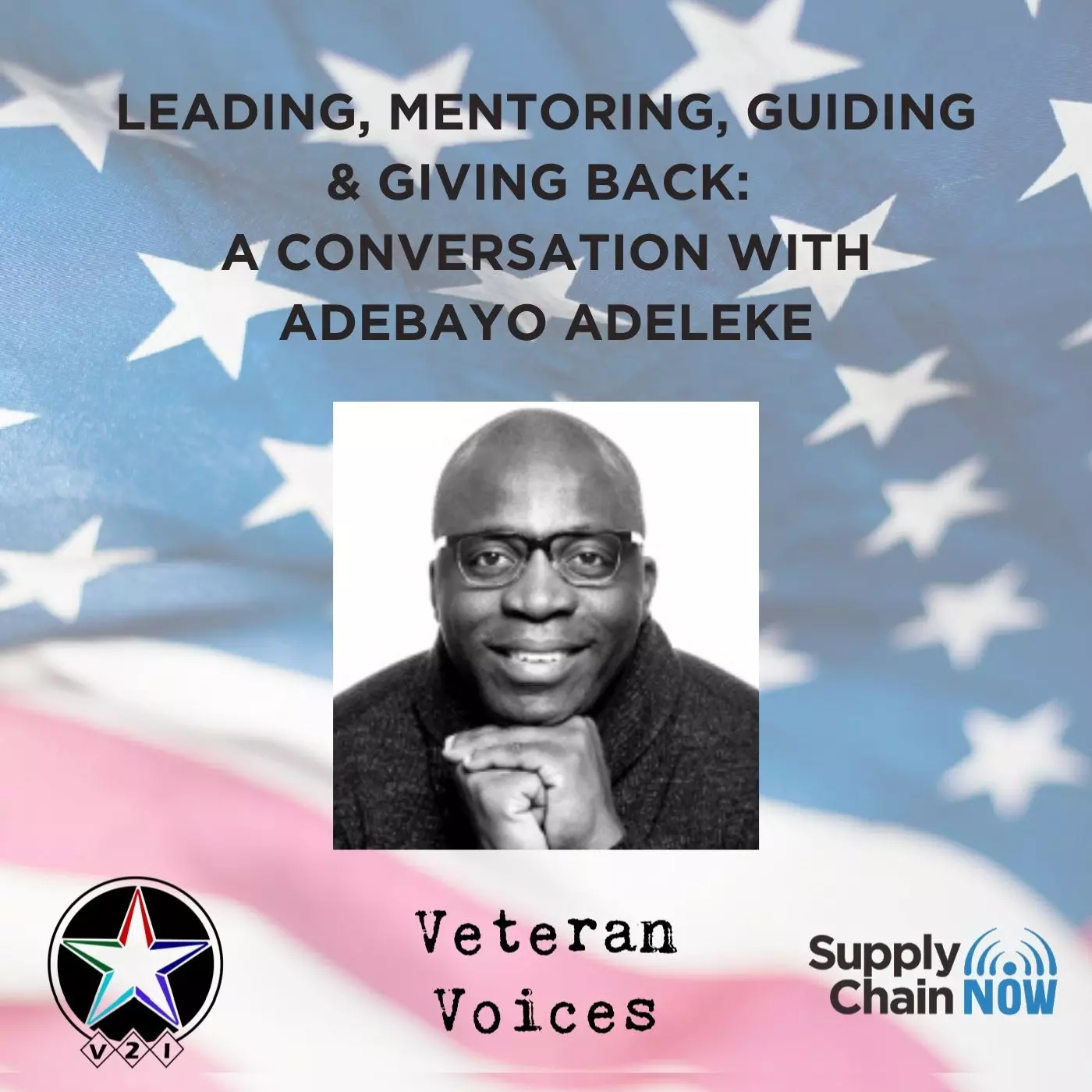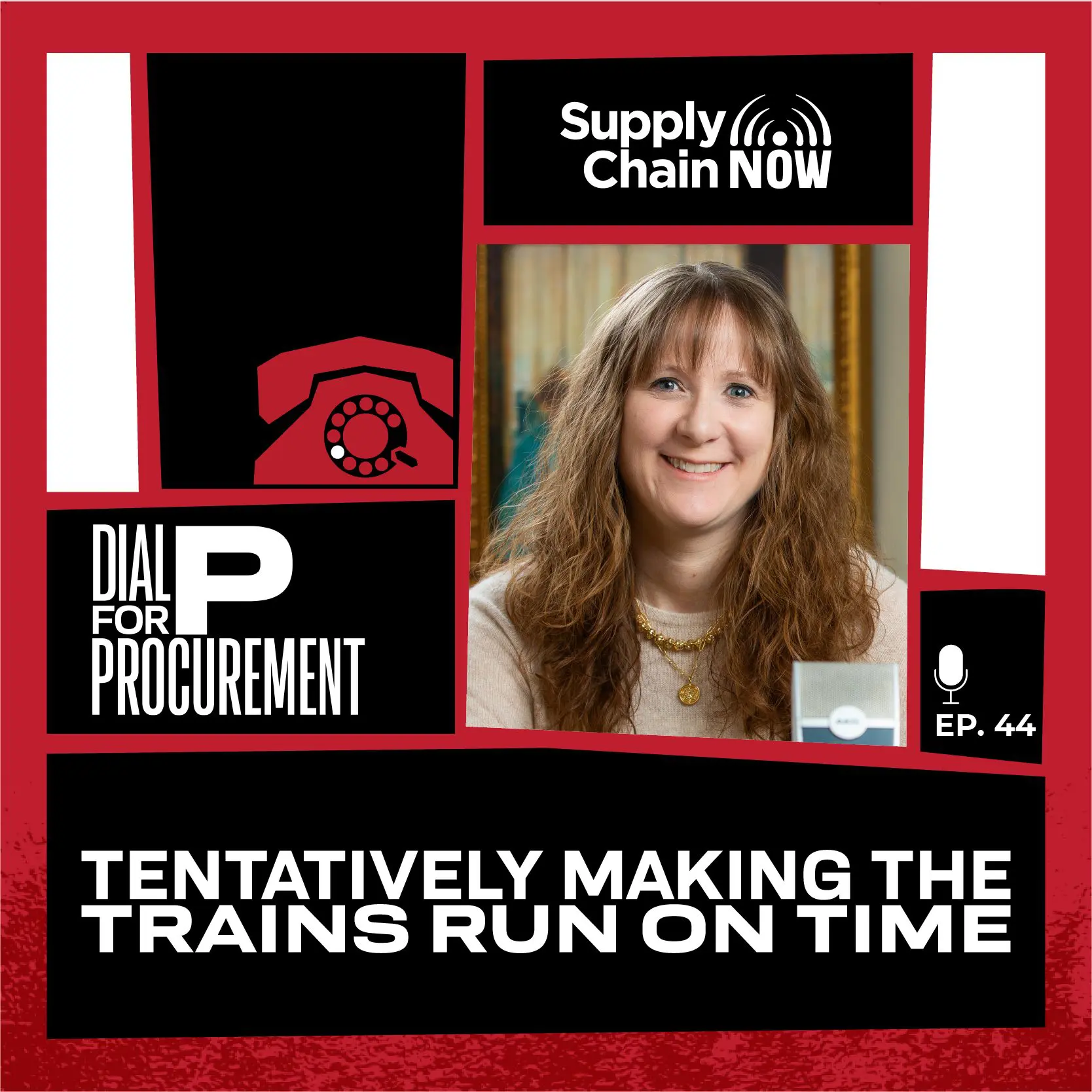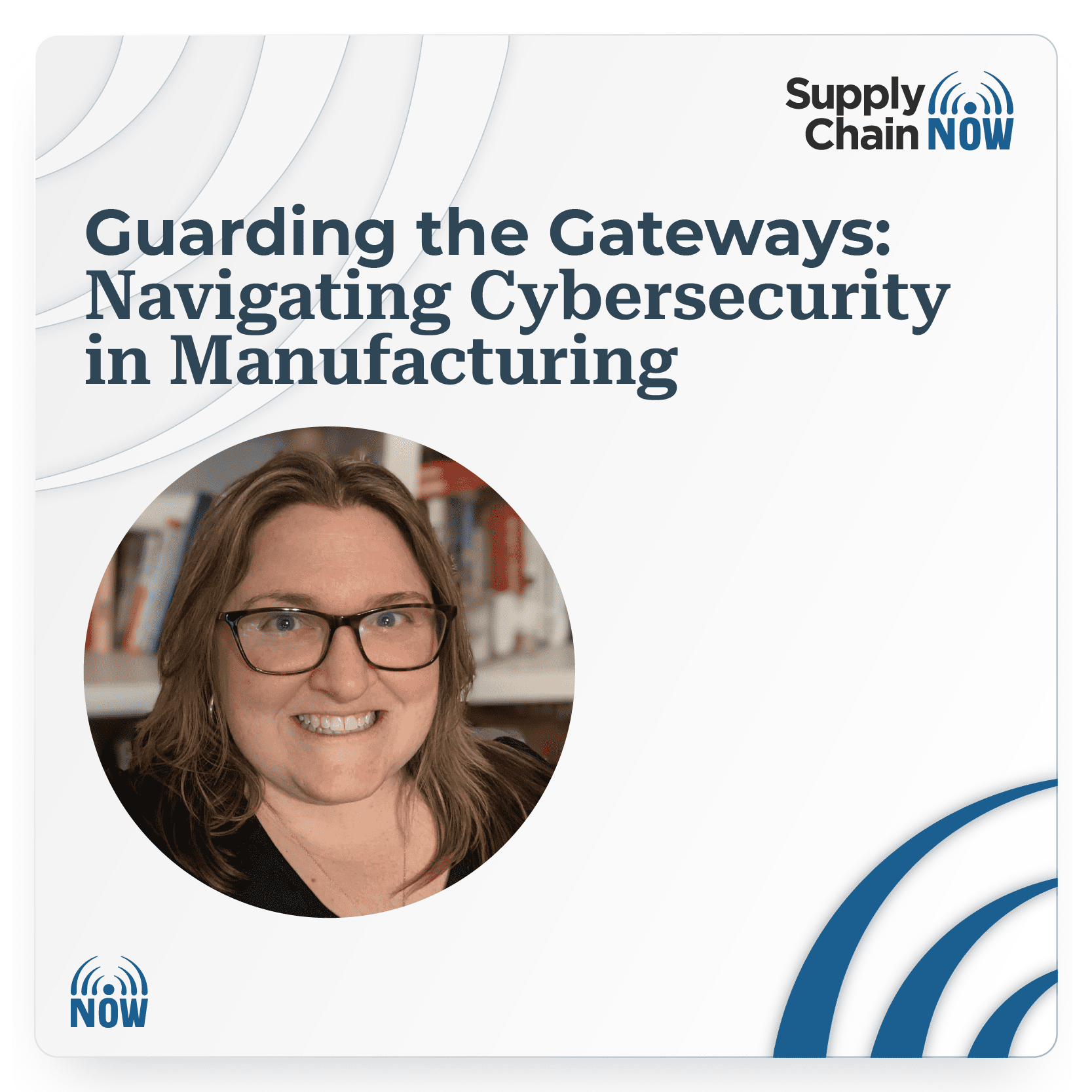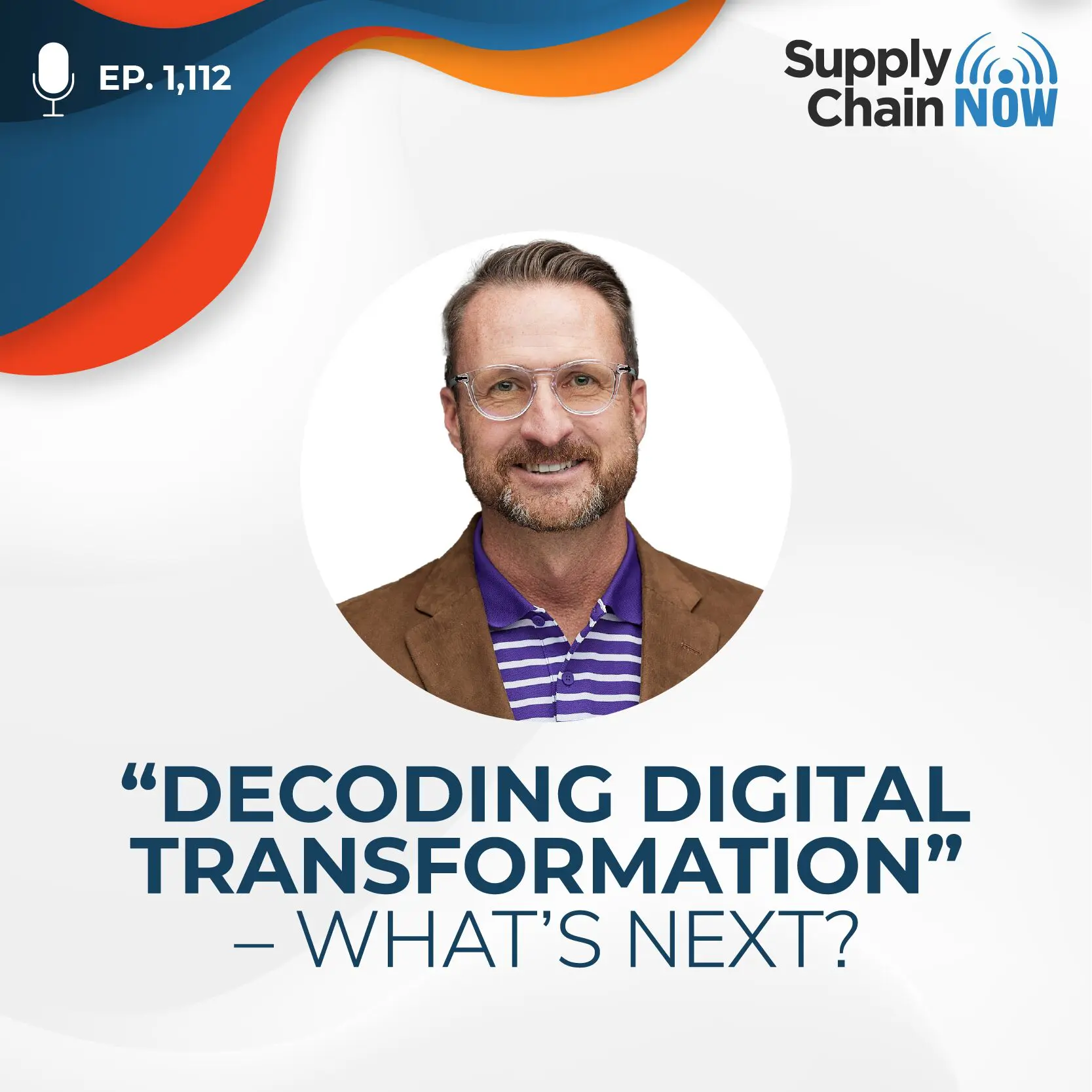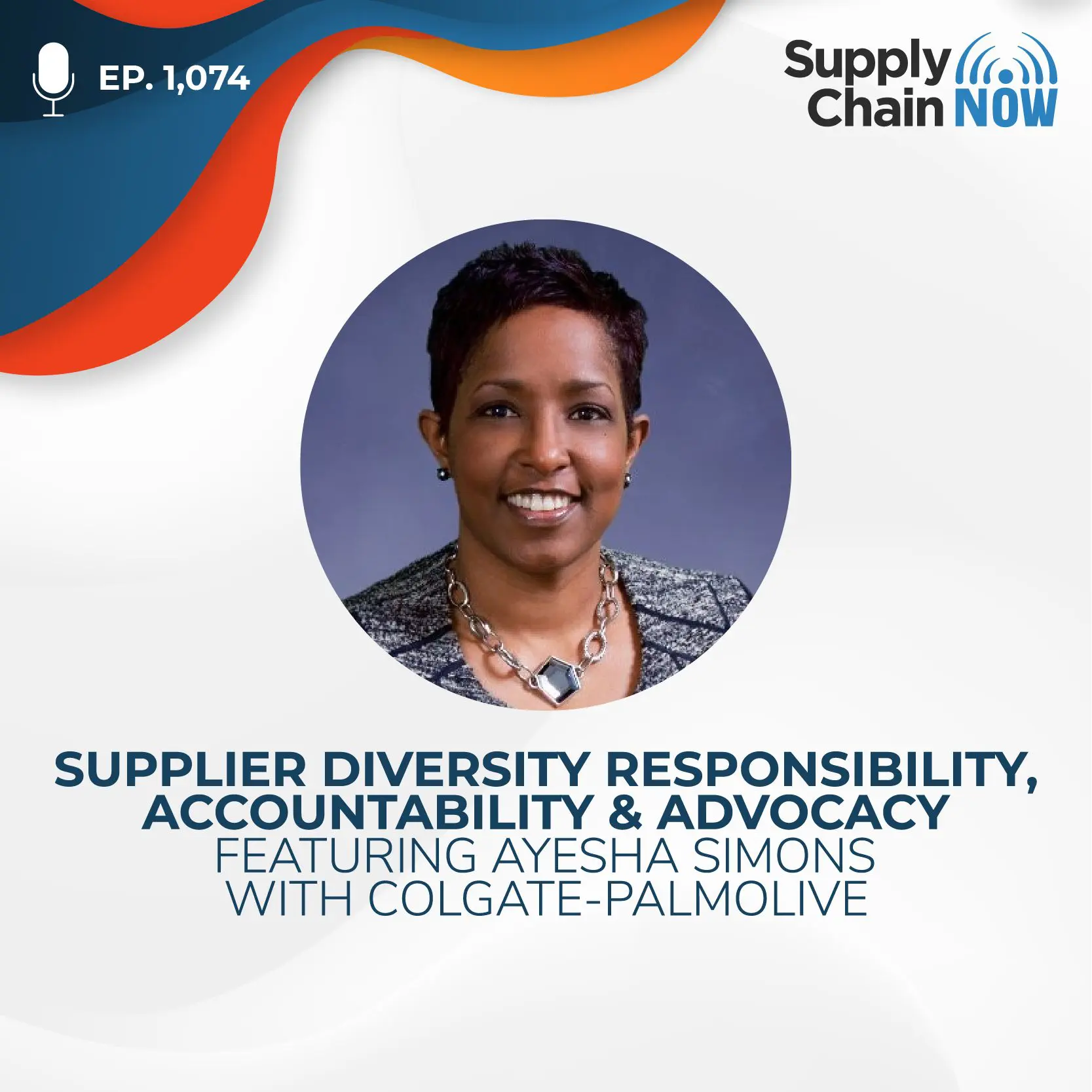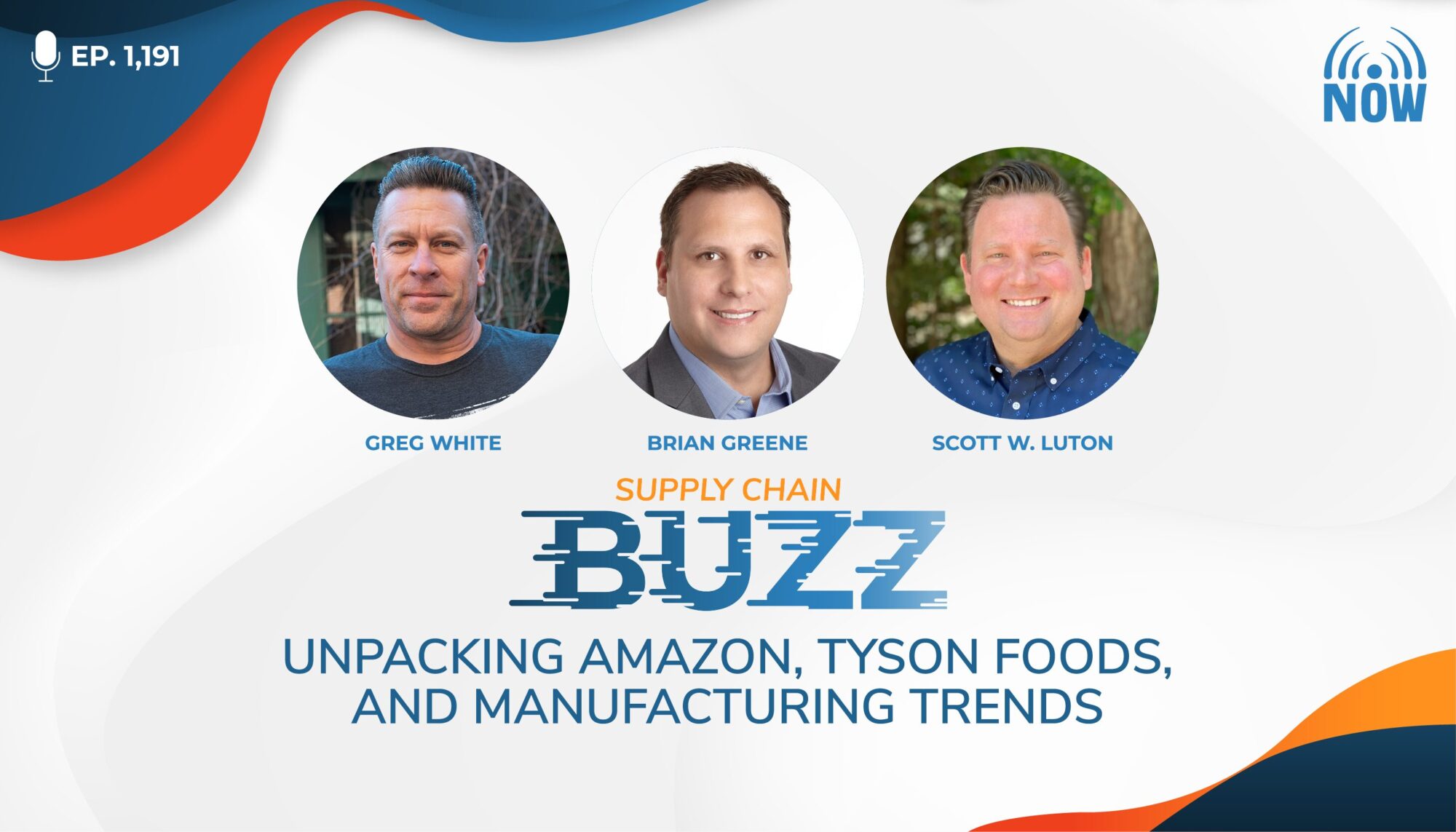
At the end of the day, the customers want as real-time accurate information as they can get. And I really think AI is gonna help us get there because it's taken out the mundane manual input into the network of information and added transparency and visibility. It's automating it to the point where you make it real-time for the customer.
-Brian Greene
Episode Summary
The Supply Chain Buzz is Supply Chain Now’s regular Monday livestream, held at 12 noon ET each week. This show focuses on some of the leading stories from global supply chain and global business, always with special guests – the most important of which is the live audience!
In this episode of the Buzz, Scott and Greg welcomed special guest, CSCO of HMTX Industries, Brain Greene, to get his take on the top news stories and some trends he’s got his eye on in global supply chain. Listen in as Scott, Greg, and Brian discuss:
- Amazon’s push to eliminate packaging altogether
- Tyson Foods’ move to partner with insect protein startup
- three top supply chain trends that Brian has his eye on in the manufacturing industry
- And much more!
Episode Transcript
Intro/Outro (00:03):
Welcome to Supply Chain. Now the voice of global supply chain supply chain now focuses on the best in the business for our worldwide audience, the people, the technologies, the best practices, and today’s critical issues, the challenges and opportunities. Stay tuned to hear from Those Making Global Business happen right here on supply chain now.
Scott Luton (00:32):
Hey. Hey. Good morning, good afternoon, good evening, wherever you are, Scott Luten and Greg White with you here on Supply Chain. Now welcome to today’s live stream, Gregory. How you doing today?
Greg White (00:42):
Wyatt? I am rolling.
Scott Luton (00:44):
Yeah. Okay. Alright.
Greg White (00:46):
Sorry, that’s, it’s a line from Tombstone, so you ha, you had to be there, <laugh>. No, it’s a very good day. Very good weekend. Very good weather, right?
Scott Luton (00:55):
Yes, yes, and yes.
Greg White (00:57):
Yeah, all of that.
Scott Luton (00:58):
And we’re gonna get a little bit of Briskness back this coming week as temperatures get cooler tomorrow. Right?
Greg White (01:05):
Wow. Yeah. Well here in the ATL, I mean, it’s already cooler elsewhere. I’ve got text message complaints from all over the country this weekend. Can’t believe it. <laugh>, my mother told me it was 34 degrees in Wichita.
Scott Luton (01:19):
Wow. Okay.
Greg White (01:20):
I mean, it seems like I was just there a few weeks ago and it seems like it was stifling hot, so,
Scott Luton (01:25):
Mm. 34 degrees, and I’ll put you in a different frame of mind.
Greg White (01:28):
Yep.
Scott Luton (01:29):
But hey folks, welcome to the Buzz here today, a live show that comes at you every Monday at 12 noon Eastern time, where we tackle a variety of news and developments across global business, across global supply chain. And today, Greg, back,
Greg White (01:42):
Yeah.
Scott Luton (01:42):
By Pop Demand, a wonderful repeat guest joining us about 1225. Brian Green, chief Supply Chain Officer with HMTX Industries and Brock and Roll drummer extraordinaire. So folks, stay tuned for that.
Greg White (01:56):
Yeah. And most of the demand was ours, right? <laugh>. I mean, we just demanded that he’d come back, right?
Scott Luton (02:01):
That’s right.
Greg White (02:02):
And it had been a lot a while pre Covid, I think. I mean, I know you guys met up for some barbecue and some stuff. He didn’t invite the rest of us to <laugh> Shellfish, but
Scott Luton (02:12):
It was delicious too. Lemme tell you. It was delicious. And Greg, if folks are listening to the podcast replay, we usually drop this, the replay on Fridays. What should they do you think, Greg?
Greg White (02:22):
Well, they ought to subscribe or just listen wherever you get your podcasts. Or even better watch us. I’d say moderately attractive and interesting on YouTube. <laugh>.
Scott Luton (02:32):
That’s right. YouTube makes it easy. We’d love to hear from you. All right. So Greg, let’s share a couple of resources before we get going here today. We got a couple of really interesting stories to get into, and of course, Brian joining us about 1225. So we’re gonna start with our almost weekly LinkedIn and email newsletter. With that said, now, Greg, we talked about a couple different things on our newsletter yesterday. We kind of took a smattering of news and perspectives around the globe. Mm-Hmm. Including this, gamers will rejoice everywhere. I know my son Ben will.
Greg White (03:05):
Yeah.
Scott Luton (03:06):
Sony is saying that they have fixed their supply chain issues and they’ll have PlayStation five’s galore as much as the world can take this holiday season. Do you believe Greg?
Greg White (03:18):
I a hundred percent believe him. Sony is one of the greatest companies ever conceived, initially conceived as a bean curd company.
Scott Luton (03:24):
Okay. Did
Greg White (03:25):
You know that?
Scott Luton (03:25):
No, I didn’t.
Greg White (03:26):
Sony’s higher purpose. We talk a lot about higher purpose, right? But Sony was founded a long time ago. Their higher purpose was to bring honor back to Japan. That was what they wanted to do after World War ii. And that was the sole reason that the company was conceived.
Scott Luton (03:40):
Really.
Greg White (03:41):
I don’t know what higher purpose there could be.
Scott Luton (03:43):
Okay,
Greg White (03:43):
Cool. Right. When you think about it, it makes total sense why they are, their products are so good, they’re so dominant, resilient, dogged in terms of improvement and innovation.
Scott Luton (03:54):
I’m so glad you sprinkled that in. I’m gonna go dive a little deeper and who knows, we might do a little deep dive on that on a future show or with that said,
Greg White (04:02):
So you can learn a whole lot about that in a book called Built To Last, that talks about many of the really great companies, Mm-Hmm.
Scott Luton (04:10):
And
Greg White (04:10):
Contrast them with other companies in their own industries as to why they became so much more, so much more better <laugh>. So much more greater. So much more
Scott Luton (04:20):
The more, you know, we need that star animation like NBC used to have back in the day.
Greg White (04:25):
I think that’s trademarked, but what the heck?
Scott Luton (04:28):
Hey, check out with that said, as Catherine Amanda had dropped in the comments, the spooky edition got a link there, one click away. And folks, if you want, you know, some of the feedback we’re getting from folks that subscribe to, with that said, and we’re approaching 23 and a half thousand individuals, that’s wonderful. Some of the feedback we’ve gotten, not only do they like news stories or perspective or expertise that they perhaps have missed, but we typically include at the bottom our upcoming live programming just for the week. Right. So that you get that reminder, you can opt in and be a part of those shows. So y’all check that out, Greg.
Greg White (05:00):
Mm-Hmm. <affirmative>,
Scott Luton (05:01):
Do you carve pumpkins? One last question before I move on. Do you carve pumpkins for Halloween?
Greg White (05:05):
Well, we used to when the kids were small. Yes. Because it’s fun for them.
Scott Luton (05:09):
Yes.
Greg White (05:09):
And you know, it’s a good way to toughen your fingers when you <laugh> jam that little saw into ’em.
Scott Luton (05:15):
Did you ever get creative and do something like, you know, Elvis or something or something crazy other than your traditional,
Greg White (05:21):
I think the entire pumpkin world changed when they came out with those templates, because it used to be that only really talented people could do those cool things, right? Like a cat or you know, like <laugh> or whatever. Right? But now they have those templates, so Yeah, I mean, when those came out, yeah, we started looking really artistic. But I still like the traditional ones. Okay. I still like that particular one that you grabbed there. Is <laugh> good?
Scott Luton (05:45):
That’s one mean looking pumpkin.
Greg White (05:47):
It’s mean. I mean, that was the original idea was to look mean, scare away evil spirits.
Scott Luton (05:52):
Right? What better chords are great at chasing away those evil spirits. Right. Alright, so Greg, we got a lot to get into before our special guest here today. And we’re gonna start with a topic that we have spoken about religiously quite a bit over the years, right? Mm-Hmm. <affirmative>. And on the flip side, I, I was thinking through this as we were putting a show together, and it’s been a little while since we spoke about Amazon last, the big a as we had coined, but that tons of packaging that all of us consumers get, that has been the bane of our existence and certainly our discussion from time to time, especially of course, this time of year as folks are getting ready for the holidays. So as reported by our friends here at Supply Chain Dive, Amazon is looking to build on their progress in terms of reducing packaging. The company has an initiative called Ships in Product Packaging Program.
Greg White (06:41):
Yeah. The product ships in its own packaging, right? With an extra box or bag or whatever,
Scott Luton (06:46):
Where the goal, as Greg just mentioned, as you might guess, have the product ship out in its own packaging. So no extra boxes or filler from Amazon. And they’ve been making progress back in 2021, 8% of Amazon delivery shipped in their own container. That went up to 11% in 2022. Again, this is without more boxes and, and stuff they put in the boxes. And during the special 48 hour sale, I guess they had last week, I refrained, I’m staying true to my budget, but they, I guess they had a 48 hour special sale last week and Amazon estimated that 13% of all the deliveries were shipped out without any extra packaging. So now Amazon, Greg is said to be leveraging machine learning to make packaging program make more progress there, citing its massive ever-changing inventory and ginormous volumes. Greg, your thoughts on, as we try to just get more sustainable, right? In this, in this e-commerce world?
Greg White (07:39):
Well, there’s hardly anyone on the planet except maybe Alibaba, who could have a jd, probably Alibaba, jd and Mercado Libre, who could have as much impact on this particular topic. And you know, several of those companies are from countries where they don’t really care about that.
Scott Luton (07:56):
Mmmm
Greg White (07:56):
I think this is a great initiative. I think they’ll lead the way and show the way to the rest of these folks to do that. And also they’re requiring changes of the actual product providers to make when possible, to make some products packages more shippable, shipable, <laugh>,
Scott Luton (08:13):
Easy
Greg White (08:13):
For <crosstalk>. Yeah. You know, they’ll not only lead the way for the providers, but also lead the way for companies that that make these products. At the same time, this article talks about all of the challenges, but if it’s jewelry mm-hmm.
Scott Luton (08:26):
Right?
Greg White (08:26):
Those little tiny necklaces you buy for your daughter, how easily that could be crushed. Or, you know, what if it is just a small thing? And you know, they talk about how they’re trying to encourage more combined orders, and they do, they do that in the checkout if you’re buying Amazon as well. But there are also all kinds of things about the fragility, the weight, the dimensions. I mean, they talk about shipping jewelry or shipping glass, or shipping a canoe <laugh>.
Scott Luton (08:49):
Right?
Greg White (08:50):
And I thought, yeah, man, when you look at it that way, that’s
Scott Luton (08:52):
Right.
Greg White (08:52):
It’s no small task. But look, this is an unstoppable organization, so they’re gonna get it done. They know it’s the right thing to do. But most importantly, and I will repeat this, every time we have this discussion, it is saving them piles and piles of money. And that is how you get sustainability done, is you align it with savings or profit. Right. Efficiencies in the organization. I mean, as much good as these companies want to do, they still have to make money to continue doing it. So the more we can find economies of scale or reduction of waste or whatever in these kind of initiatives, that’s when they get done.
Scott Luton (09:32):
Hmm. Well said, Greg. Well said. You have to say that a little bit louder for all the folks in the back. That’s a critical point here related to this story. So we’ll see. We’re gonna keep our finger on the pulse, especially as we get deeper into end of year, and folks are accumulating their corrugated <laugh> piles, you know, every home. So we’re gonna keep our finger on the pulse of this story.
Greg White (09:52):
I think we have to care less about why people do the right thing and just whether they do the right thing, right? Mm-Hmm. I mean, okay, they’re doing it to save money. Maybe that’s not good enough for some people, but the truth is they’re still doing a tremendous amount of good, and they have to have a sustainable business to continue to do that.
Scott Luton (10:11):
Sure.
Greg White (10:12):
Good. Right?
Scott Luton (10:13):
And there’s also still a tremendous opportunity to do more good while saving more money, to your point, Greg. Right? All right, good stuff. We’re gonna surprise folks, I think with this second story. And again, folks, stay tuned about 12:25 PM Eastern Time. We’ve got Brian Green with HMTX industries joining us. So Greg, this I think is gonna be an interesting story. We’re talking proteins shifting over to the food industry and bugs as reported here by manufacturing dive sister publication to the supply chain dive, and part of the dive family tell you a lot of good stuff there. So Tyson Foods is announcing a big investment with a startup called Protic
Greg White (10:51):
Prox. Yeah.
Scott Luton (10:52):
Or products, I bet, I bet. Smoother like that. Oh. Anyway, the company focuses on insect protein. So Tyson says it plans to increase the usage of insect ingredients and it’s food ecosystem. The partnership calls for the construction of an ingredient facility in the US where products will quote upcycle manufacturing byproducts into high quality insect proteins and lipids, end quote. And then those products will be used as ingredients in pet food, aquaculture and livestock production. So folks, you may or may not know, insect protein is growing in popularity worldwide. Many advocates, they tout the fact that uses less water and land than traditional livestock alternatives. A cricket ingredient brand exo. Well, they have previously said that crickets are 20 times more efficient to grow than cattle. And Greg, about 2 million times less tasty perhaps. Nevertheless. Hey, the global insect protein market is projected to reach a compound annual growth rate of almost 28% by 2028. Okay. Greg, your thoughts?
Greg White (11:58):
This article kind of bugged me, and when I was talking to somebody about it, all I got back was crickets <laugh>, so
Scott Luton (12:06):
Oh, you’re
Greg White (12:07):
Welcome, people.
Scott Luton (12:08):
That’s right, <laugh>.
Greg White (12:09):
I think it’s disgusting, honestly. I bet bear grills is going, see, I told you so. But this isn’t really for human food, right? This is all for animal feed, so it’s going to feed your cattle, and honestly, they’re feeding the crickets in some cases meat byproducts from Tyson plants. So whatever is left of the chicken that’s not used, which is very, very little. So it’s circular in a certain way, you know, and it, it’s for animals. And if we’re honest with ourselves, there’s bugs and just about everything you make in a factory anyway. So why not make the make a hundred percent bugs? You can buy human products, human food, that is CR protein.
Scott Luton (12:50):
That’s right.
Greg White (12:50):
Essentially. So, yeah, I mean, I guess as long as it’s just for the animals, I’m fine <laugh> with it.
Scott Luton (12:56):
Well, you know, I, I gotta tell you, I was walking, I don’t know, was it Walmart or Kroger? It could have been Target, and I think I saw chocolate covered crickets press hoppers or something. So
Greg White (13:05):
Yes, both of those have been around for decades. Honestly. It’s something that your meanest uncle tries to get you to eat when you’re from Kansas <laugh>.
Scott Luton (13:14):
Oh, goodness. All right. So Greg, final word before we bring on our guest.
Greg White (13:18):
Yeah.
Scott Luton (13:19):
So you’ve officially, you’re going on record here. You’ve never tasted a cricket or grasshopper snack or like a chocolate covered candy or anything like that. Is that right?
Greg White (13:27):
I have not.
Scott Luton (13:28):
Okay. Are you open to trying, if we were to procure a package, I’ll
Greg White (13:32):
Do it right here on camera. Yeah.
Scott Luton (13:34):
<laugh>. Okay. Absolutely. Stay tuned to the buzz. Uh, in the coming weeks, you’ll never know. I once had
Greg White (13:40):
Somebody who had a fish tank and I asked him why all of his other fish had no tails. And he said, because this beta keeps, keeps eating their tails. And I said, you’re not supposed to put beta in with other fish. He said, well, would you just get rid of it for me? Except for 20 bucks? I’ll eat it. <laugh>. It was a long time ago. Scott <laugh>.
Scott Luton (14:00):
Okay, man, we’re learning all kind of stuff on the Halloween edition of bus. It’s Halloween. It’s almost Halloween. Let’s go <laugh>. Alright folks, well, hey, let us know what you think about whether it’s Amazon’s good work in reducing its packaging, right? That’s also increasing profitability. Perhaps let us know what you think about the protein evolutions in that industry and, and whether or not maybe you’ve tried insect protein in your diet.
Greg White (14:26):
So it’s not terribly uncommon in some cultures, right? I mean, it’s not like frowned upon or even,
Scott Luton (14:31):
Right.
Greg White (14:31):
It’s just a thing, right?
Scott Luton (14:33):
That is right. That is right. It looks like, uh, Catherine and Amanda is, uh, they’re all about the idea of us bringing on some of the chocolate covered crickets and trying one error. So we’ll see. We’ll, we’ll take a look. We’ll take a look.
Greg White (14:46):
Well, I mean, if it’s chocolate covered, definitely I will try it. <laugh>, I prefer dark chocolate, just
Scott Luton (14:51):
Yes, I do too, man. I love dark chocolate. All right, so folks, you’re in for a treat here today, pun certainly intended. We’ve got a wonderful repeat guest looking forward. Let’s go ahead and welcome in. Brian Green, chief Supply Chain Officer with HMTX Industries. Hey, Brian, how you doing?
Brian Greene (15:09):
Good afternoon. Good afternoon. Thanks for having me back. Welcome board. Enjoyed your, uh, pre-session Banter was very entertaining.
Greg White (15:17):
<laugh>. That’s good. I’m glad you’re entertained. <laugh>.
Scott Luton (15:21):
Hey, that’s at least one person out there. Okay. That’s
Greg White (15:24):
Words of affirmation. That’s all I need.
Scott Luton (15:26):
So Brian, we gotta ask you, we’re gonna get to your musical talents in just a second, but have you ever had chocolate covered Yeah. Or any candied crickets or anything?
Brian Greene (15:35):
I have. I have indeed.
Scott Luton (15:37):
Okay. And
Greg White (15:38):
Do tell
Brian Greene (15:38):
And scorpions, Uhhuh, this is very common food in some parts of the world, Greg, as you mentioned earlier and right. this is just how it works. And they dip ’em in all kinds of seasonings or chocolate, all kinds of different things. So I, I absolutely have.
Scott Luton (15:52):
Okay. How
Greg White (15:53):
Does a scorpion taste?
Brian Greene (15:54):
There’s not much taste. You taste whatever it’s dipped in, whether it’s chocolate or spite, that’s what you taste. You don’t really,
Greg White (15:59):
It’s kind of crunchy. Right? Very crunchy.
Brian Greene (16:01):
Very, very crunchy. Yes.
Scott Luton (16:03):
Well, they also produce good music. The wind of change, I believe. Right? As we segue over to German, the zoo <laugh>
Greg White (16:10):
Music industry, one of the greatest rock and roll songs of all time.
Scott Luton (16:13):
Yes. Back in the, I wanna say that was released in
Greg White (16:15):
19, that was in the seventies.
Scott Luton (16:17):
Was it really seventies? No,
Brian Greene (16:18):
It was 80, 89 I think was when Wind of Change came out.
Greg White (16:21):
Oh, sorry, I was talking about the zoo. I’m sorry.
Brian Greene (16:24):
Oh,
Greg White (16:25):
<laugh>. Yeah, sorry. But yeah, aid. Yeah, that that’s a great song.
Scott Luton (16:28):
It is
Greg White (16:30):
Whistle a few bars for us. Scott
Scott Luton (16:31):
<laugh>. No, I’m not gonna do that to people out there, but hey, the reason we’re pivoting over to the music industry is because when Brian joined us, Greg, I wanna say it was about four years ago, is pre Covid, certainly as we got together in person for one of our shows.
Greg White (16:43):
Yeah.
Scott Luton (16:44):
We learned that he was a, uh, rock and roll drummer and enjoyed playing. You can see his equipment right over his right shoulder there. Yeah. So there you go. That’s where we wanna start, right? Greg can be a lead singer. Brian could be the drummer. I’m sure we can find a bassist in a guitar player somewhere.
Greg White (16:59):
We had found him all because I think what we needed at the time we talked to Brian last was a drummer.
Scott Luton (17:04):
Yeah.
Greg White (17:05):
And you really need two bass players because bass players are notorious for not showing up. So you have to have two.
Brian Greene (17:10):
That’s right. <laugh>
Greg White (17:12):
One is a backup
Brian Greene (17:14):
Supply chain now band. It’s already got.
Scott Luton (17:16):
Yes That’s right. Yeah.
Greg White (17:17):
We had grand plans for that. We, we failed you, Brian. I’m sorry.
Brian Greene (17:21):
<laugh>. Okay.
Scott Luton (17:22):
So Brian, a couple questions there. First off, are you still playing and what are either your favorite drum solo or one of your favorite music numbers to, to drum to?
Brian Greene (17:33):
So, yeah, I play all the time. It’s a great release for me with a very stressful job in a very stressful world. It’s a great way for me to kind of disappear for a little while. I mean, I think people of my age, we look to our hero as like Neil PI mean, uh, me, he’s, you know, other than maybe Buddy Rich, probably one of the best to ever do it. And from a solo perspective, I, I have to go back to this, uh, he did a Berlin solo in 2004, which is very easy to find on the internet if you’d like to. It’s probably 20 minutes long. He incorporates all kinds of triggers and different instruments into it, and it’s, it’s really amazing. And so really amazing epic as a drummer, that’s a, a very big inspiration of my era. Of course, everyone’s got their favorites, everyone’s got their different styles, but certainly Neil Parat is, is one of my heroes for sure.
Scott Luton (18:19):
Okay. All right. Greg.
Greg White (18:21):
Brian, have you seen this lady who has been filming herself learning how to play the drums on YouTube? She literally starts with
Brian Greene (18:29):
Nady Nady. She’s the Nady.
Greg White (18:31):
Yes.
Brian Greene (18:31):
Yes. She’s played with the Foo Fighters on stage. She’s now writing her own music. She plays every instrument. She is a prodigal. She’s just, yeah. Prodigy. She is amazing. She plays every instrument. Now. She’s got her own music out. She’s producing it all now. She’s doing music videos. She is a force to be reckoned with.
Scott Luton (18:50):
Okay.
Greg White (18:51):
I think the biggest inspiration is she shows people every day the good, the bad, the ugly, when she’s hacked off, when she’s happy, you know, when she’s trying something new. That’s as inspirational as anything for people who would like to try it.
Brian Greene (19:05):
Yeah. Mm-Hmm. Right.
Greg White (19:06):
Is to just see somebody else going through it. Yep. I think it’s, it’s a cool thing.
Scott Luton (19:11):
So Catherine, Amanda, let’s see if we can’t find the link. Her name was Nandi, is that right? Correct.
Greg White (19:16):
Yeah. You can’t miss her now. Okay.
Scott Luton (19:18):
All right.
Brian Greene (19:18):
I think it’s Nandi Bus now. I think Bushnell Bus Snell. Okay. Uh, but yeah, she’s all over YouTube.
Scott Luton (19:25):
Alright. I wish we had a couple hours to talk music, but I want to get into some of what you’re seeing, some of your expertise there. Brian, I wanna start with providing our global audience a little bit of context. So can you share a little bit of information about H and TX Industries and your role there?
Brian Greene (19:39):
Yeah So I’m Chief Supply Chain Officer for Mtx Industries. We’re probably the largest flooring manufacturer you’ve never heard of because most of ours is done under private label or OEM. But we do have market brand names like Metro Floorfloor, a Spec Allure. So we do have some of our own brand names. But yeah, we’re a global company with global manufacturing, serving global markets all over the world. Obviously North America being one of our main ones. And yeah, we’ve got offices all over the world. I’m very, very personally very pleased and happy and proud that we’ve been a three-Time, home Depot supply chain partner of the year. And that’s not just department level, that’s the entire company level. That’s a huge area of pride for us. We take it very seriously with our production partners and on time shipping, getting it where it needs to go, when it needs to be there. So check us out online, TX Global
Scott Luton (20:27):
Will do Greg, man, when, when you’re making Home Depot happy three years in a row at probably volumes. I’m assuming you’ve done something, Greg, your thoughts. Yeah,
Greg White (20:36):
Well we knew Brian was a genius when we met him the first time. <laugh> and the, and the, the team was so, they were so buttoned up. I mean, we talked a lot more details in that first interview, right? And the way that you all approach, first of all the company was what really stuck in my mind, but also how that pervades throughout the company to the other departments. It’s really a great story about how to build a great company, not just a great supply chain. That’s what it takes to stay in the game with some of these major retailers. They can be very unforgiving, frankly, have to be, because as we’ve all learned, as if we didn’t know, right? Ultimately the consumer is the beginning and the end of the supply chain and they are the ones who drive it.
Brian Greene (21:14):
It’s everything. It’s a relentless focus on the customer experience. If you do that, you’ll be successful. It’s the companies who lose sight of that, who run a FO and have problems. But if you have a relentless perspective on the customer, you’ll usually be okay.
Scott Luton (21:31):
All right. Critical rule established early on in Brian’s appearance here on the buzz here today.
Greg White (21:36):
I had a mic, I’d drop it. <laugh>,
Scott Luton (21:39):
If you heard how Brian described not only his role but the company just a second ago, you heard him drop global probably about seven times, right? Global organization. So where we wanna start here today, Brian, is your perspective, what are you seeing out there on the global shipping market right now.
Brian Greene (21:54):
So what’s interesting, you know, from a shipping perspective in the global market, I think you’ve got some macro issues going on, right? Right now you’ve got what’s considered a glut of inventory, especially in Europe and North America. And as such, the volumes have not picked up like most people thought they would. Hmm. And as such, you’re seeing the spot market fluctuate a lot. Now we’re down, you know, 25% since August, but we’re seeing now reports that November will be up another 10, maybe even 15% as carriers look to shore up their rates going into the Chinese New Year in, in February, and try to protect the contracts with those bigger customers that they have in place. So, you know, that global spot market, we are looking at probably seeing some increases with Splunk sailings or our big issue out of Asia right now. There’s a lot of capacity that the steamship lines ordered that are coming online now with the bigger ships, more efficient ships.
Brian Greene (22:46):
And so all that pulled together, I, it’s still for those who deal with it every day, it’s still a volatile market, believe it or not, even though, you know, hopefully Covid iss somewhat in the rear view, we’re still seeing a lot of volatility there. Also, another thing that’s not getting a lot of press, but you’re gonna start seeing a lot more press, is the lack of water in the Panama Canal basins. And what’s that doing? Well, it’s making BCOs like myself start looking at alternatives like the Suez Canal. And I think what you’re gonna start seeing is a lot more shippers going through the SUEZ and a lot more carriers choosing SUEZ routes rather than the Panama account because the pricing differential has always been cheaper through the suez. But you had that additional time element. Well the thing now is that the price differential delta versus the amount of days has come down to a point where it, it’s not that big of a difference because if it’s taking, you know, a week extra to get through the SUEZ to the East coast, but you’re seeing week long delays coming into the port or into the canal because of draft restrictions or, or backups, then you really haven’t saved anything by going through the Panama Canal.
Brian Greene (23:52):
So I think that from a macro level are some of the other things that we’re seeing that we’re keeping an eye on for, you know, those draft restrictions I think are in place until at least June of 24 is the latest word. And so these are things you’re gonna be hearing shippers talk a lot more about on the global side.
Scott Luton (24:09):
You know, before I get your comments there, Greg, I think on that, you know, we’ve talked about that Panama Canal situation probably a couple months ago, and I think they are contracting with the US Army Corps of Engineers. I don’t have the story in front of me. I think it’s a $1.2 billion project and they’re looking to bring seven new rivers into the canal to get those water levels up. But Greg, your thoughts on some of Brian’s perspective across global shipping right there.
Greg White (24:32):
Well, I mean you can see where that would change the dynamic in some of the east coast ports possibly as well, right? Moving from El Long Beach and elsewhere to some of these east, east coast ports possibly. So, I mean there’s a lot of dynamics at play there. I wonder, Brian, what is the current state of piracy in that part of the world? How much additional risk is that?
Brian Greene (24:52):
It’s hard to say personally. We haven’t seen it. But I think what you’ve seen, you know, 18 months ago or so when the Evergreen got turned and shut the SUEZ down, it’s a lot more susceptible to issues like that because it’s only been one way. So it’s
Greg White (25:06):
Right
Brian Greene (25:06):
There are challenges to it as well to help build a resilient supply chain. Obviously, you know, over the last three and a half years, supply chain practitioners like myself, we’ve kind of had the Mike Tyson saying, which is everyone’s got a plan until they get punched in the mouth. Well we’ve been punched in the mouth and punched in the mouth and punched in the mouth. And so I think what it’s done is it’s reteaching supply chain, especially if you have the academic level, the university level, what companies are doing. We are actually relearning some of the fundamentals of supply chain and focusing much more on resiliency than we ever have before. A little bit to your point earlier, Greg, before I came on was, you know, the, the whole introducing lean and the misunderstanding of what lean actually was, the just in time versus just in case, right? I think we’re relearning how to do parts of supply chain and how to do the actual structural foundation of supply chain because of Covid.
Scott Luton (25:59):
Mm. Great silver lining. Greg, your response before we move on?
Greg White (26:02):
Yeah, I think that’s a great point. Now we do have a plan for getting punched in the face and realize that getting punched in the face should be part of the plan because we are inboxing after all right? So now unfortunately there aren’t a whole lot of Mike Tyson’s, but there are a whole lot of other boxers out there. We’re not just fighting Mike Tyson, right? So yeah, I think one of the big discoveries that companies had was that resiliency is worth it. Because up until now, supply chain or up until recently I should say supply chain has largely been a cost saving exercise. Do everything cheap, get it here fast, make magic happen. We don’t care how, we don’t even know how. That’s basically what you’ve heard from the rest of the organization. And now that it’s been exposed and now that even consumers and lower forms of life, like politicians know how supply chain works, there’s some much broader knowledge within the corporations to be able to understand the dynamics of supply chain and the trade-offs that you have to make. It’s really a risk balancing exercise, not a cost saving exercise. And you have to assess all of those risks truly all at once, which is non-complex, right?
Scott Luton (27:12):
Mm-Hmm.
Greg White (27:12):
So I think that now we have this awareness, we know that consumers have this awareness and Brian, to your point earlier, we know that we have one job and that is deliver a perfect customer experience, right? And with the customer aware, the consumer aware of the supply chain, there’s nowhere to hide and we’ve had to clean up our act, we wanted this seat at the table and we got it. Mm,
Brian Greene (27:34):
Exactly.
Scott Luton (27:36):
Relentlessly focusing on that customer experience was the charge Brian just posed to all of us out there. Good stuff there Greg. Okay, so you know folks, I was watching Brian and Greg over the weekend. Morgan Freeman is narrating this life series on Netflix and I can’t remember the name of it right this minute. I watched the first episode and it was brilliant. But one of the things they mentioned there was that out of all species that have ever existed on Earth, 99% are extinct. So what does that mean? Well the 1% that we’re all make up we’re fighters. We’re natural born fighters. It’s in our DNA and by extension supply chain pros, Brian, you’re using, we gotta be fighters, we’re supply chain pros. Lean into that inner DNA in their bones to find success and to get things done right across the globe. So one of the ways that we’re seeing that happen and is of course leveraging technology, artificial intelligence. So Brian, Greg and I talked a ton with companies and leaders that are embracing oftentimes AI in real meaningful ways. You know, as someone that has invested your organization in artificial intelligence, how are you seeing it leveraged in a real powerful, practical way with lots of real big outcomes? Yeah.
Brian Greene (28:48):
Well first, lemme put the disclaimer, I’m by no means an AI expert, but I’m an AI student and I am a fan and I’m a lifelong learner of it. And so, you know, a little plug for my alma mater, but uh, David Joiner, who’s the executive director at the School of Computing at Georgia Tech, he’s got a saying that says people with AI will replace people without ai. So what does that mean? In the old days, you had people who were using IBM typewriters, you know, just the regular typewriter. Yeah. Along the word processor, people who adopted that technology replaced people who were doing regular typewriters, right? There’s a million different examples of this. Mm-Hmm <affirmative>. So people are always worried about ai, right? Because it’s an unknown, it’s a technology that people don’t understand. But I think the important part for supply chain practitioners is to understand this is coming.
Brian Greene (29:42):
You need to embrace it and you need to be one of the ones who is working with it instead of against it. Mm-Hmm <affirmative> because the tide is coming, you cannot stop it. So when we think about it from a company, we’re usually fairly aggressive on our technologies. We’re looking at this in a lot of different areas, right? But for us in on the supply chain side specifically, I’m really excited about what it could do for demand forecast planning, route optimizations, you know, the internet of things, how my systems are working with each other. And especially one area I’m very excited about is visibility. So visibility as we know to that customer experience is the holy grail. At the end of the day, these customers want as real time accurate information as they can get. And I really think AI is gonna help us get there because it’s taken out the mundane manual input into the network of information and and transparency and visibility.
Brian Greene (30:35):
And it’s automating it to the point where you make it real time for the customer. And as Greg said, you know, we’ve gone through covid, we all understand we wanna push a button and have it there the next day. That’s for almost every commodity in the world now. And so to do that you’ve gotta have great background systems that are automated enough to give that customer an experience of real-time accurate information. So from an AI perspective, that’s, those are some of the things that we’re looking at and some of the investments that we’re looking at. But certainly for me, the most exciting part is probably the transparency and visibility portion.
Scott Luton (31:07):
Yes. Greg, where am I flooring at the billion dollar question that all of <laugh> consumers are asking out there there, Brian just offered up a few different things he’s excited about. Route optimization was one, demand Forecasting is another. The visibility, the answers given to consumers as they’re looking for their orders, hopefully in less packaging. Greg, your thoughts there?
Greg White (31:27):
What Brian relayed was, you know, the tide is coming and it’s so inevitable and it is so natural for humans to work with AI because it’s simply a computer representation of the way that human beings think and it yet does it flawlessly and much, much more rapidly. So I think that’s key. But there are so many really cool things to do. One of the challenges that supply chains have today is, you know, if you’re a retailer, Walmart tractor Supply pick one, right? You have 50,000, a hundred thousand direct vendors and they have direct vendors and those vendors have direct vendors and you go 6, 7, 8 tiers deep. Brian deals with that all the time. Where the raw materials come from versus the process materials versus the colors versus whatever else is involved in all this polymers and all of that jazz <laugh>,
Scott Luton (32:19):
Insect protein.
Greg White (32:21):
You can’t know who all of those companies are, but if you can map that and then you can assess the risk of the way they do business, right? Their ability to provide reliability, their ability to provide speed, their ability to provide the right cost and the ethics of the organization, which now is a big hit.
Scott Luton (32:37):
Brian, one of the points there that Greg, Greg was making and one of the points we continue I think is part of our mantra is there are some really powerful ways to leverage many technologies, but especially artificial intelligence in ways that allows us leaders to take the blocking and tackling off of our team, get rid of the mundane and really open them up to do some really cool creative things using that side of the brain that tends to be more fulfilling and rewarding work. Would you agree with that Brian?
Brian Greene (33:05):
I think that’s the key, Scott, is that where artificial intelligence hasn’t gotten yet, it’s great. It’s spitting out stuff that it’s, you know, on the backside with the large language models and whatnot. But what it can’t replace at least yet, is the art. The art of the science, which is the gut. Okay, so great, you’re demand planning X amount of widgets at this time, but the gut knows usually this time of year we see a blip ’cause of something. It’s that gut that it can’t replace. And so you’re a hundred percent right replacing the mundane and allowing our teams to use their creativity, use the art side to help balance the science, I think is what’s so exciting. And so that’s why I think when people are so afraid of the technology replacing jobs, I think they’re looking at it wrong. I think they need to be looking at how do I work with it so it can do some of these things that free me up to bring the the human element more into what I’m doing. Mm-Hmm. ’cause that’s where we can add value, right? Get rid of the time suckers as I call ’em, which is the manual stuff and focus on what can we as humans add value to. And I think that’s where we’re hopefully gonna get to
Scott Luton (34:15):
Brian. Undoubtedly. And that’s some good news there that the human element is such a powerful, beautiful, unique, talented thing and finding new and exciting ways to leverage that and empower our people to just bring all that they can to the table. That’s a, a wonderful picture you paint. Alright, let’s switching gears a bit. You and I had a great conversation before our barbecue lunch, during the barbecue lunch and of course a couple since then. And one of the things I shamelessly and blatantly stole from you, Brian, was this phrase return on energy. And you’re using that as it relates to new initiatives and projects and just creating a better organization in many ways. Explain what you’re talking about when you say return on energy and why that’s so important.
Brian Greene (34:57):
Yeah, sure Scott. So I think so many times, especially as executives, we focus on the dollars and cents, the ROI, the return on investment of a particular investment, but only from a dollars perspective. So what I’ve been kind of preaching is this return on energy, which is the return doesn’t have to just be in dollars, it’s human capital as well. It’s opportunity costs for the company. We all have 24 hours in a day, right? Right. one has more that I know of and if they do, I, I’d like to find out how <laugh>, we all have this pie. We have to figure out how to slice up every day. And so return on energy is just saying where is the value of my time spent in relation to a project? Could be home life, could be business, could be hobbies, could be a little bit of everything, but where’s my biggest return on energy for the amount of time I am putting into a particular thing in my life? Whether it’s projects or personal again. So when you look at this from a project perspective and you’re presenting this to you know, your CEO or to the board and you’re looking at this, I try to keep telling people think about things outside of just the dollars and cents because they don’t always tell the entire story. It’s great if you’ve got a 25% ROI on a project, but if you kill 10 people and five of them left in the process of doing it right, what have you achieved? So again, it’s that return on energy which is really also focusing on the human element as a metric for the success of a particular thing.
Scott Luton (36:28):
I love that Brian. So Brian and Greg and Greg, you know Brian, one of the questions we get a lot weekly if not daily around here, especially related to the highest of executive suites. You know, folks wanna be a chief supply chain officer much like you Brian. And of course they’re fact finding they’re doing their homework, they’re trying to figure out how they can do that. And of course this conversation deserves hours and hours. But if you had to think about one of your most compelling pieces of advice that you’d offer folks that want to be A-C-S-C-O like you, what would that be? Brian?
Brian Greene (37:00):
I actually have three. Okay. I jotted down little notes to this. I’ll make them quick. The first one is lifelong learning. If you stop learning, you will fail because technology and supply chain theology are moving so quickly. Yep. The Amazon example, the second one is again, understand your customer. No matter what industry you’re in, if you understand your customer, you start there and you work backwards. You don’t start at the point of production or service, you know, and work forward. You always start with the end user and you work backwards. Yeah. And then really the last one is embrace technology, right? Technology and supply chain have become so intertwined. They will always from now on be intertwined. Whether it’s automation, ai, augmented, blockchain, whatever it may be, study, be a student not only of supply chain itself, but of technology. Always be learning. Go to conferences, talk to your peers. Always be learning and absorbing. And then really if there’s one thing I can leave as kind of a overarching theory, it is that relentless view of the customer. Start there, work everything backwards, no matter what industry you’re in.
Scott Luton (38:06):
Love that Brian,
Greg White (38:07):
Preach that
Scott Luton (38:08):
Greg, out of those three, lifelong learning, start with end user in mind and embrace technology. Kinda at the core, which one of those you think is most important? Greg,
Greg White (38:16):
I don’t know if you can separate ’em, but to me I think the greatest awakening that we as supply chain professionals need is to remember we only have one job and that’s deliver, right? That perfect customer experience. So everyone who is really and truly successful, they know where they’re going, they know what their north star is, right? You know, I was just talking about this with somebody this weekend. Even in the days of the space program in the late sixties, if you asked a janitor who was sweeping the floor what his job was, he would say, my job is to put a man on the moon. He didn’t say, my job is to make sure that the floors are clean, right? Our job is to assure a perfect customer experience. It’s as simple as that. Everything else is either manufactured by us or because of the complexity of the design of our supply chain. And when you have that north star, it allows you to align all of your goals and objectives and actions and initiatives to assure that they are all, they are all reaching that that goal. On the other hand, I think you do place a lot of emphasis on lifelong learning and circularly, right? Lifelong learning always leads to use of employment, of interaction with technology. So you know, it’s really hard to make the separation but it really has to come from that customer viewpoint.
Scott Luton (39:36):
Well said, speaking of learning and Brian, a few minutes ago you dropped a Georgia Tech name. Uh, I was having lunch or maybe dinner with Paul Noble from RIS and Greg,
Greg White (39:46):
yeah.
Scott Luton (39:46):
A week or so ago. And we happened to walk past the new site of what would be one of the top ranked programs in all the land. The Georgia Tech Supply Chain Logistics Institute, which is building a, gosh, a Taj Mahal dedicated to lifelong learning there in Atlanta. So looking forward to that. Brian
Brian Greene (40:03):
Sheer and Stewart Building.
Scott Luton (40:04):
So Okay.
Brian Greene (40:05):
Very, Very exciting.
Scott Luton (40:06):
Outstanding.
Greg White (40:07):
I can tell you this, there may or may not be a few dozen chief supply chain officers with Georgia Tech grad degrees. Right. And I was texting privileged conversation texting with one this weekend who effectively said we want Georgia. I’m telling you, I think this could be a fantastic year to watch the Georgia, Georgia Tech game. This team, they are unreal. I mean it’s not three yards in a cloud of dust and throw the ball every once in a while.
Scott Luton (40:36):
Yeah.
Greg White (40:36):
Anymore. this is a dynamic football team that can destroy other really good football teams <laugh>
Scott Luton (40:43):
Seek and destroy it.
Greg White (40:44):
Well, I mean, and with engineering precision, right? Right.
Scott Luton (40:47):
It’s incredible
Brian Greene (40:49):
<laugh>. That’s right.
Scott Luton (40:50):
It’s just a few weeks down the road.
Greg White (40:52):
So the very first football game, college football game I ever watched where Keith Jackson was commentating was Georgia Tech. Yeah. The Lin Rick from Georgia Tech,
Scott Luton (41:02):
<laugh>. Whoa, Nelly
Greg White (41:05):
Yeah. So I, I’ve always had kind of a special place in my heart for Georgia Tech even though I’m from Kansas and have two dogs in my family. But yeah, I always pull for tech and I think this is a great year for the institution and for the team and of course for all of you alumni who are out there dying for this. I know you do every year and this has just been a fantastic year,
Brian Greene (41:29):
Directionally we’re very excited.
Greg White (41:31):
Yes. Directionally correct. Very good <laugh>.
Scott Luton (41:34):
So Brian, thanks for being here. First off
Greg White (41:36):
Yeah
Scott Luton (41:37):
Really appreciate what you shared. I know you’ve got a full plate, maybe a couple of them if folks wanna reach out and learn more or connect with you or maybe have you come in and speak to their events or organizations, whatever they just wanna connect with you and rub elbows talk shop with you. How can folks connect with you? Brian Green
Brian Greene (41:52):
Definitely via LinkedIn is a great way to get ahold of me. Also, you can go to TX Global, which is our website and learn more about the company and our brands and our, and our global footprint. Yeah. Really enjoyed being on, thank you guys so much for having me back. It was always a blast with you. So thanks so much. Yeah,
Greg White (42:08):
Of course. Where can people see your band play?
Brian Greene (42:11):
Not so much band these days. You become A-C-S-E-O, your band kind of goes aside. Yeah,
Greg White (42:15):
I know, I
Scott Luton (42:16):
Know. For now. Yeah, for now.
Brian Greene (42:18):
Someday I will be back into the club team and be able to play some more, but,
Scott Luton (42:21):
Awesome. Well, hey Brian Green, chief Supply Chain Officer with HMTX Industries. Thanks for joining us. We look forward to reconnecting soon. Yep.
Greg White (42:29):
Appreciate it. Seeing you here Brian.
Brian Greene (42:30):
Have a good day.
Scott Luton (42:31):
Alright, we have leaned into an outstanding conversation with Brian, a repeat guest doing big things out in our industry. We’ve even referenced a great awakening, which I wanna, I swear that was like a literary period. It was. And global literature, right? Yeah.
Greg White (42:47):
I have no idea when it was. I think it was right at, you know, Renaissance Times.
Scott Luton (42:51):
Yeah, someone’s gonna check us on that, but that’s okay. ’cause I love how you used that and brought it into the great awakening that’s taking place across global supply chain. Very poetic. So Greg, if you had to think about, Brian dropped a truckload of goodness here today. Yeah. But if you had to think about one of the things that he shared that really resonated with you, what would that be?
Greg White (43:11):
His relentless commitment to the customer. I think that you, you said relentless. He said relentless. But I think that’s really, really critical. They use that as their guiding light, right? So they know why they are building everything the way they are. They know why they are producing the goods that they are and they know why they have gotten the top supply chain award from Home Depot obviously. ’cause they’ve gotten it three years in a row. So, I mean, they’re a model organization and there’s so much more to them than just supply chain. It’s their philosophy of as a company and you know, leaders like Brian’s frankly, philosophy on life. It’s worth learning more about, you know, if you’re gonna take some of your lifelong learning time, I would say study what Brian’s done. Listen to our first interview with him and just look at their press, start with that and start to learn about how they think. And you’ll learn a lot about how they operate from that.
Scott Luton (44:06):
Well said Greg. Well said, great appearance with Brian Green here today. I’m looking forward always to reconnecting with him again soon. And you know, hey the hits keep coming. We’ve got, uh, guests on the buzz really through the end of the year and mm-hmm, <affirmative>, you know, some more Brian Greens look forward to. Alright folks, Greg, always a pleasure to knock out these conversations. Appreciate that. Big thanks to Catherine, Amanda behind the scenes helping make it happen. Big thanks to Brian Green for taking a little bit of time outta his busy, busy schedule as him and his organization, making lots of consumers and retailers delighted across the globe. And thanks to all of our audience for tuning in every Monday Live 12 on Eastern Time. You can join us here on the Buzz, or you could check out the replay usually on Fridays of every week. But whatever you do, take something that Brian Green or Greg or folks in the comments shared here today, I thought it was very enlightening and and inspiring, frankly,
Greg White (44:57):
Good vibe today, right?
Scott Luton (44:59):
Great vibe today. But you gotta take something and act put into action, right? Bess, not words. And with that said, Gregory, Scott, Luton challenging you, all of you out there, do good, give forward, be the change, and we’ll see you next time. Right back here at Supply Chain now. Thanks everybody.
Intro/Outro (45:17):
Thanks for being a part of our supply chain now, community. Check out all of our programming@supplychainnow.com and make sure you subscribe to Supply Chain now, anywhere you listen to podcasts. And follow us on Facebook, LinkedIn, Twitter, and Instagram. See you next time on Supply Chain. Now.
Featured Guests

Brian Greene oversees all aspects of production planning, supply chain operations, distribution, purchasing, and customer support across the HMTX family of companies. Running an efficient worldwide supply chain operation demands coordination of vast information and business systems. Brian’s “sales first” leadership style ensures that the company’s robust and dynamic global supply chain enables each division’s business objectives. Brian joined Halstead in May 2002 as Vice President of the Southern division. Once the lone Georgia associate, he helped create initiatives that would eventually lead to four major offices in Georgia and an expanded production and distribution footprint around the world. During that time, Brian moved from a merchandising role to the supply chain-centric role he has today. In addition to leading the company’s supply chain, Brian is also the Executive Sponsor for the HMTX Leadership Academy. Brian’s almost 30-year career in the industry includes prior experience with major retailers, including The Home Depot, where he served as Import Merchant for flooring. Brian earned a B.B.A. in International Business and Economics from Georgia Southern University and an Executive Masters in International Logistics and Supply Chain Strategy from the Georgia Institute of Technology (Georgia Tech). As a proud “Yellow Jacket”, Brian is also on the Georgia Tech Savannah – Industry Advisory Board. Connect with Brian on LinkedIn.
